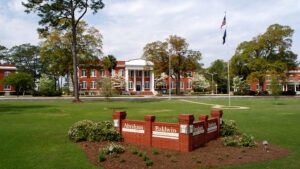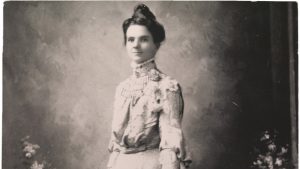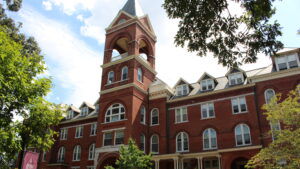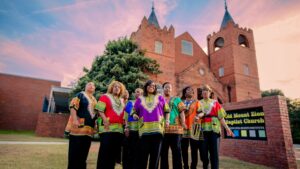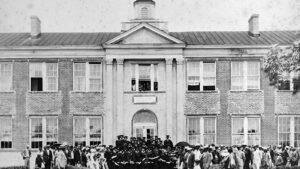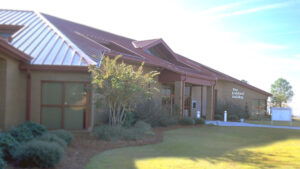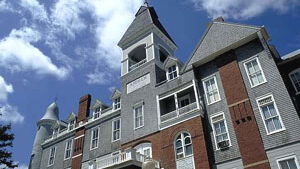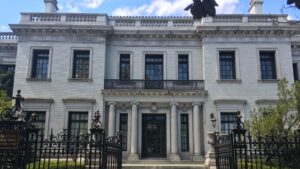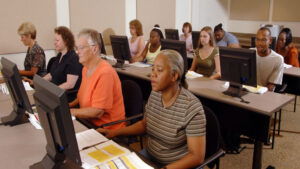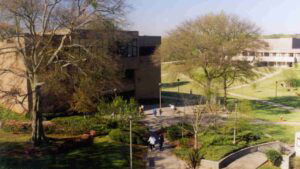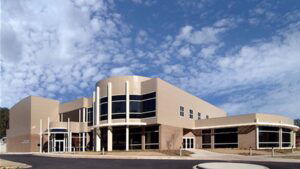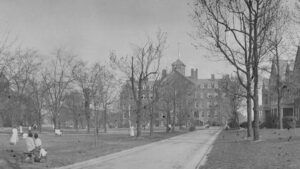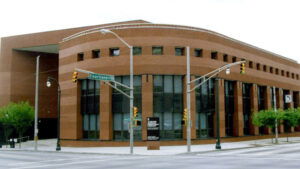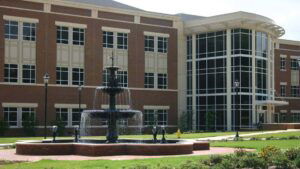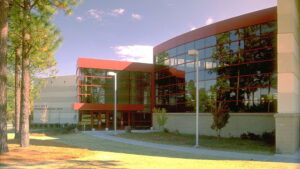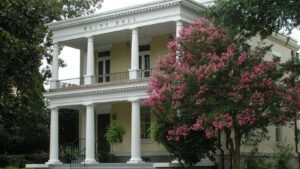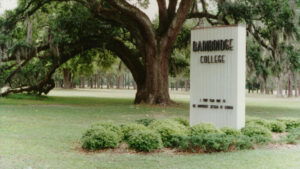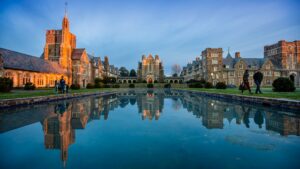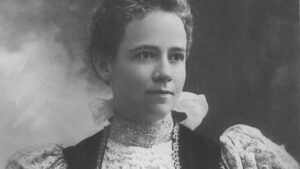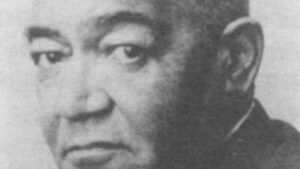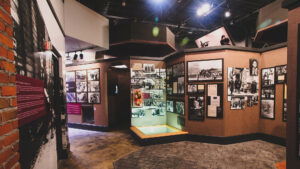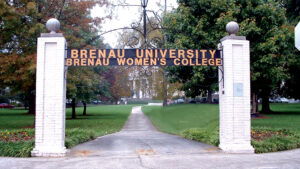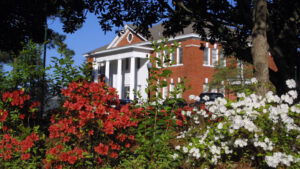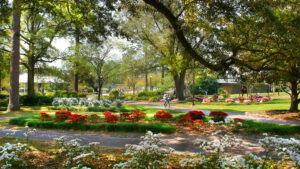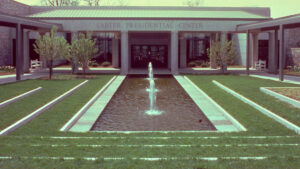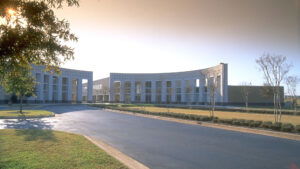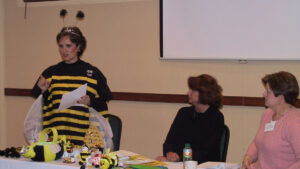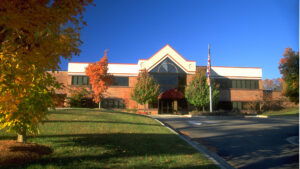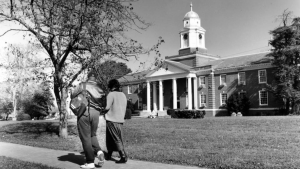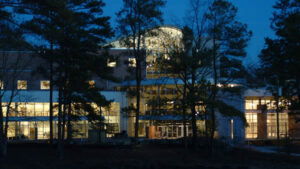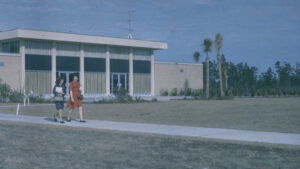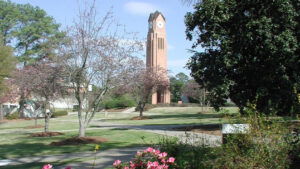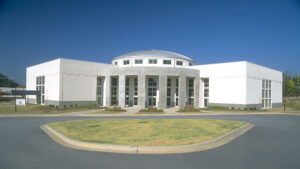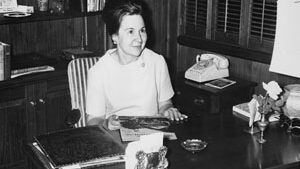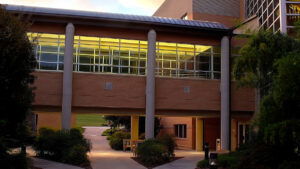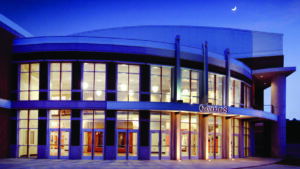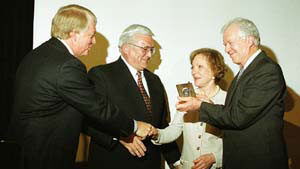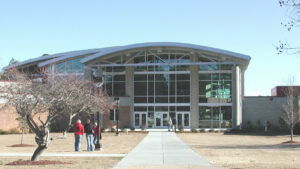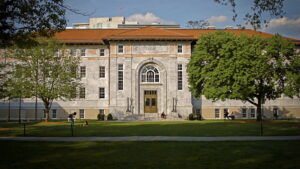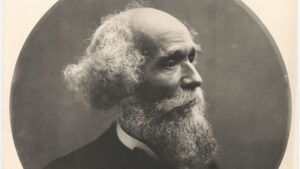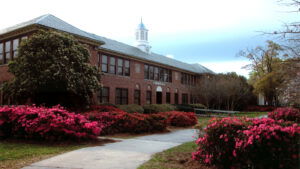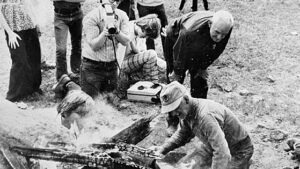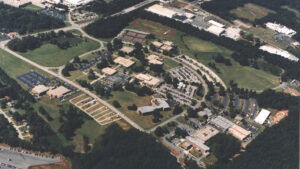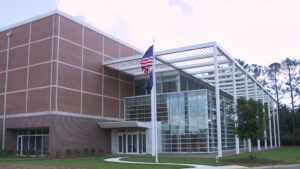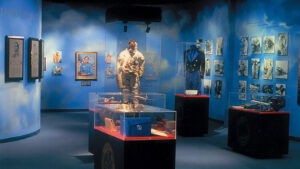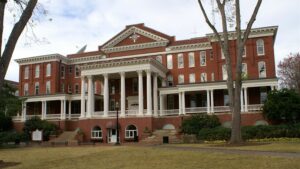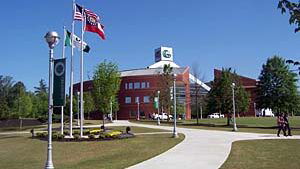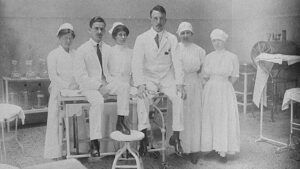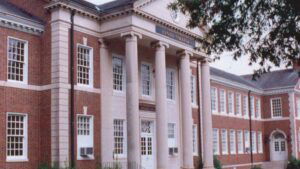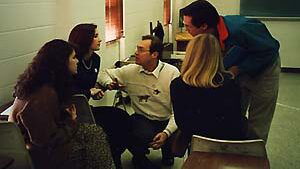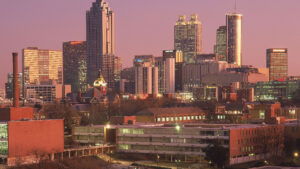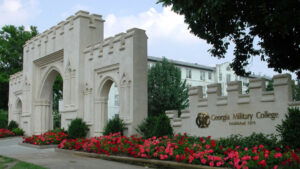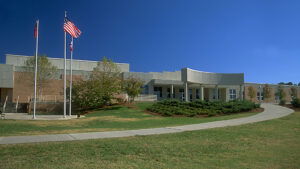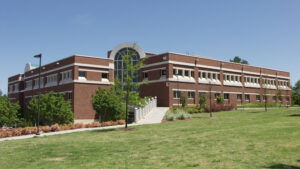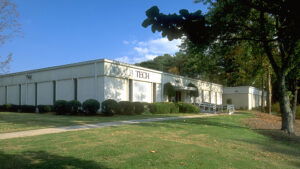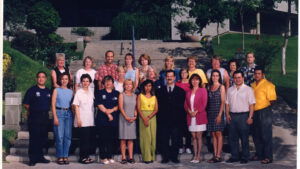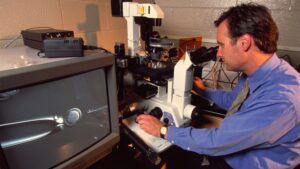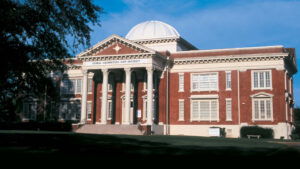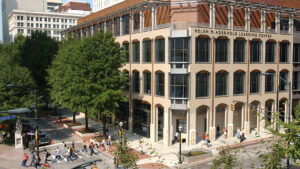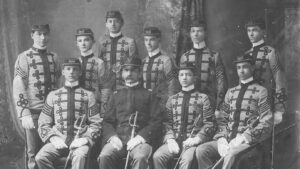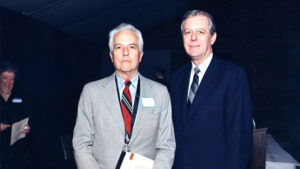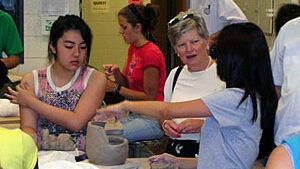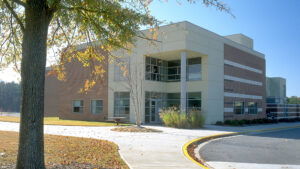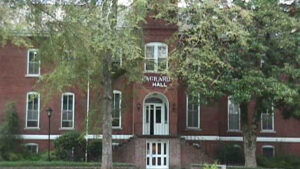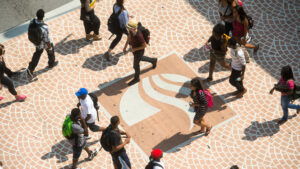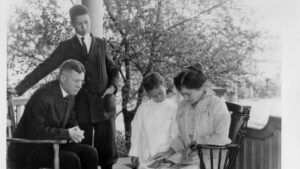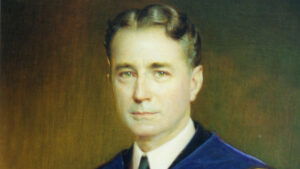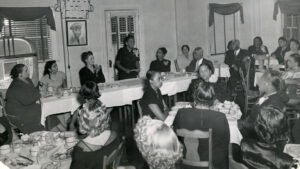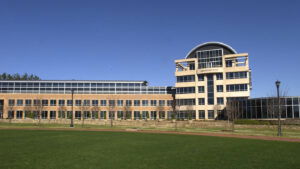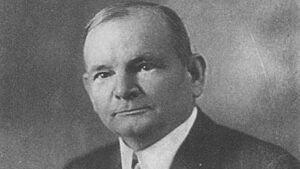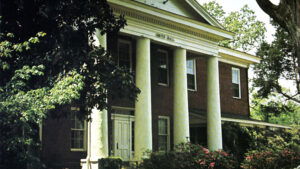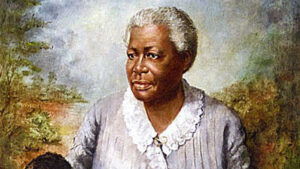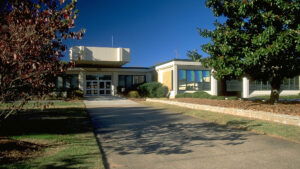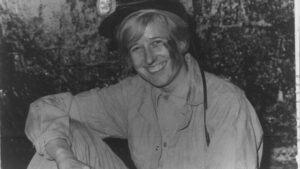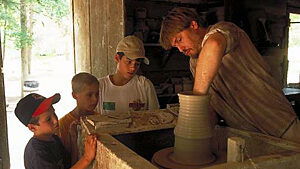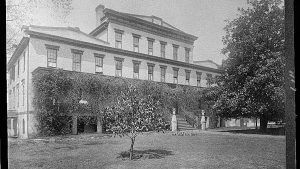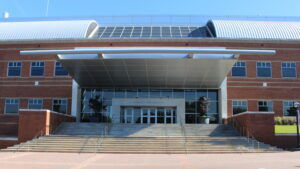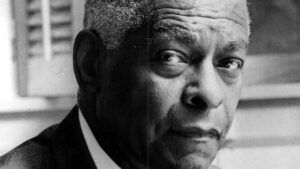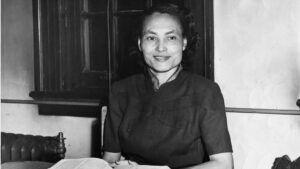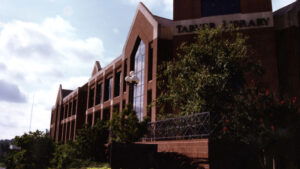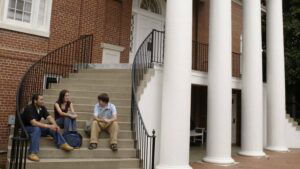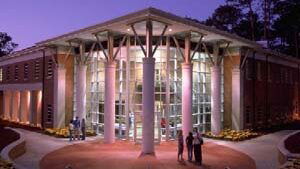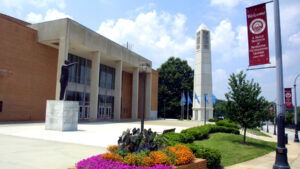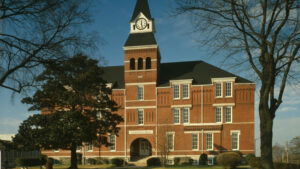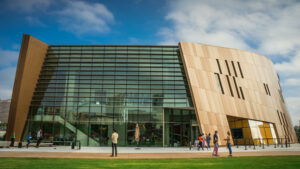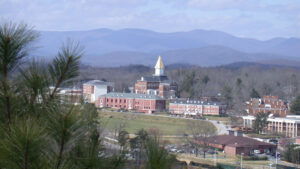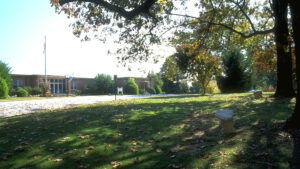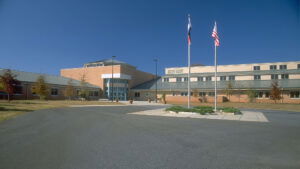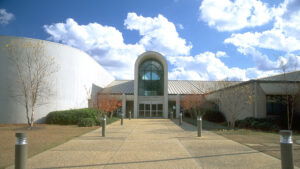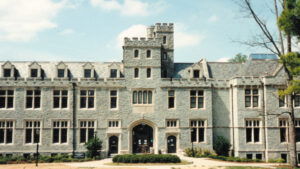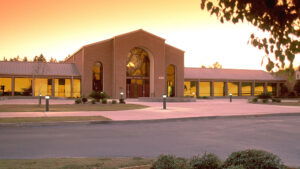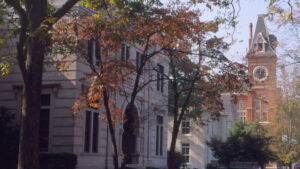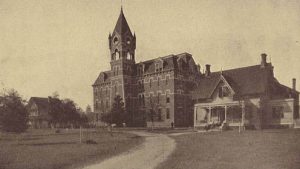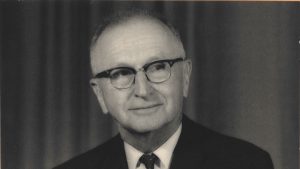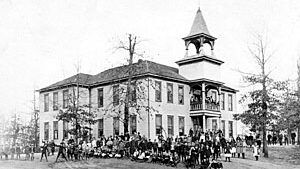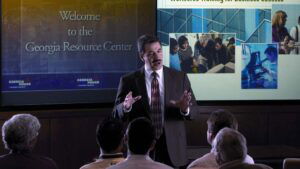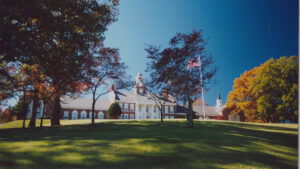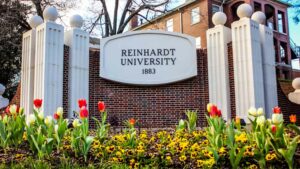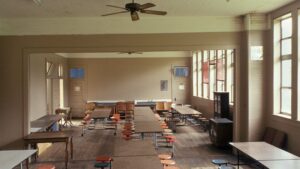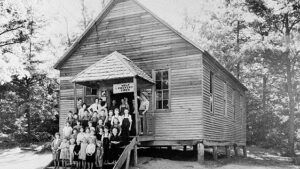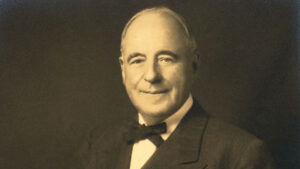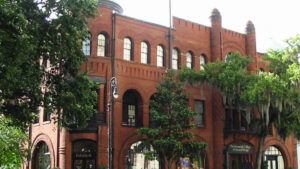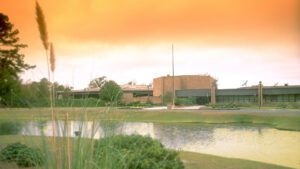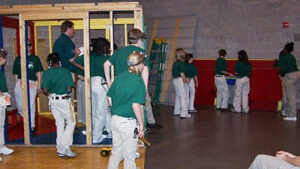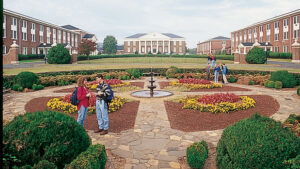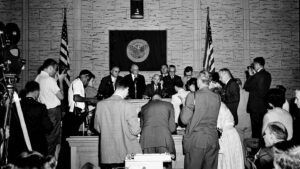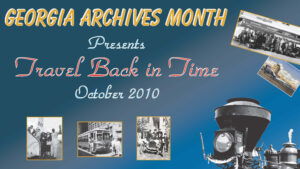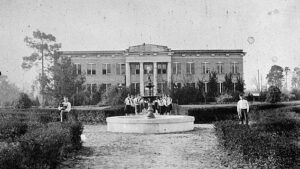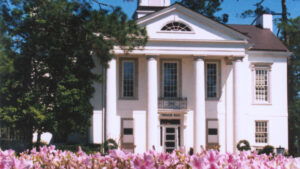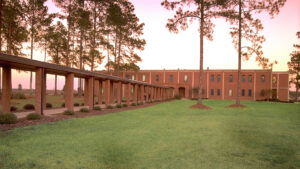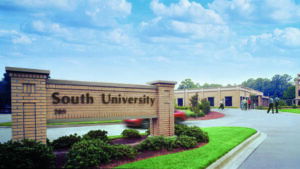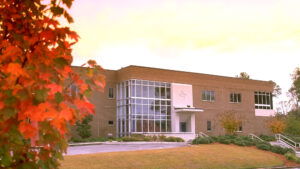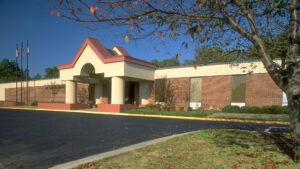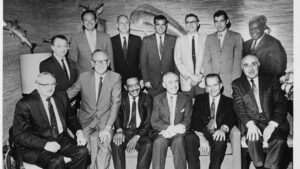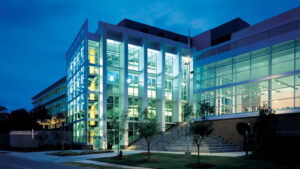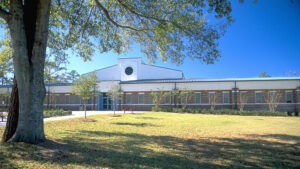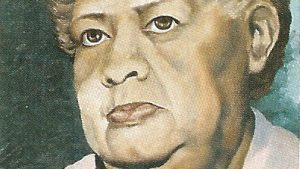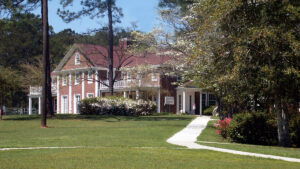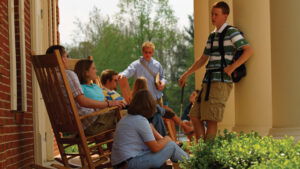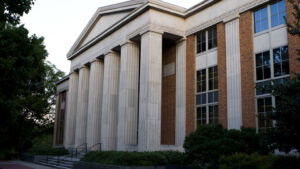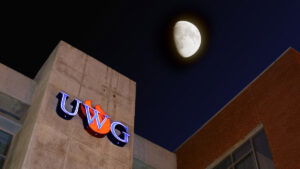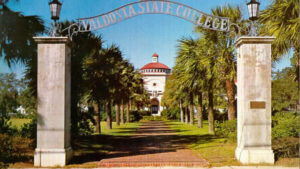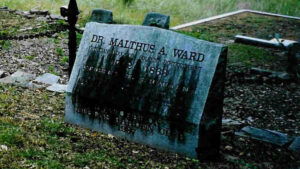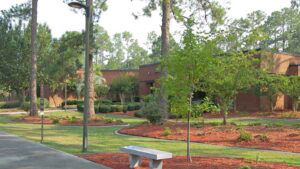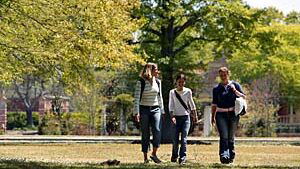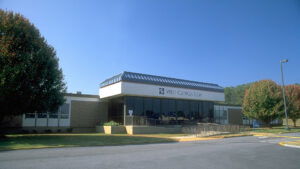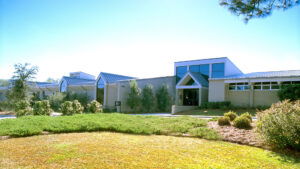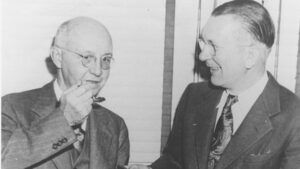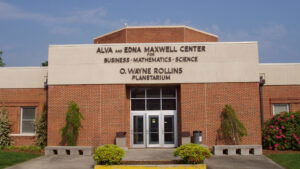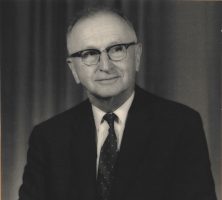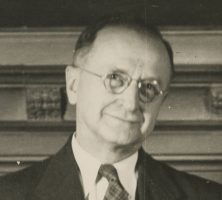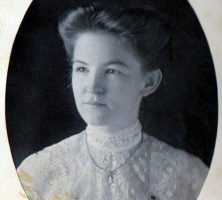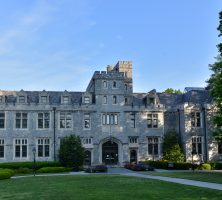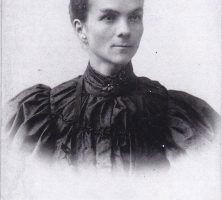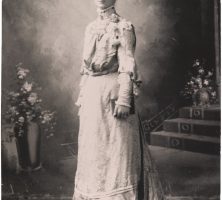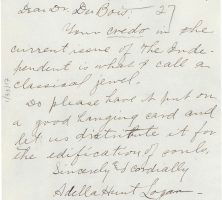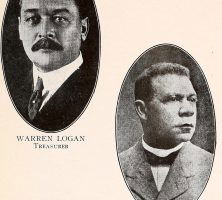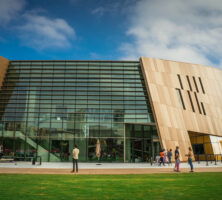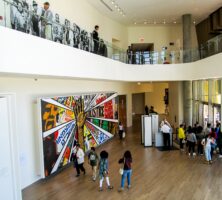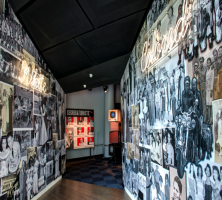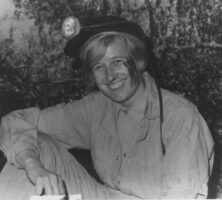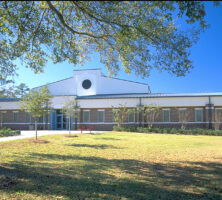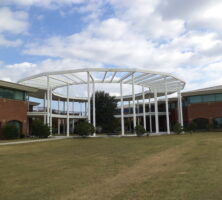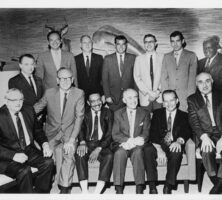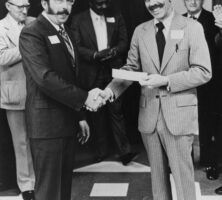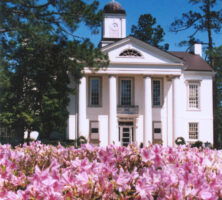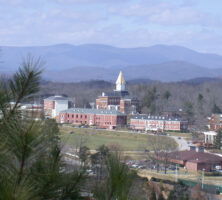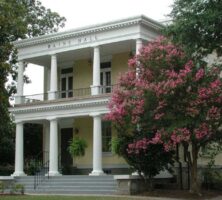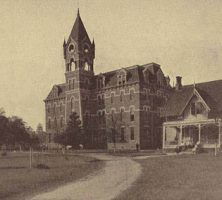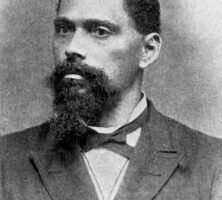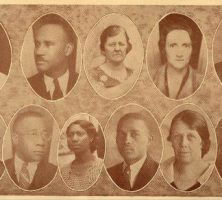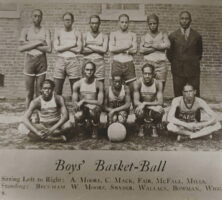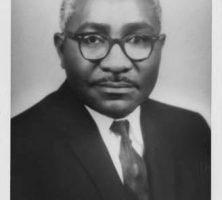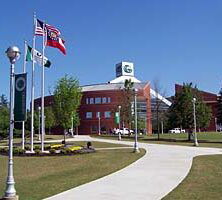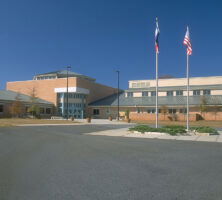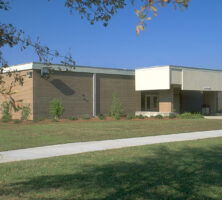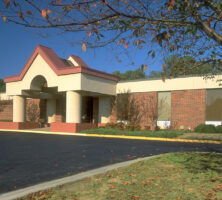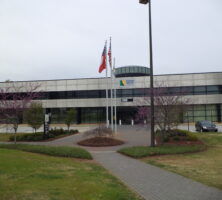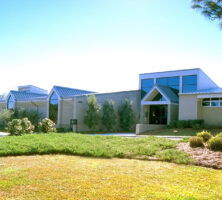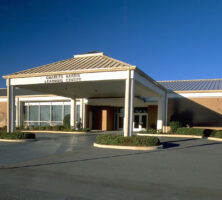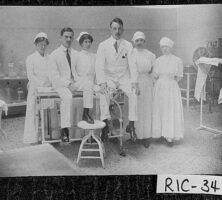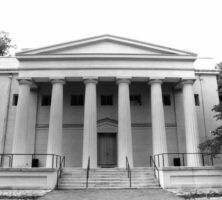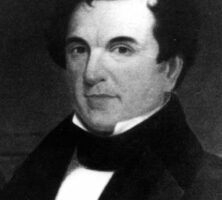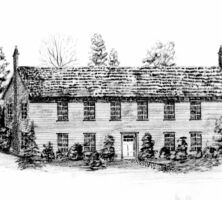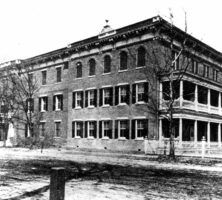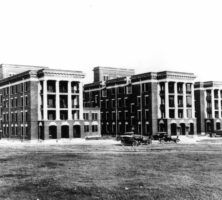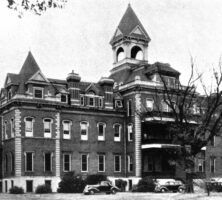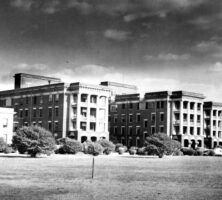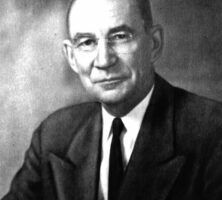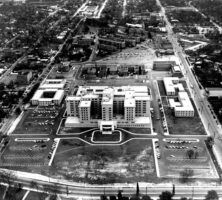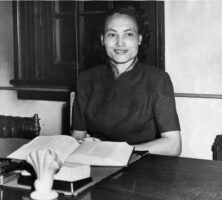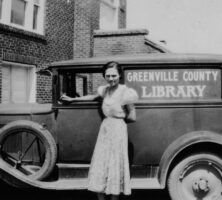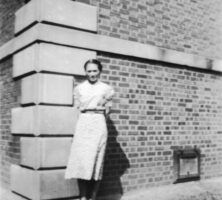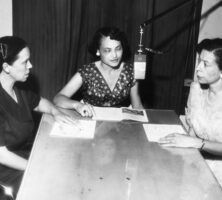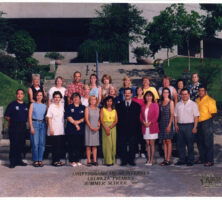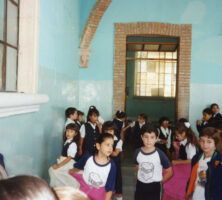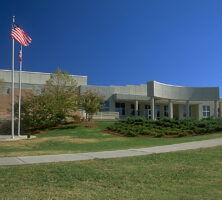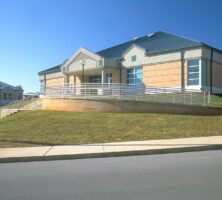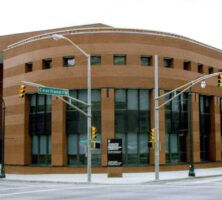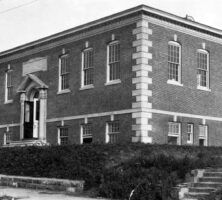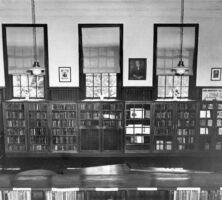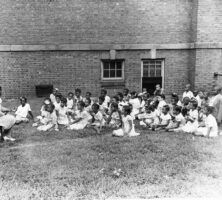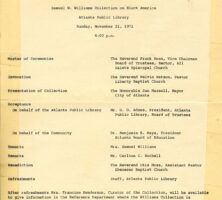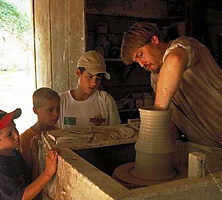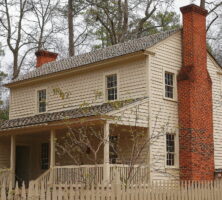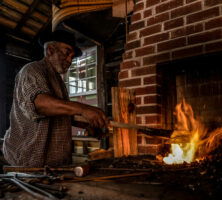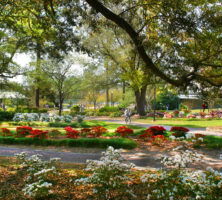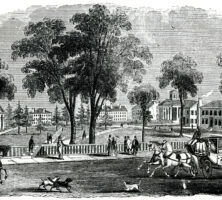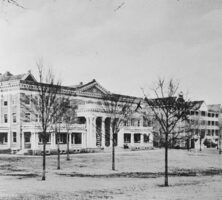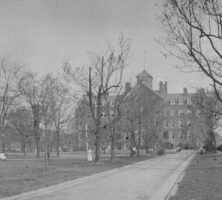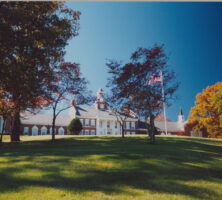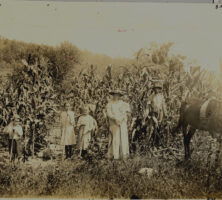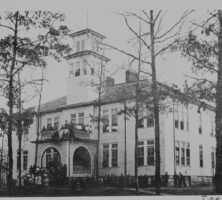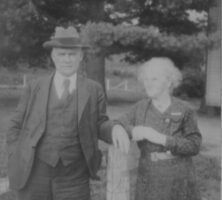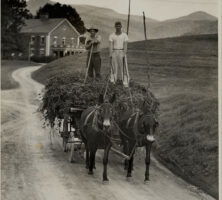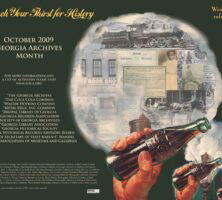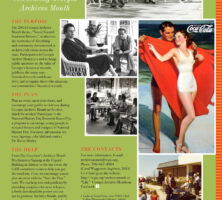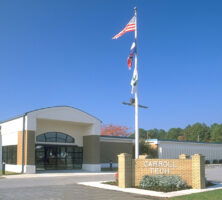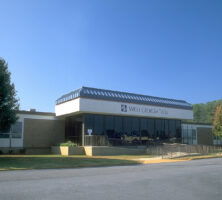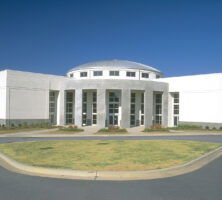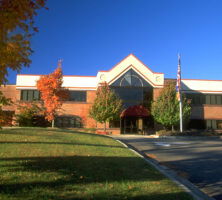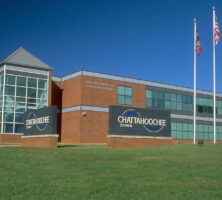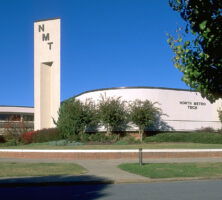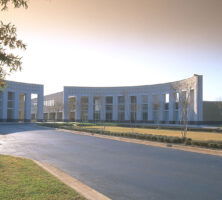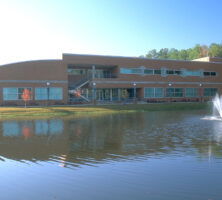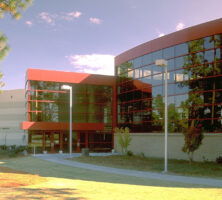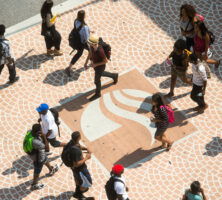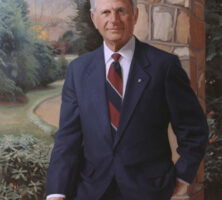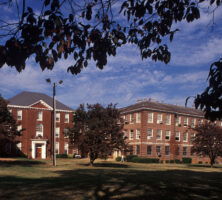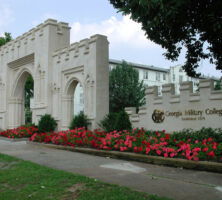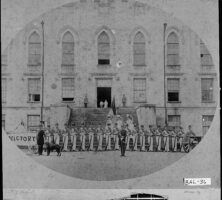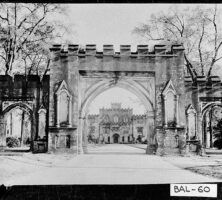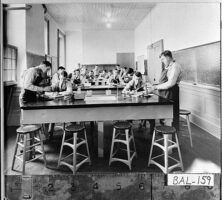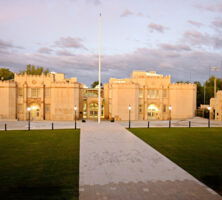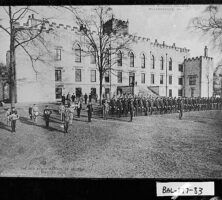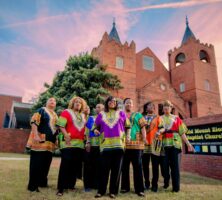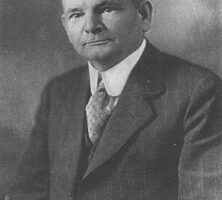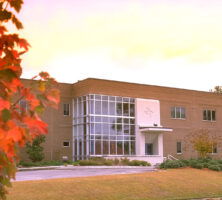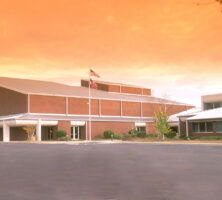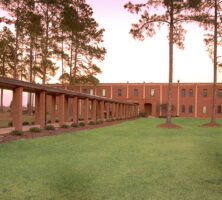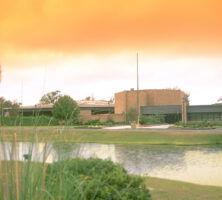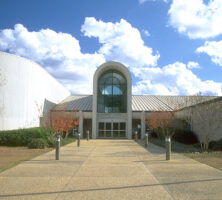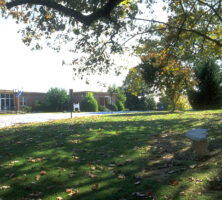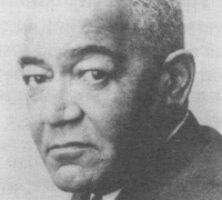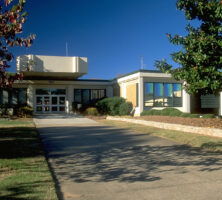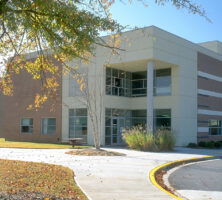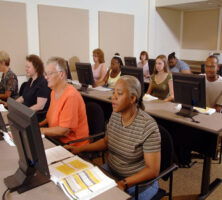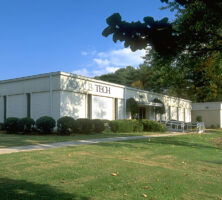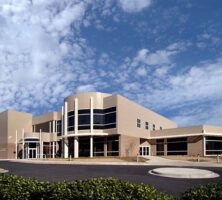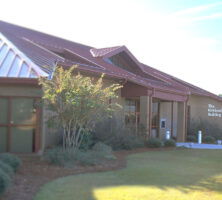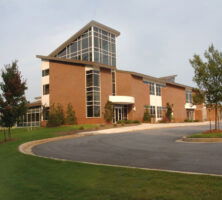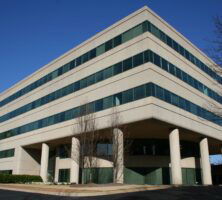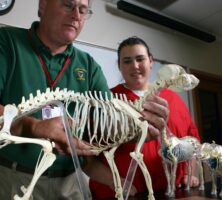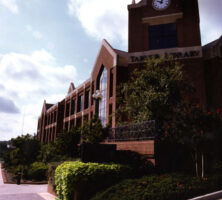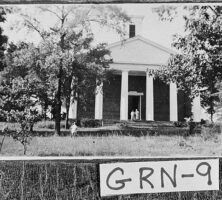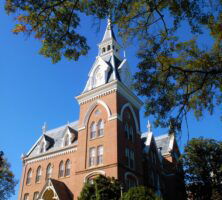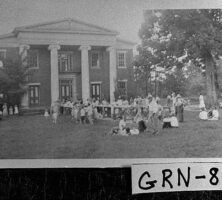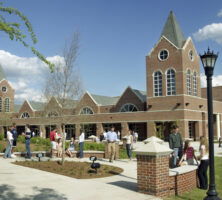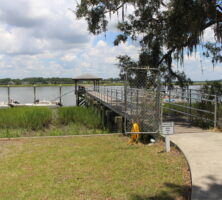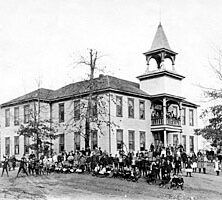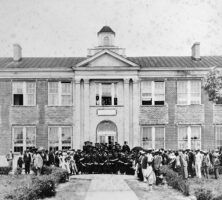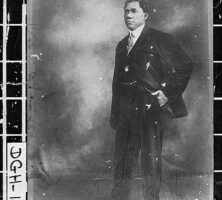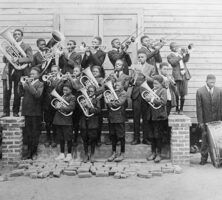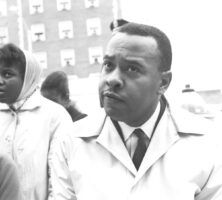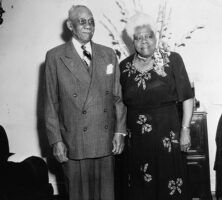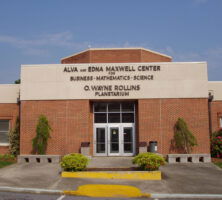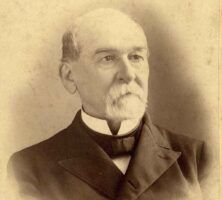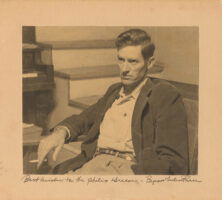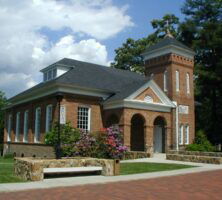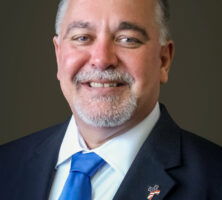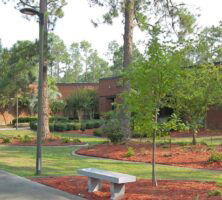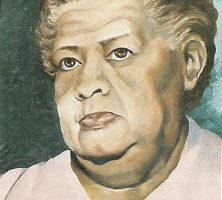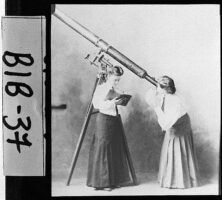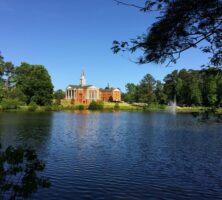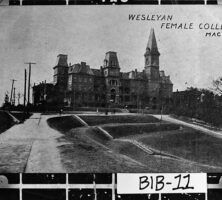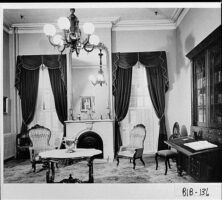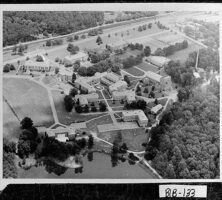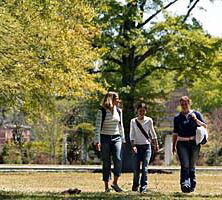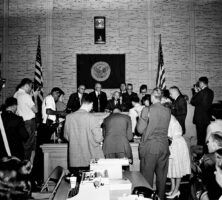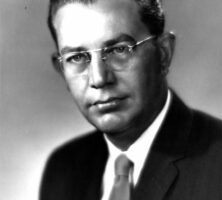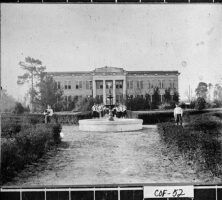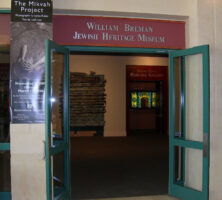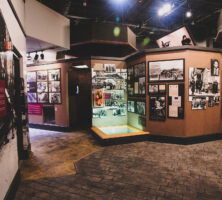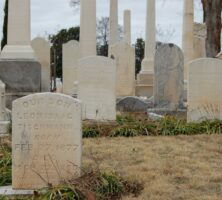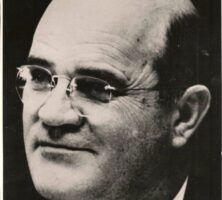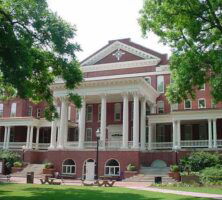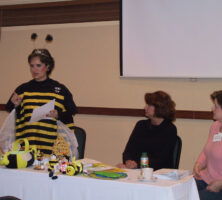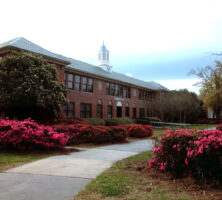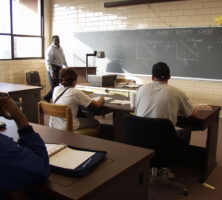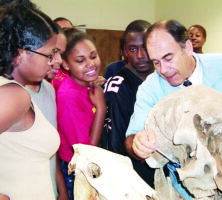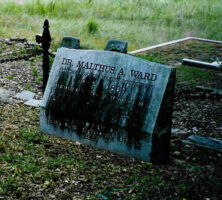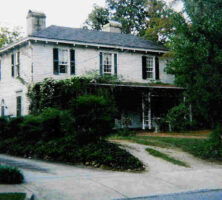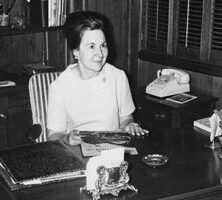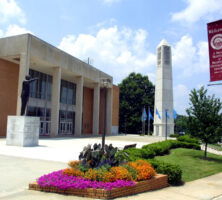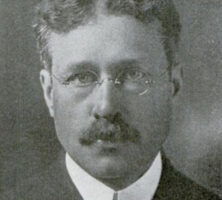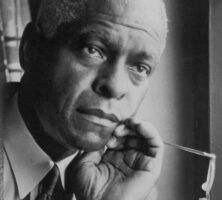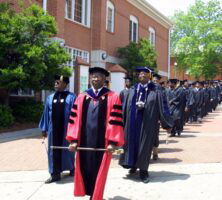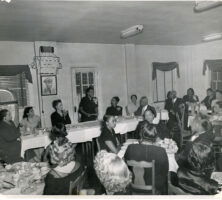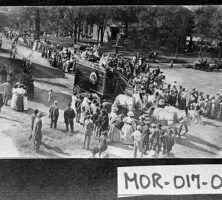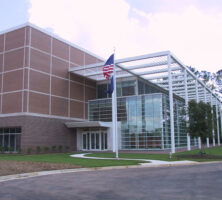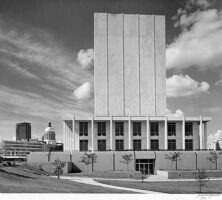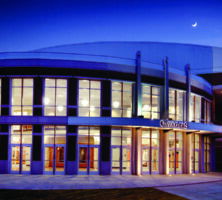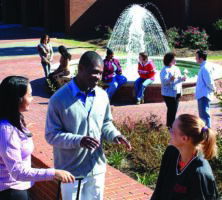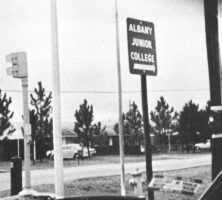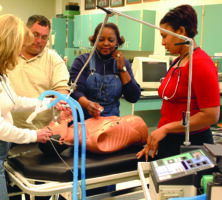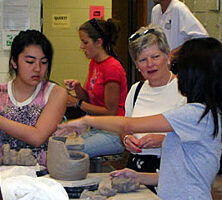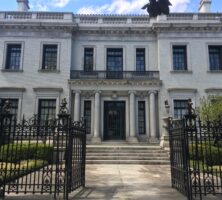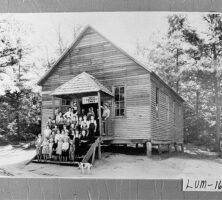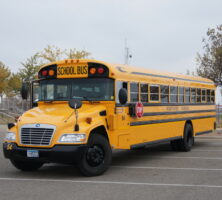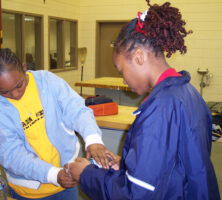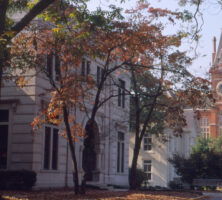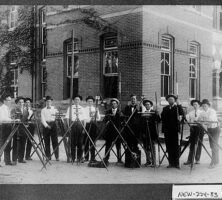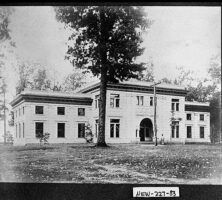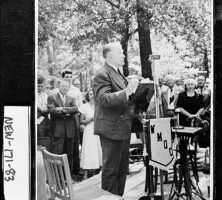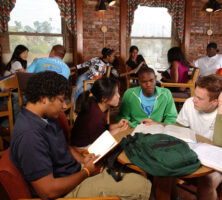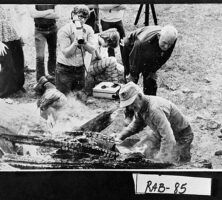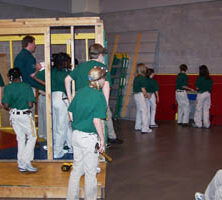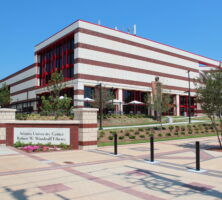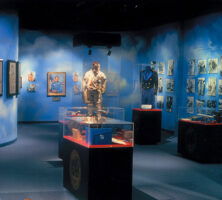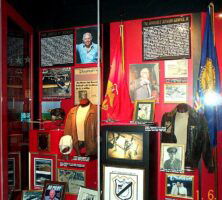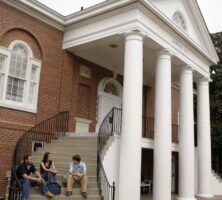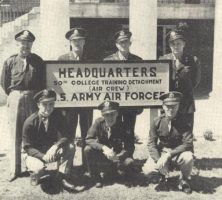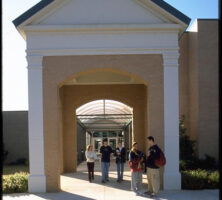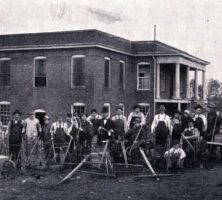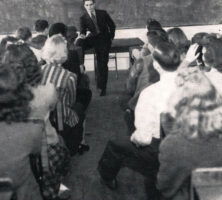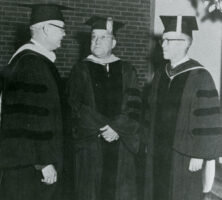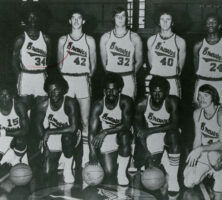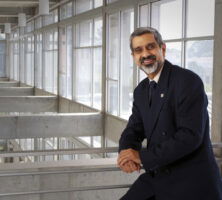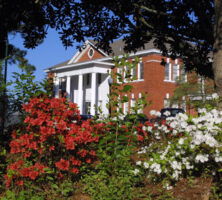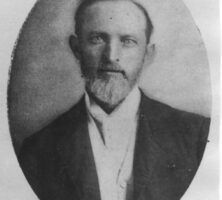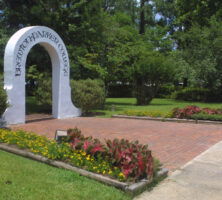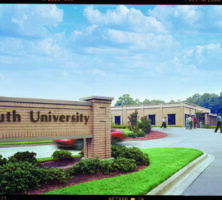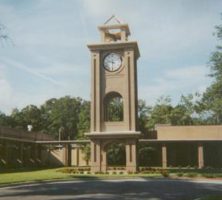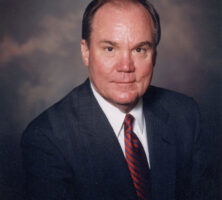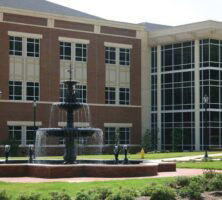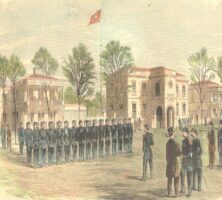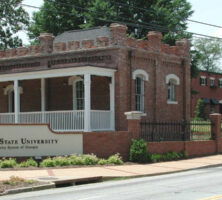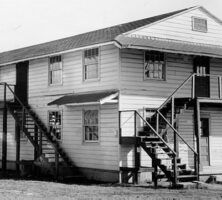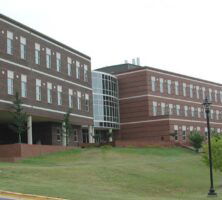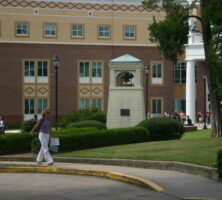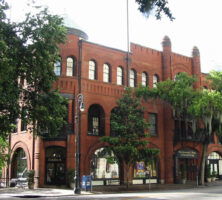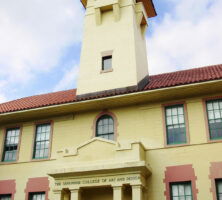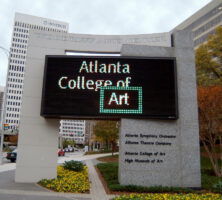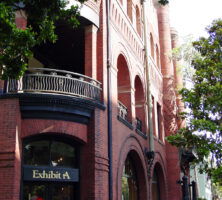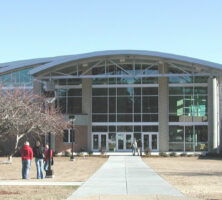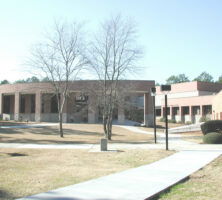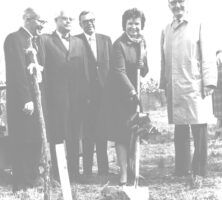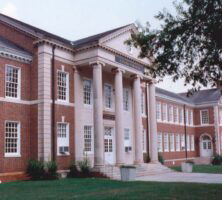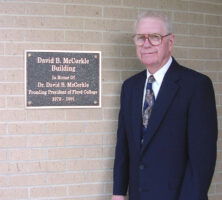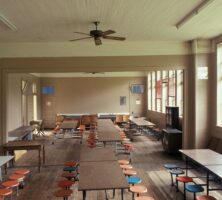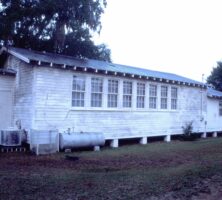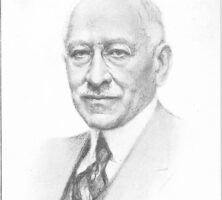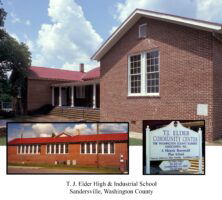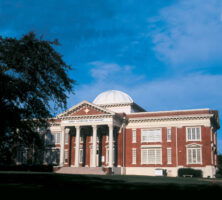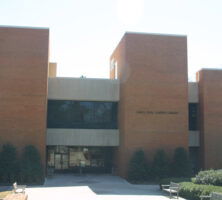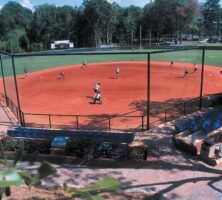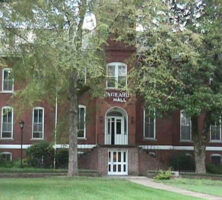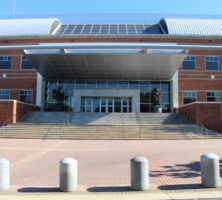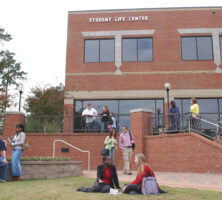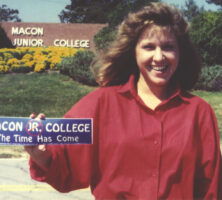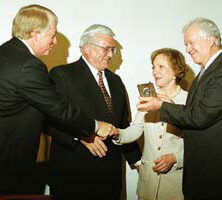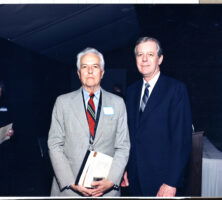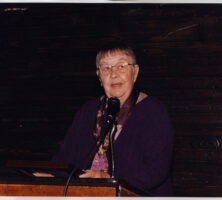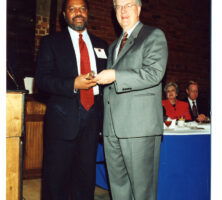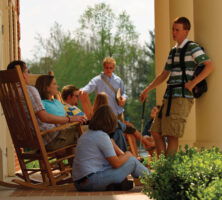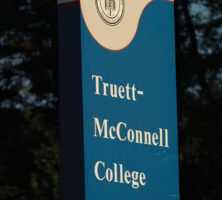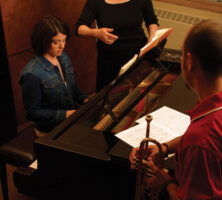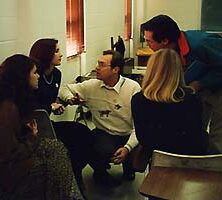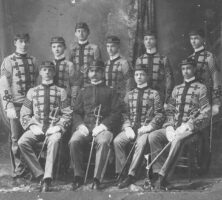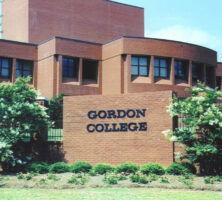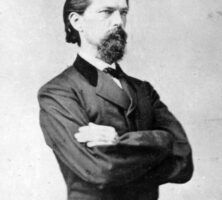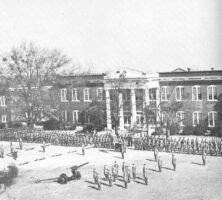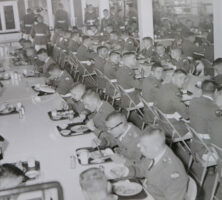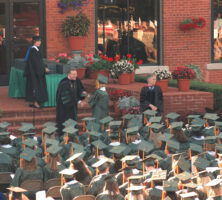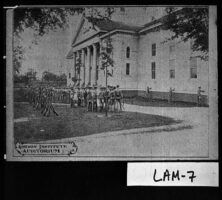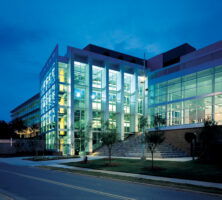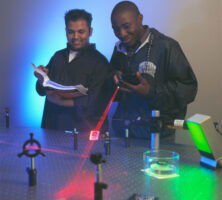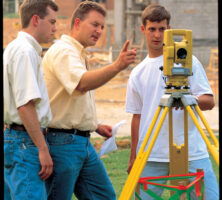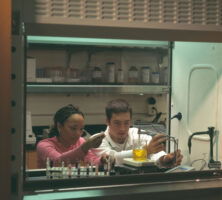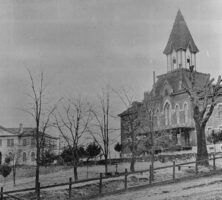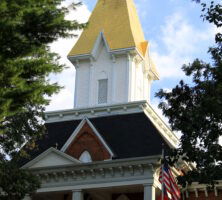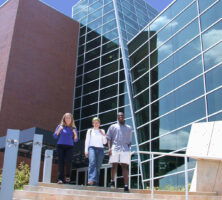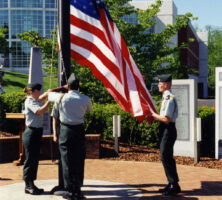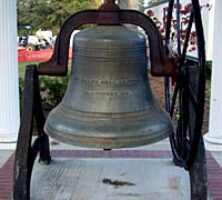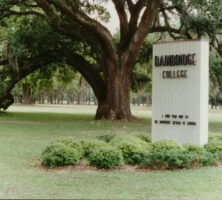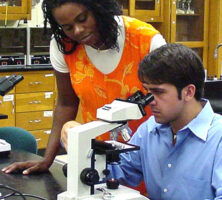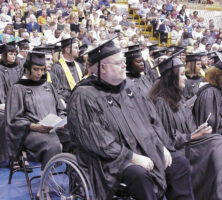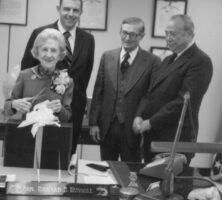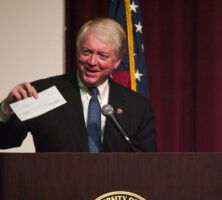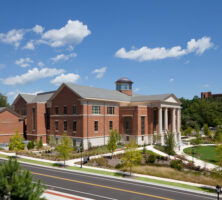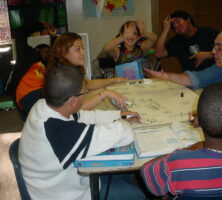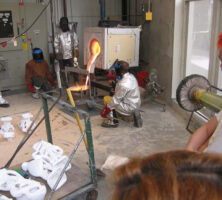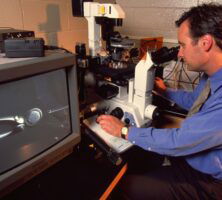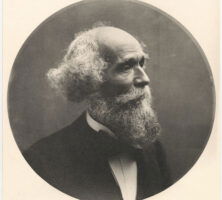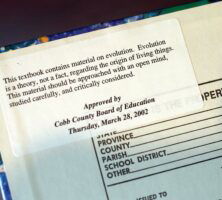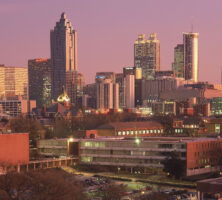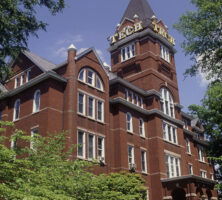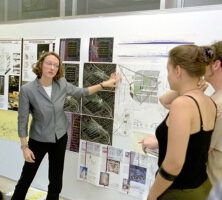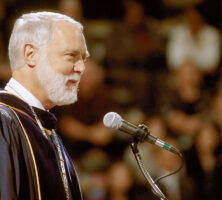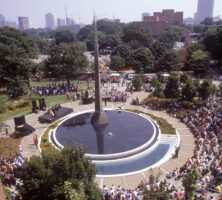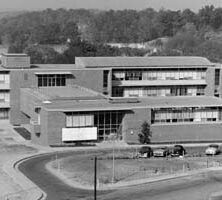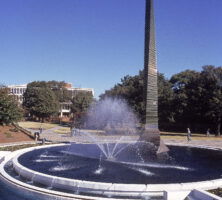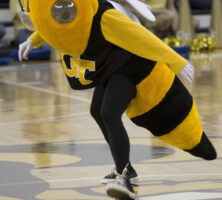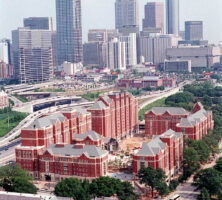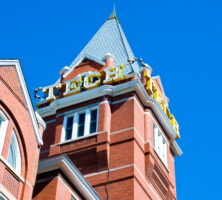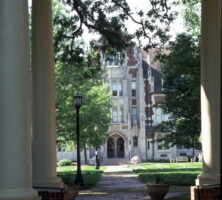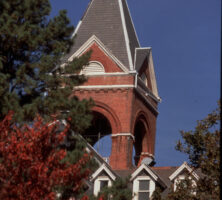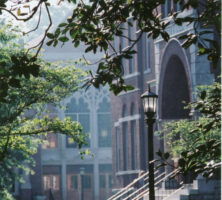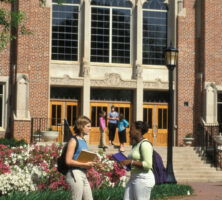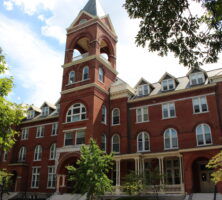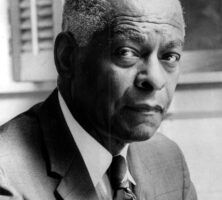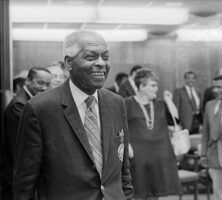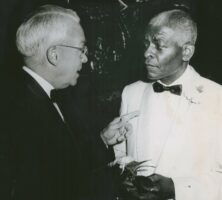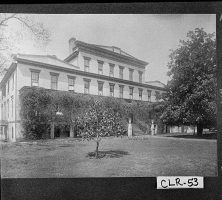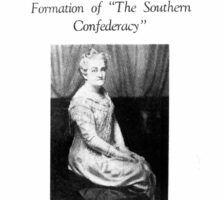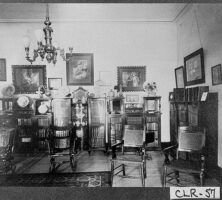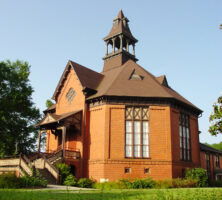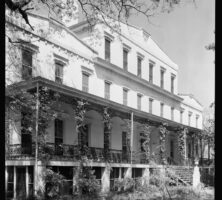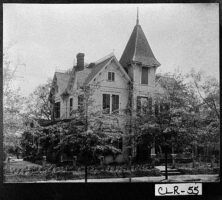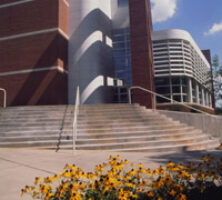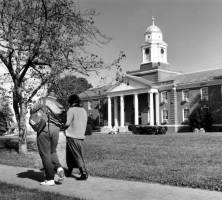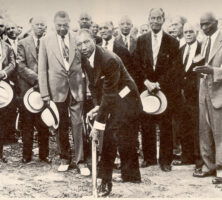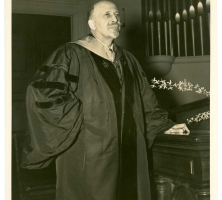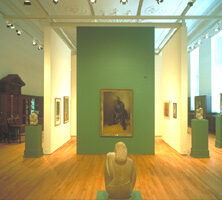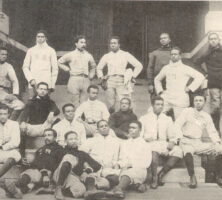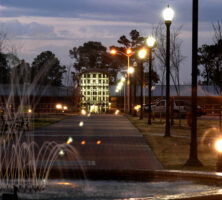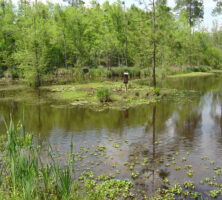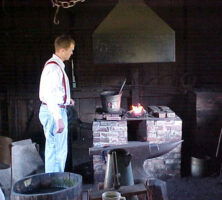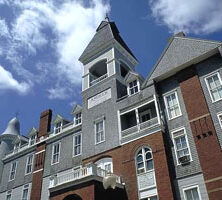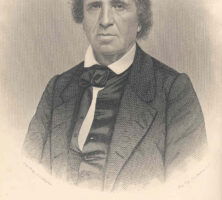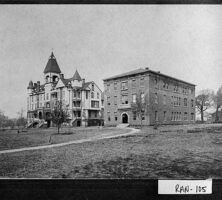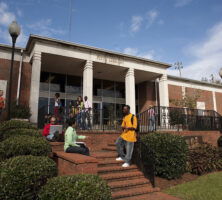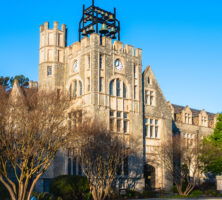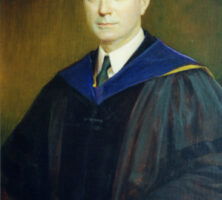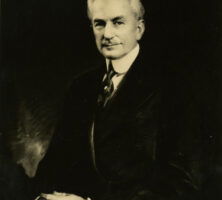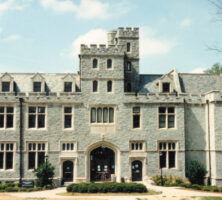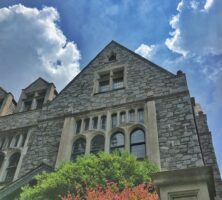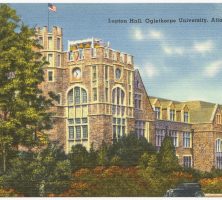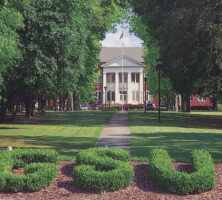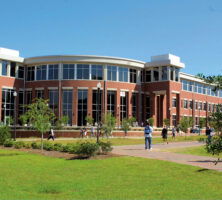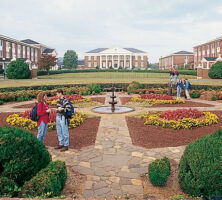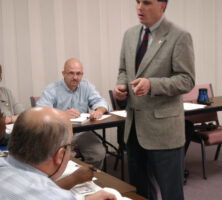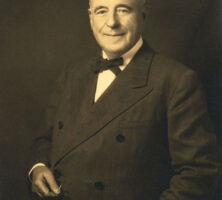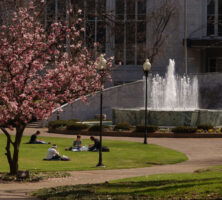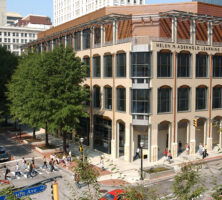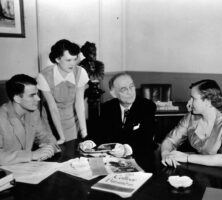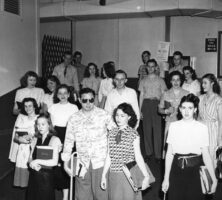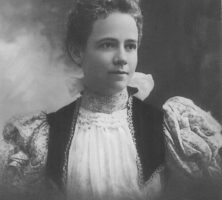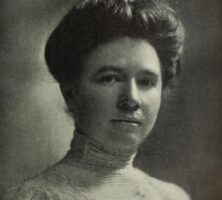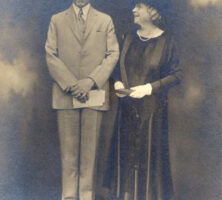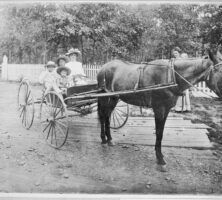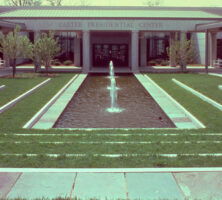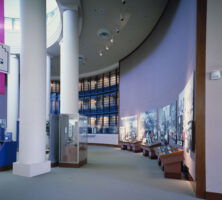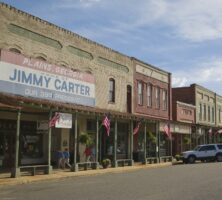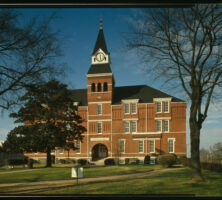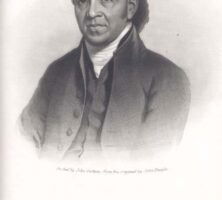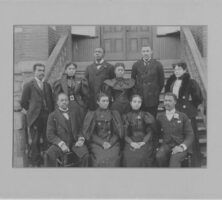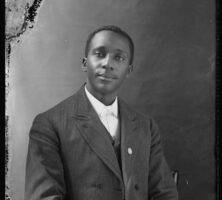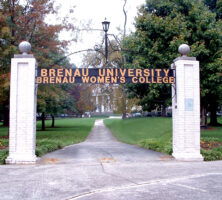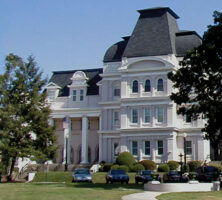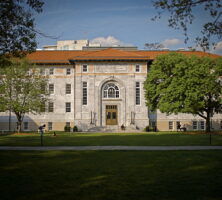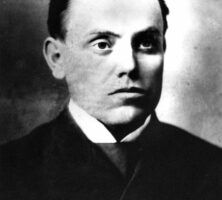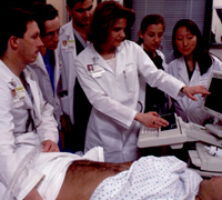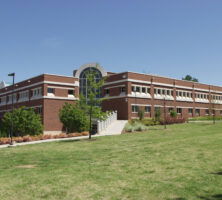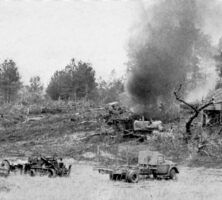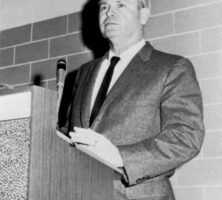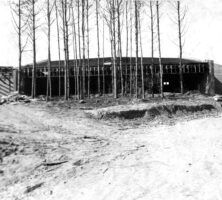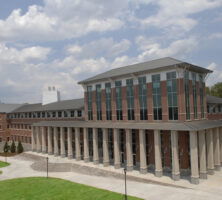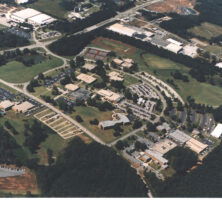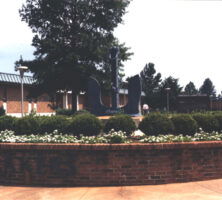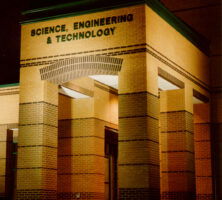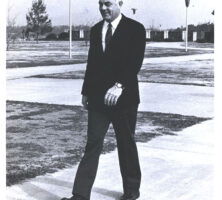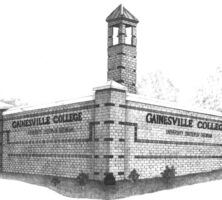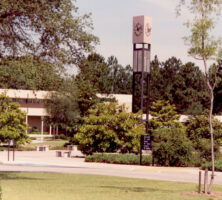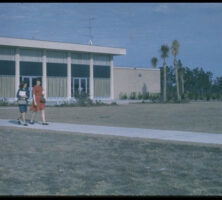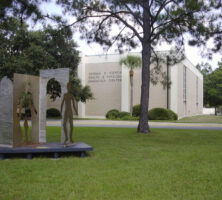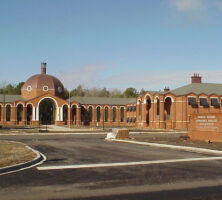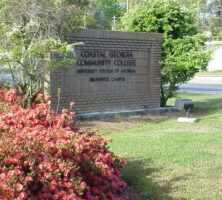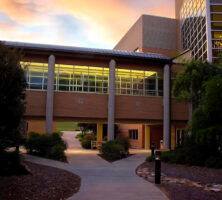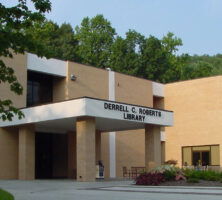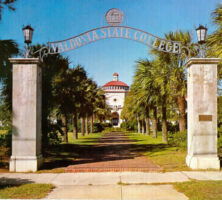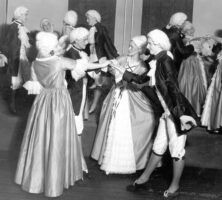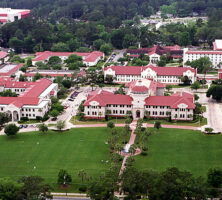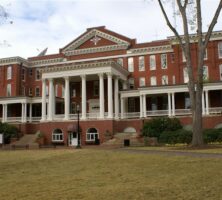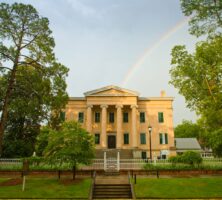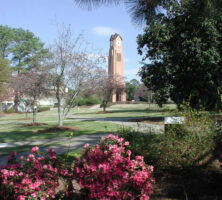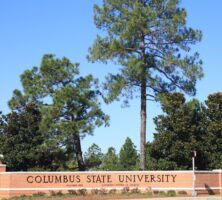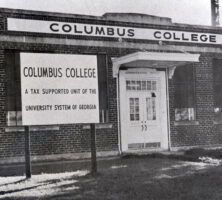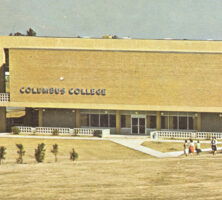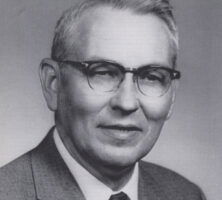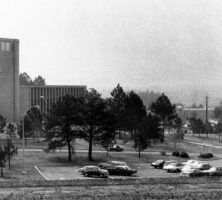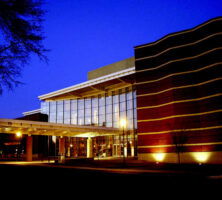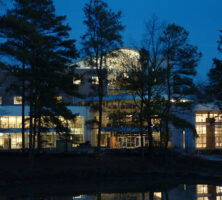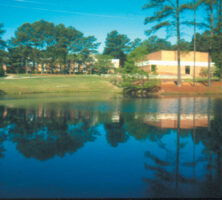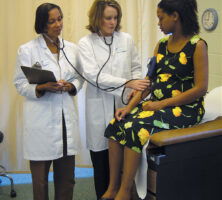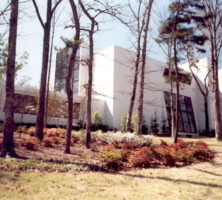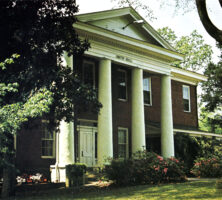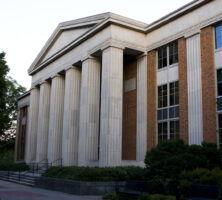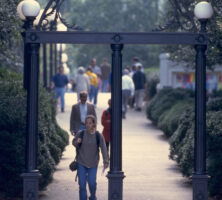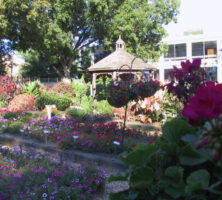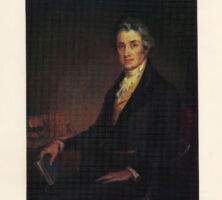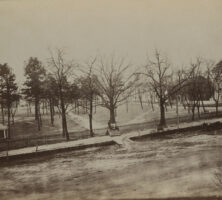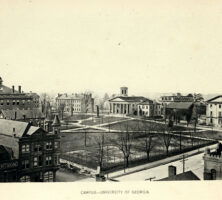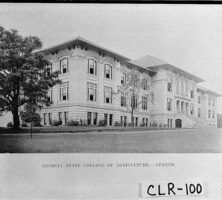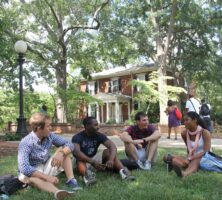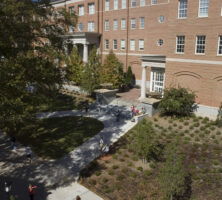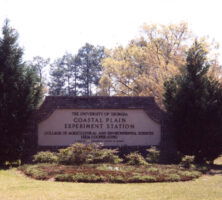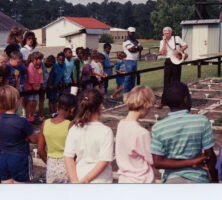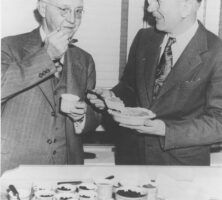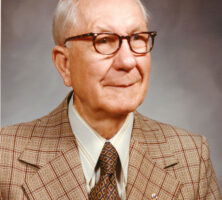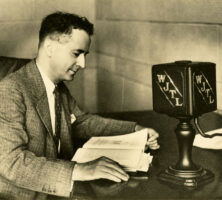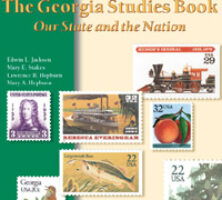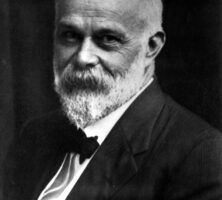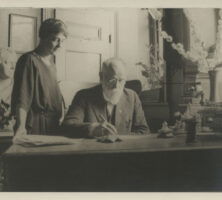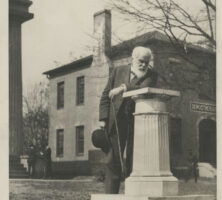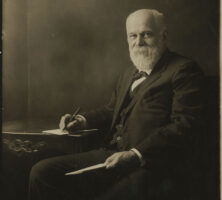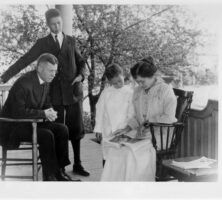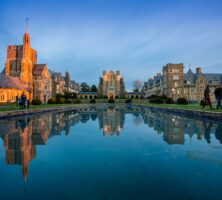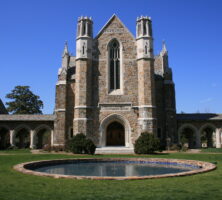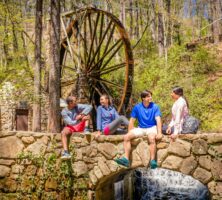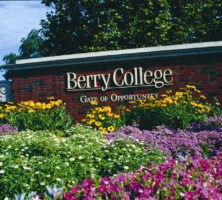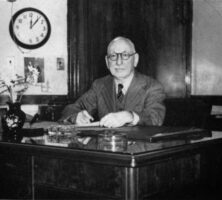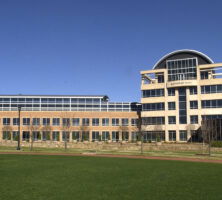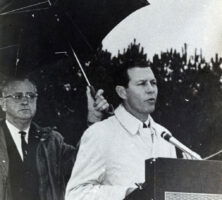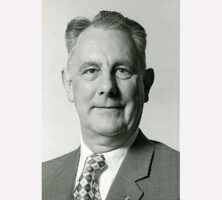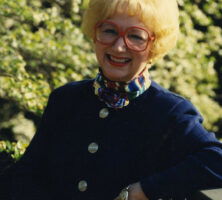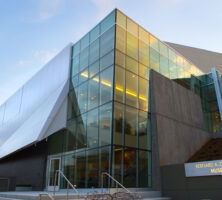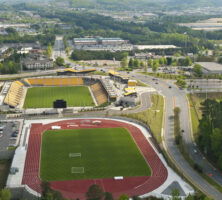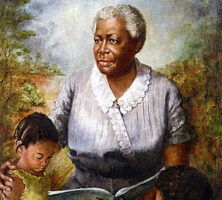The New Georgia Encyclopedia is supported by funding from A More Perfect Union, a special initiative of the National Endowment for the Humanities.
Attorney and academic leader Philip Weltner, born July 18, 1887, worked for nearly nine decades enacting social, judicial, and educational change in Georgia.
Courtesy of Philip Weltner Library, Oglethorpe University.
The New Georgia Encyclopedia does not hold the copyright for this media resource and can neither grant nor deny permission to republish or reproduce the image online or in print. Requests for permission to publish or reproduce the resource should be submitted to the Philip Weltner Library at Oglethorpe University.
Philip Weltner held several academic leadership positions, including chancellor of the University System of Georgia and president of Oglethorpe University.
Courtesy of Philip Weltner Library, Oglethorpe University.
The New Georgia Encyclopedia does not hold the copyright for this media resource and can neither grant nor deny permission to republish or reproduce the image online or in print. Requests for permission to publish or reproduce the resource should be submitted to the Philip Weltner Library at Oglethorpe University.
Sally Cobb Hull, born in Athens in 1887, married Philip Weltner in 1913. After Weltner retired from his position as president of Oglethorpe University, the couple moved to a plot of land behind the Brookhaven campus, gifted by the University's Board of Trustees.
Image from A.L. Hull
The New Georgia Encyclopedia does not hold the copyright for this media resource and can neither grant nor deny permission to republish or reproduce the image online or in print. All requests for permission to publish or reproduce the resource must be submitted to the rights holder.
As president of Oglethorpe University from 1944-53, Philip Weltner revamped the core curriculum program and saved the university from near financial ruin. The Philip Weltner Library at Lowry Hall, shown here, is named in his honor.
Image from Jack Kennard
The New Georgia Encyclopedia does not hold the copyright for this media resource and can neither grant nor deny permission to republish or reproduce the image online or in print. All requests for permission to publish or reproduce the resource must be submitted to the rights holder.
Educator and suffragist Adella Hunt Logan received an honorary master's degree from Atlanta University in 1901. The degree was "honorary" because the school was not yet accredited to grant graduate degrees.
From Adele Logan Alexander's personal collection
The New Georgia Encyclopedia does not hold the copyright for this media resource and can neither grant nor deny permission to republish or reproduce the image online or in print. All requests for permission to publish or reproduce the resource must be submitted to the rights holder.
Adella Hunt Logan is pictured in her wedding dress in Atlanta. She married Tuskegee Institute treasurer Warren Logan in 1888.
From Wikimedia
The New Georgia Encyclopedia does not hold the copyright for this media resource and can neither grant nor deny permission to republish or reproduce the image online or in print. All requests for permission to publish or reproduce the resource must be submitted to the rights holder.
After accepting a teaching position at the Tuskegee Institute in 1883, Adella Hunt Logan forged enduring relationships with fellow educators and civil rights leaders. Among her new acquaintances was NAACP cofounder W. E. B. Du Bois, with whom she shared a lifelong correspondence.
Courtesy of Special Collections and University Archives, University of Massachusetts Amherst Libraries
The New Georgia Encyclopedia does not hold the copyright for this media resource and can neither grant nor deny permission to republish or reproduce the image online or in print. All requests for permission to publish or reproduce the resource must be submitted to the rights holder.
Tuskegee Institute founder Booker T. Washington and school treasurer Warren Logan are featured in the Lincoln Jubilee Album, shortly after Washington's death in 1915.
Image from Wikimedia, Lincoln Financial Foundation Collection.
The New Georgia Encyclopedia does not hold the copyright for this media resource and can neither grant nor deny permission to republish or reproduce the image online or in print. All requests for permission to publish or reproduce the resource must be submitted to the rights holder.
Located in downtown Atlanta, the National Center for Civil and Human Rights (NCCHR) is a museum that explores the connections between the U.S. civil rights movement and the global struggle for human rights.
Photograph by Bradley Huchteman
The New Georgia Encyclopedia does not hold the copyright for this media resource and can neither grant nor deny permission to republish or reproduce the image online or in print. All requests for permission to publish or reproduce the resource must be submitted to the rights holder.
The NCCHR's 42,000 square-foot facility opened in 2014 and receives approximately 200,000 visitors each year.
Photograph by Marco Correa
The New Georgia Encyclopedia does not hold the copyright for this media resource and can neither grant nor deny permission to republish or reproduce the image online or in print. All requests for permission to publish or reproduce the resource must be submitted to the rights holder.
The center's primary exhibit, "Rolls Down Like Water: The American Civil Rights Movement," incorporates historical images, oral histories, and film footage alongside interactive features.
Photograph from the National Center for Civil and Human Rights
The New Georgia Encyclopedia does not hold the copyright for this media resource and can neither grant nor deny permission to republish or reproduce the image online or in print. All requests for permission to publish or reproduce the resource must be submitted to the rights holder.
Helen Lewis, activist and scholar, was a founder of the Appalachian Studies discipline. After moving to Wise, Virginia, in the heart of coal country, in 1955, she came to despise the human and environmental devastation caused by the coal and chemical industry.
Courtesy of Appalachian State University, W.L. Eury Appalachian Collection.
The New Georgia Encyclopedia does not hold the copyright for this media resource and can neither grant nor deny permission to republish or reproduce the image online or in print. All requests for permission to publish or reproduce the resource must be submitted to the rights holder.
Living Social Justice in Appalachia was published by the University Press of Kentucky in 2012. Compiled by longtime colleagues Judith Jennings and Patricia Beaver, it contains biographical essays, oral histories, and interviews with Helen Lewis.
The New Georgia Encyclopedia does not hold the copyright for this media resource and can neither grant nor deny permission to republish or reproduce the image online or in print. All requests for permission to publish or reproduce the resource must be submitted to the rights holder.
The administrative campus for Southern Regional Technical College, formed in 2015 by the merger of Moultrie Technical College with Southwest Georgia Technical College, is located in Thomasville. The Thomasville campus of Southwest Georgia Tech was established in 1947 for the education of World War II veterans.
Courtesy of Technical College System of Georgia
The New Georgia Encyclopedia does not hold the copyright for this media resource and can neither grant nor deny permission to republish or reproduce the image online or in print. All requests for permission to publish or reproduce the resource must be submitted to the rights holder.
The main campus of Moultrie Technical College was located in Moultrie, the seat of Colquitt County. Established in 1964, the school catered to the agricultural industry of its service area, which encompassed Colquitt, Tift, Turner, and Worth counties. In 2015 it merged with Southwest Georgia Technical College to form Southern Regional Technical College.
Image from Michael Rivera
The New Georgia Encyclopedia does not hold the copyright for this media resource and can neither grant nor deny permission to republish or reproduce the image online or in print. All requests for permission to publish or reproduce the resource must be submitted to the rights holder.
The first Organized Labor and Workmen's Circle Banquet took place in May 1969 at the Sheraton-Biltmore Hotel in Atlanta. Seated from left to right: E. L. Abercrombie, Oliver Singleton, Gid Parham, Joe Jacobs, Robert Shadix, and Harold Bauman. Standing from left to right: Joe Baylan, Irving Gordon, E. T. Kehrer, George Caudelle, Harris Jacobs, John Wright, and James Howard (?).
The New Georgia Encyclopedia does not hold the copyright for this media resource and can neither grant nor deny permission to republish or reproduce the image online or in print. Requests for permission to publish or reproduce the resource should be submitted to Special Collections and Archives at Georgia State University.
James Sala, a leader in the AFL-CIO, presents a check to William R. Pullen for the establishment of the Southern Labor Archives at Georgia State University in Atlanta, circa 1969.
The New Georgia Encyclopedia does not hold the copyright for this media resource and can neither grant nor deny permission to republish or reproduce the image online or in print. Requests for permission to publish or reproduce the resource should be submitted to Special Collections and Archives at Georgia State University.
David B. Gracy, appointed in 1971 as the first director of the Southern Labor Archives at Georgia State University, sits at his desk in 1974. He remained in the position until 1976.
The New Georgia Encyclopedia does not hold the copyright for this media resource and can neither grant nor deny permission to republish or reproduce the image online or in print. Requests for permission to publish or reproduce the resource should be submitted to Special Collections and Archives at Georgia State University.
Leslie Hough, the second director of the Southern Labor Archives at Georgia State University, is pictured in 1985. Under Hough, the Archives acquired the records of the Professional Air Traffic Controllers Organization (PATCO) and the United Garment Workers of America, as well as the papers of U.S. secretary of labor W. J. Usery Jr. and labor activist Stetson Kennedy.
The New Georgia Encyclopedia does not hold the copyright for this media resource and can neither grant nor deny permission to republish or reproduce the image online or in print. Requests for permission to publish or reproduce the resource should be submitted to Special Collections and Archives at Georgia State University.
Thrash Hall, on the campus of South Georgia College in Coffee County, is named for the first president of the college and originally housed the school's library. Today the building, pictured circa 2002, serves as the president's office. Founded in 1907, South Georgia College is a four-year institution of the University System of Georgia.
Courtesy of South Georgia College
The New Georgia Encyclopedia does not hold the copyright for this media resource and can neither grant nor deny permission to republish or reproduce the image online or in print. All requests for permission to publish or reproduce the resource must be submitted to the rights holder.
The Blue Ridge Mountains surround the campus of North Georgia College and State University, one of six senior military colleges in the United States.
Courtesy of NGCSU Relations
The New Georgia Encyclopedia does not hold the copyright for this media resource and can neither grant nor deny permission to republish or reproduce the image online or in print. All requests for permission to publish or reproduce the resource must be submitted to the rights holder.
Courtesy of Tommy Thompson
The New Georgia Encyclopedia does not hold the copyright for this media resource and can neither grant nor deny permission to republish or reproduce the image online or in print. All requests for permission to publish or reproduce the resource must be submitted to the rights holder.
Rains Hall houses the offices of the university president, advancement, and public relations and publications at Augusta State University. The building is named in honor of Colonel George W. Rains, who reopened the Academy of Richmond County after its closure during the Civil War.
Courtesy of Augusta State University
The New Georgia Encyclopedia does not hold the copyright for this media resource and can neither grant nor deny permission to republish or reproduce the image online or in print. All requests for permission to publish or reproduce the resource must be submitted to the rights holder.
Haygood Hall (left) and Holsey Hall are pictured in 1899 on the campus of Paine College, a historically Black liberal arts college in Augusta.
Courtesy of Paine College
The New Georgia Encyclopedia does not hold the copyright for this media resource and can neither grant nor deny permission to republish or reproduce the image online or in print. All requests for permission to publish or reproduce the resource must be submitted to the rights holder.
As bishop of the Colored Methodist Episcopal Church, Lucius Holsey oversaw the growth of the denomination in his native state of Georgia. He was also instrumental in the establishment of Paine Institute (later Paine College), which opened in Augusta in 1884.
Photograph by Mathew B. Brady. Courtesy of National Archives and Records Administration
The New Georgia Encyclopedia does not hold the copyright for this media resource and can neither grant nor deny permission to republish or reproduce the image online or in print. All requests for permission to publish or reproduce the resource must be submitted to the rights holder.
The 1891 class of the Paine College normal school, which trained preachers and teachers, is pictured. The college was founded in Augusta in 1884 to provide a liberal arts education to African American students of both genders.
Courtesy of Paine College
The New Georgia Encyclopedia does not hold the copyright for this media resource and can neither grant nor deny permission to republish or reproduce the image online or in print. All requests for permission to publish or reproduce the resource must be submitted to the rights holder.
The faculty of Paine College, a historically Black college in Augusta, is pictured in 1936. The faculty was all white upon the college's opening in 1884 and was integrated four years later, when its first Black faculty member, John Wesley Gilbert, was hired.
Courtesy of Paine College
The New Georgia Encyclopedia does not hold the copyright for this media resource and can neither grant nor deny permission to republish or reproduce the image online or in print. All requests for permission to publish or reproduce the resource must be submitted to the rights holder.
The Paine College men's basketball team is pictured in 1930. Sitting, left to right: A. Moore, C. Mack, Fair, McFall, Mills. Standing, left to right: Beckham, W. Moore, Snyder, Wallace, Bowman, and Wiggins (coach).
Courtesy of Paine College
The New Georgia Encyclopedia does not hold the copyright for this media resource and can neither grant nor deny permission to republish or reproduce the image online or in print. All requests for permission to publish or reproduce the resource must be submitted to the rights holder.
The New Georgia Encyclopedia does not hold the copyright for this media resource and can neither grant nor deny permission to republish or reproduce the image online or in print. All requests for permission to publish or reproduce the resource must be submitted to the rights holder.
Dr. Lucius Holsey Pitts, a member of the Paine College class of 1941, is pictured in 1971, when he became the college's first Black president.
Courtesy of Paine College
The New Georgia Encyclopedia does not hold the copyright for this media resource and can neither grant nor deny permission to republish or reproduce the image online or in print. All requests for permission to publish or reproduce the resource must be submitted to the rights holder.
The New Georgia Encyclopedia does not hold the copyright for this media resource and can neither grant nor deny permission to republish or reproduce the image online or in print. All requests for permission to publish or reproduce the resource must be submitted to the rights holder.
Building B, pictured in 2012, is the main administrative and classroom building at Georgia Gwinnett College in Lawrenceville. It was designed by prominent Atlanta architect John Portman.
Photograph by and reprinted by permission of Michael Gagnon
The New Georgia Encyclopedia does not hold the copyright for this media resource and can neither grant nor deny permission to republish or reproduce the image online or in print. All requests for permission to publish or reproduce the resource must be submitted to the rights holder.
The New Georgia Encyclopedia does not hold the copyright for this media resource and can neither grant nor deny permission to republish or reproduce the image online or in print. All requests for permission to publish or reproduce the resource must be submitted to the rights holder.
The New Georgia Encyclopedia does not hold the copyright for this media resource and can neither grant nor deny permission to republish or reproduce the image online or in print. All requests for permission to publish or reproduce the resource must be submitted to the rights holder.
The New Georgia Encyclopedia does not hold the copyright for this media resource and can neither grant nor deny permission to republish or reproduce the image online or in print. All requests for permission to publish or reproduce the resource must be submitted to the rights holder.
The New Georgia Encyclopedia does not hold the copyright for this media resource and can neither grant nor deny permission to republish or reproduce the image online or in print. All requests for permission to publish or reproduce the resource must be submitted to the rights holder.
The administrative campus for Oconee Fall Line Technical College, known as the North Campus, is located in Sandersville. The college was formed in 2011 as a merger of Sandersville Technical College andHeart of Georgia Technical College.
Courtesy of Technical College System of Georgia
The New Georgia Encyclopedia does not hold the copyright for this media resource and can neither grant nor deny permission to republish or reproduce the image online or in print. All requests for permission to publish or reproduce the resource must be submitted to the rights holder.
The South Campus of Oconee Fall Line Technical College is located in Dublin, the seat of Laurens County. The college was formed in 2011 as a merger of Heart of Georgia Technical College and Sandersville Technical College.
Courtesy of Technical College System of Georgia
The New Georgia Encyclopedia does not hold the copyright for this media resource and can neither grant nor deny permission to republish or reproduce the image online or in print. All requests for permission to publish or reproduce the resource must be submitted to the rights holder.
The Flint River campus of Southern Crescent Technical College is located in Thomaston, the seat of Upson County. The campus opened in 1961 as the Upson County Area Vocational-Technical School.
Courtesy of Technical College System of Georgia
The New Georgia Encyclopedia does not hold the copyright for this media resource and can neither grant nor deny permission to republish or reproduce the image online or in print. All requests for permission to publish or reproduce the resource must be submitted to the rights holder.
The administrative campus for Southern Crescent Technical College is located in Griffin. The college was formed in 2010 as a merger of Griffin Technical College and Flint River Technical College.
Photograph by Michael Rivera
The New Georgia Encyclopedia does not hold the copyright for this media resource and can neither grant nor deny permission to republish or reproduce the image online or in print. All requests for permission to publish or reproduce the resource must be submitted to the rights holder.
The administrative campus for Wiregrass Georgia Technical College is located in Valdosta. The college was formed in 2010 as a merger of Valdosta Technical College and East Central Technical College.
Courtesy of Technical College System of Georgia
The New Georgia Encyclopedia does not hold the copyright for this media resource and can neither grant nor deny permission to republish or reproduce the image online or in print. All requests for permission to publish or reproduce the resource must be submitted to the rights holder.
The Ben Hill–Irwin campus of Wiregrass Georgia Technical College is located in Fitzgerald, the seat of Ben Hill County. The campus opened in 1970 as the Ben Hill–Irwin Area Vocational Institute.
Courtesy of Technical College System of Georgia
The New Georgia Encyclopedia does not hold the copyright for this media resource and can neither grant nor deny permission to republish or reproduce the image online or in print. All requests for permission to publish or reproduce the resource must be submitted to the rights holder.
Members of the operating room staff at the Medical Department of UGA (later Georgia Health Sciences University) in Augusta are pictured in the early 1900s.
Courtesy of Georgia Archives, Vanishing Georgia, #
ric034.
The New Georgia Encyclopedia does not hold the copyright for this media resource and can neither grant nor deny permission to republish or reproduce the image online or in print. Requests for permission to publish or reproduce the resource should be submitted to the Georgia Archives.
The original building on the campus of Georgia Health Sciences University, completed in Augusta in 1837, was designed by the architect Charles B. Cluskey. The structure, Cluskey's first major building, is an excellent example of the Greek revival style.
Courtesy of Georgia Health Sciences University
The New Georgia Encyclopedia does not hold the copyright for this media resource and can neither grant nor deny permission to republish or reproduce the image online or in print. All requests for permission to publish or reproduce the resource must be submitted to the rights holder.
The New Georgia Encyclopedia does not hold the copyright for this media resource and can neither grant nor deny permission to republish or reproduce the image online or in print. All requests for permission to publish or reproduce the resource must be submitted to the rights holder.
Milton M. Antony, a physician in Augusta, was instrumental in the 1828 founding of the Medical Academy of Georgia, which later became Georgia Health Sciences University.
Courtesy of Historical Collections and Archives, Robert B. Greenblatt, M.D. Library, Georgia Health Sciences University
The New Georgia Encyclopedia does not hold the copyright for this media resource and can neither grant nor deny permission to republish or reproduce the image online or in print. All requests for permission to publish or reproduce the resource must be submitted to the rights holder.
The city hospital in Augusta, built in 1818, served as the first home for Georgia Health Sciences University, from 1828 until the mid-1830s.
Courtesy of Historical Collections and Archives, Robert B. Greenblatt, M.D. Library, Georgia Health Sciences University
The New Georgia Encyclopedia does not hold the copyright for this media resource and can neither grant nor deny permission to republish or reproduce the image online or in print. All requests for permission to publish or reproduce the resource must be submitted to the rights holder.
The New Georgia Encyclopedia does not hold the copyright for this media resource and can neither grant nor deny permission to republish or reproduce the image online or in print. All requests for permission to publish or reproduce the resource must be submitted to the rights holder.
A new city hospital in Augusta, which opened in 1869 and served for many years as the clinical training site for students at the Medical Department of UGA (later Georgia Health Sciences University), is pictured in 1894, following a renovation.
Courtesy of Historical Collections and Archives, Robert B. Greenblatt, M.D. Library, Georgia Health Sciences University
The New Georgia Encyclopedia does not hold the copyright for this media resource and can neither grant nor deny permission to republish or reproduce the image online or in print. All requests for permission to publish or reproduce the resource must be submitted to the rights holder.
University Hospital, completed in Augusta in 1915, was built for the Medical Department of UGA (later Georgia Health Sciences University) with the city's backing.
Courtesy of Historical Collections and Archives, Robert B. Greenblatt, M.D. Library, Georgia Health Sciences University
The New Georgia Encyclopedia does not hold the copyright for this media resource and can neither grant nor deny permission to republish or reproduce the image online or in print. All requests for permission to publish or reproduce the resource must be submitted to the rights holder.
The Newton Building, on the campus of the Medical College of Georgia (later Georgia Health Sciences University) in Augusta, was occupied by the college from 1913 until 1956. The structure was demolished in 1960.
Courtesy of Historical Collections and Archives, Robert B. Greenblatt, M.D. Library, Georgia Health Sciences University
The New Georgia Encyclopedia does not hold the copyright for this media resource and can neither grant nor deny permission to republish or reproduce the image online or in print. All requests for permission to publish or reproduce the resource must be submitted to the rights holder.
University Hospital, part of Georgia Health Sciences University in Augusta, was expanded in the mid-1930s as part of an effort to restore the good rating of the college and its membership in the Association of American Medical Colleges.
Courtesy of Historical Collections and Archives, Robert B. Greenblatt, M.D. Library, Georgia Health Sciences University
The New Georgia Encyclopedia does not hold the copyright for this media resource and can neither grant nor deny permission to republish or reproduce the image online or in print. All requests for permission to publish or reproduce the resource must be submitted to the rights holder.
G. Lombard Kelly served as dean of the Medical College of Georgia (later Georgia Health Sciences University) from 1934 until 1950, and as the college's first president from 1950 to 1953.
Courtesy of Historical Collections and Archives, Robert B. Greenblatt, M.D. Library, Georgia Health Sciences University
The New Georgia Encyclopedia does not hold the copyright for this media resource and can neither grant nor deny permission to republish or reproduce the image online or in print. All requests for permission to publish or reproduce the resource must be submitted to the rights holder.
The Eugene Talmadge Memorial Hospital in Augusta, built by the state for the Medical College of Georgia (later Georgia Health Sciences University), opened in June 1956 with six buildings.
Courtesy of Historical Collections and Archives, Robert B. Greenblatt, M.D. Library, Georgia Health Sciences University
The New Georgia Encyclopedia does not hold the copyright for this media resource and can neither grant nor deny permission to republish or reproduce the image online or in print. All requests for permission to publish or reproduce the resource must be submitted to the rights holder.
Annie L. McPheeters, pictured circa 1940, was appointed assistant librarian at the Auburn Branch of the Carnegie Library of Atlanta in 1934. McPheeters was responsible for developing the library's core Negro History Collection, housed today at the Auburn Avenue Research Library.
Courtesy of Archives Division, Auburn Avenue Research Library on African American Culture and History, Atlanta-Fulton Public Library System. Photograph by Lane Brothers
The New Georgia Encyclopedia does not hold the copyright for this media resource and can neither grant nor deny permission to republish or reproduce the image online or in print. All requests for permission to publish or reproduce the resource must be submitted to the rights holder.
Annie L. Watters (McPheeters), pictured in 1934, stands beside the booktruck that she used as a librarian in Greenville, South Carolina. That same year she arrived at the Auburn Branch of the Atlanta Public Library, where she became one of the city's first African American professional librarians.
Courtesy of Archives Division, Auburn Avenue Research Library on African American Culture and History, Atlanta-Fulton Public Library System
The New Georgia Encyclopedia does not hold the copyright for this media resource and can neither grant nor deny permission to republish or reproduce the image online or in print. All requests for permission to publish or reproduce the resource must be submitted to the rights holder.
Annie L. Watters (McPheeters) stands outside the Auburn Branch of the Atlanta Public Library, circa 1938. McPheeters worked at the Auburn Branch from 1934 until 1949, during which time she launched and expanded the Negro History Collection, housed today at the Auburn Avenue Research Library.
Courtesy of Archives Division, Auburn Avenue Research Library on African American Culture and History, Atlanta-Fulton Public Library System
The New Georgia Encyclopedia does not hold the copyright for this media resource and can neither grant nor deny permission to republish or reproduce the image online or in print. All requests for permission to publish or reproduce the resource must be submitted to the rights holder.
Atlanta librarian Annie L. McPheeters (center), pictured circa 1955, participates in a Friends of the Library Broadcast on WERD radio. With her are Ernestine Brazeal (left), president of Friends of the Library, and Vivian Beavers, member of Friends of the Library.
Courtesy of Archives Division, Auburn Avenue Research Library on African American Culture and History, Atlanta-Fulton Public Library System
The New Georgia Encyclopedia does not hold the copyright for this media resource and can neither grant nor deny permission to republish or reproduce the image online or in print. All requests for permission to publish or reproduce the resource must be submitted to the rights holder.
Participants in the Georgia Project attend a summer exchange program in 1998 at the University of Monterrey in Mexico. The Georgia Project was established in 1997 to provide more effective bilingual education to Latino students in the Dalton school system.Reprinted by permission of Erwin Mitchell.
The New Georgia Encyclopedia does not hold the copyright for this media resource and can neither grant nor deny permission to republish or reproduce the image online or in print. Requests for permission to publish or reproduce the resource may need to be submitted to the Richard B. Russell Library for Political Research and Studies at the University of Georgia.
The New Georgia Encyclopedia does not hold the copyright for this media resource and can neither grant nor deny permission to republish or reproduce the image online or in print. All requests for permission to publish or reproduce the resource must be submitted to the rights holder.
Teachers from Dalton visited Monterrey, Mexico, to improve their understanding of Mexican culture and educational practices as part of the Georgia Project, a teacher exchange program founded in Dalton in 1997.Reprinted by permission of Erwin Mitchell.
The New Georgia Encyclopedia does not hold the copyright for this media resource and can neither grant nor deny permission to republish or reproduce the image online or in print. Requests for permission to publish or reproduce the resource may need to be submitted to the Richard B. Russell Library for Political Research and Studies at the University of Georgia.
Erwin Mitchell visits elementary students in 2000 at Roan Street School in Dalton. In 1997 Mitchell founded the Georgia Project, an innovative teacher exchange program that provided training opportunities for Dalton educators working in bilingual classrooms until 2007.Reprinted by permission of Christopher Lancette.
The New Georgia Encyclopedia does not hold the copyright for this media resource and can neither grant nor deny permission to republish or reproduce the image online or in print. Requests for permission to publish or reproduce the resource may need to be submitted to the Richard B. Russell Library for Political Research and Studies at the University of Georgia.
The administrative campus of Georgia Northwestern Technical College is located in Rome, in Floyd County. The college's service delivery area includes Catoosa, Chattooga, Dade, Floyd, Gordon, Polk, and Walker counties.
Courtesy of Technical College System of Georgia
The New Georgia Encyclopedia does not hold the copyright for this media resource and can neither grant nor deny permission to republish or reproduce the image online or in print. All requests for permission to publish or reproduce the resource must be submitted to the rights holder.
The Walker County campus of Georgia Northwestern Technical College, formerly known as Northwestern Technical College, is located in Rock Spring. The campus opened in 1966 as the Walker County Area Vocational-Technical School.
Courtesy of Technical College System of Georgia
The New Georgia Encyclopedia does not hold the copyright for this media resource and can neither grant nor deny permission to republish or reproduce the image online or in print. All requests for permission to publish or reproduce the resource must be submitted to the rights holder.
The Auburn Avenue Research Library on African American Culture and History, pictured in 1994, is located on the west end of the Sweet Auburn historic district in Atlanta. The library offers reference and archival collections dedicated to African American culture and history.
Courtesy of Archives Division, Auburn Avenue Research Library on African American Culture and History, Atlanta-Fulton Public Library System
The New Georgia Encyclopedia does not hold the copyright for this media resource and can neither grant nor deny permission to republish or reproduce the image online or in print. All requests for permission to publish or reproduce the resource must be submitted to the rights holder.
The Auburn Branch of the Carnegie Library of Atlanta, pictured circa 1935, opened in 1921 and closed in 1959. It was the city's first public library branch for African Americans.
Courtesy of Archives Division, Auburn Avenue Research Library on African American Culture and History, Atlanta-Fulton Public Library System
The New Georgia Encyclopedia does not hold the copyright for this media resource and can neither grant nor deny permission to republish or reproduce the image online or in print. All requests for permission to publish or reproduce the resource must be submitted to the rights holder.
Pictured circa 1960, the West Hunter Branch of Atlanta's public library system opened in 1949, during the era of public segregation, to serve African American patrons. All the city's libraries were integrated in 1959.
Courtesy of Archives Division, Auburn Avenue Research Library on African American Culture and History, Atlanta-Fulton Public Library System
The New Georgia Encyclopedia does not hold the copyright for this media resource and can neither grant nor deny permission to republish or reproduce the image online or in print. All requests for permission to publish or reproduce the resource must be submitted to the rights holder.
The Negro History Collection is pictured in 1949 at the West Hunter Branch of the Atlanta Public Library. Renamed the Samuel W. Williams Collection on Black America in 1971, the collection today forms the core archive at the Auburn Avenue Research Library.
Courtesy of Archives Division, Auburn Avenue Research Library on African American Culture and History, Atlanta-Fulton Public Library System. Photograph by Lane Brothers
The New Georgia Encyclopedia does not hold the copyright for this media resource and can neither grant nor deny permission to republish or reproduce the image online or in print. All requests for permission to publish or reproduce the resource must be submitted to the rights holder.
Eva Thomas (far left), a public school teacher, leads a story hour program for children in 1944, outside the Auburn Branch of the Carnegie Library of Atlanta. The story hour was a collaborative project between the Atlanta Public Library and the Atlanta Board of Education.
Courtesy of Archives Division, Auburn Avenue Research Library on African American Culture and History, Atlanta-Fulton Public Library System
The New Georgia Encyclopedia does not hold the copyright for this media resource and can neither grant nor deny permission to republish or reproduce the image online or in print. All requests for permission to publish or reproduce the resource must be submitted to the rights holder.
The dedication ceremony for the Samuel W. Williams Collection on Black America was held on November 21, 1971, at the Carnegie Library building in downtown Atlanta. Formerly known as the Negro History Collection, the archive is housed today at the Auburn Avenue Research Library.
Courtesy of Archives Division, Auburn Avenue Research Library on African American Culture and History, Atlanta-Fulton Public Library System
The New Georgia Encyclopedia does not hold the copyright for this media resource and can neither grant nor deny permission to republish or reproduce the image online or in print. All requests for permission to publish or reproduce the resource must be submitted to the rights holder.
A potter demonstrates his craft to schoolchildren at Historic Westville, a living history museum in west Georgia. The village of Westville opened in 1970 and depicts an 1850s community.
Courtesy of Georgia Department of Economic Development.
The New Georgia Encyclopedia does not hold the copyright for this media resource and can neither grant nor deny permission to republish or reproduce the image online or in print. Requests for permission to publish or reproduce the resource may need to be submitted to the Georgia Department of Economic Development.
The New Georgia Encyclopedia does not hold the copyright for this media resource and can neither grant nor deny permission to republish or reproduce the image online or in print. All requests for permission to publish or reproduce the resource must be submitted to the rights holder.
The Tullie Smith Farm, located on the the grounds of the Atlanta History Center in Atlanta, re-creates a working farm from the 1840s.
Image from Jim Bowen
The New Georgia Encyclopedia does not hold the copyright for this media resource and can neither grant nor deny permission to republish or reproduce the image online or in print. All requests for permission to publish or reproduce the resource must be submitted to the rights holder.
The New Georgia Encyclopedia does not hold the copyright for this media resource and can neither grant nor deny permission to republish or reproduce the image online or in print. All requests for permission to publish or reproduce the resource must be submitted to the rights holder.
A blacksmith is heating iron over forge at Historic Westville, a living history museum in west Georgia.
Image from Historic Westville
The New Georgia Encyclopedia does not hold the copyright for this media resource and can neither grant nor deny permission to republish or reproduce the image online or in print. All requests for permission to publish or reproduce the resource must be submitted to the rights holder.
The New Georgia Encyclopedia does not hold the copyright for this media resource and can neither grant nor deny permission to republish or reproduce the image online or in print. All requests for permission to publish or reproduce the resource must be submitted to the rights holder.
The New Georgia Encyclopedia does not hold the copyright for this media resource and can neither grant nor deny permission to republish or reproduce the image online or in print. All requests for permission to publish or reproduce the resource must be submitted to the rights holder.
Forbes Hall, on the campus of Thomas University in Thomasville, houses the president's office, as well as the administration and athletic offices. The building originally served as the main house of Birdwood Plantation, which was built in 1932 as a winter resort for W. Cameron Forbes, a U.S. ambassador to Japan.
Courtesy of Thomas University
The New Georgia Encyclopedia does not hold the copyright for this media resource and can neither grant nor deny permission to republish or reproduce the image online or in print. All requests for permission to publish or reproduce the resource must be submitted to the rights holder.
W. Cameron Forbes, a U.S. ambassador to Japan and one-time governor of the Philippines, established Birdwood Plantation in Thomas County in 1932. During the 1950s his plantation was converted into Birdwood College, which later became Thomas University.
Courtesy of Thomas University
The New Georgia Encyclopedia does not hold the copyright for this media resource and can neither grant nor deny permission to republish or reproduce the image online or in print. All requests for permission to publish or reproduce the resource must be submitted to the rights holder.
Students attend class at Birdwood College, which later became Thomas University, in Thomasville during the 1960s. Enrollment at Birdwood College declined during this decade due to its lack of accreditation and limited academic offerings.
Courtesy of Thomas University
The New Georgia Encyclopedia does not hold the copyright for this media resource and can neither grant nor deny permission to republish or reproduce the image online or in print. All requests for permission to publish or reproduce the resource must be submitted to the rights holder.
J. Harley Chapman founded Birdwood College, a school originally affiliated with the Primitive Baptist denomination, in Thomasville in 1950, and classes began four years later. Known today as Thomas University, the school is a nonsectarian, private, and independent institution offering associate's, bachelor's, and master's degrees.
Courtesy of Thomas University
The New Georgia Encyclopedia does not hold the copyright for this media resource and can neither grant nor deny permission to republish or reproduce the image online or in print. All requests for permission to publish or reproduce the resource must be submitted to the rights holder.
Graduates of Birdwood College are pictured in the 1960s. The college, founded in Thomasville by Primitive Baptists, opened in 1954 and operated until 1977, when the school became a nonsectarian institution called Thomas County Community College. By 2000 the college had evolved into Thomas University.
Courtesy of Thomas University
The New Georgia Encyclopedia does not hold the copyright for this media resource and can neither grant nor deny permission to republish or reproduce the image online or in print. All requests for permission to publish or reproduce the resource must be submitted to the rights holder.
The Birdwood Annex (left) is attached to Forbes Hall, the administration building on the campus of Thomas University in Thomasville. The annex houses faculty offices, as well as the office for institutional advancement.
Courtesy of Thomas University
The New Georgia Encyclopedia does not hold the copyright for this media resource and can neither grant nor deny permission to republish or reproduce the image online or in print. All requests for permission to publish or reproduce the resource must be submitted to the rights holder.
Students at Thomas University in Thomasville are pictured circa 2008. The university's student body comes primarily from south Georgia and north Florida to pursue undergraduate and graduate degrees at the private institution.
Courtesy of Thomas University
The New Georgia Encyclopedia does not hold the copyright for this media resource and can neither grant nor deny permission to republish or reproduce the image online or in print. All requests for permission to publish or reproduce the resource must be submitted to the rights holder.
The 634-acre campus of Georgia Southern University in Statesboro features landscaped lawns, pine forests, and two lakes. Walkways wind through the campus and connect the main academic buildings.
Courtesy of Georgia Southern University
The New Georgia Encyclopedia does not hold the copyright for this media resource and can neither grant nor deny permission to republish or reproduce the image online or in print. All requests for permission to publish or reproduce the resource must be submitted to the rights holder.
An early sketch, circa 1850, of the University of Georgia in Athens depicts the Franklin College quadrangle as seen from the southwest across Broad Street. The architecture of the campus was modeled after that of Yale University in Connecticut, the alma mater of Abraham Baldwin, UGA's first president.
The New Georgia Encyclopedia does not hold the copyright for this media resource and can neither grant nor deny permission to republish or reproduce the image online or in print. Requests for permission to publish or reproduce the resource should be submitted to the Hargrett Manuscript and Rare Book Library at the University of Georgia.
The New Georgia Encyclopedia does not hold the copyright for this media resource and can neither grant nor deny permission to republish or reproduce the image online or in print. All requests for permission to publish or reproduce the resource must be submitted to the rights holder.
Georgia Normal and Industrial College in Milledgeville, circa 1913. The college, known today as Georgia College and State University, was founded in 1889. The campus employs a quadrangle design on land originally used for a state prison.
Courtesy of Georgia Archives, Vanishing Georgia, #bal001.
The New Georgia Encyclopedia does not hold the copyright for this media resource and can neither grant nor deny permission to republish or reproduce the image online or in print. Requests for permission to publish or reproduce the resource should be submitted to the Georgia Archives.
Spelman Seminary in Atlanta, pictured circa 1912-13, was founded in 1881 and became Spelman College in 1924. Five years later, the Atlanta University Center formed, joining the school with other African American institutions in the city.
Courtesy of Georgia Archives, Vanishing Georgia, # ful0992c-86.
The New Georgia Encyclopedia does not hold the copyright for this media resource and can neither grant nor deny permission to republish or reproduce the image online or in print. Requests for permission to publish or reproduce the resource should be submitted to the Georgia Archives.
Located in Rabun County, in north Georgia, the Rabun Gap-Nacoochee School is one of the largest college-preparatory boarding schools in the South.
Courtesy of Rabun Gap-Nacoochee School
The New Georgia Encyclopedia does not hold the copyright for this media resource and can neither grant nor deny permission to republish or reproduce the image online or in print. All requests for permission to publish or reproduce the resource must be submitted to the rights holder.
Just after World War I (1917-18) the Rabun Gap school created the Farm Family Settlement Program. Entire families lived at Rabun Gap; the men learned agriculture, the women learned homemaking and health care, and the children attended school. The Speed family is pictured.
Courtesy of Rabun Gap-Nacoochee School
The New Georgia Encyclopedia does not hold the copyright for this media resource and can neither grant nor deny permission to republish or reproduce the image online or in print. All requests for permission to publish or reproduce the resource must be submitted to the rights holder.
Rabun Gap Industrial School students gather for a photograph outside the school's first building circa 1910. The building was designed by Atlanta architect Haralson Bleckley (son of Rabun County native and judge Logan Bleckley).
Courtesy of Georgia Archives, Vanishing Georgia, #
rab107.
The New Georgia Encyclopedia does not hold the copyright for this media resource and can neither grant nor deny permission to republish or reproduce the image online or in print. Requests for permission to publish or reproduce the resource should be submitted to the Georgia Archives.
Andrew Jackson Ritchie and his wife, Addie Corn Ritchie, founded the Rabun Gap Industrial School in 1905 to serve poor children in the area.
Courtesy of Rabun Gap-Nacoochee School
The New Georgia Encyclopedia does not hold the copyright for this media resource and can neither grant nor deny permission to republish or reproduce the image online or in print. All requests for permission to publish or reproduce the resource must be submitted to the rights holder.
A couple of Rabun Gap-Nacoochee School students direct a wagon with mules in the late 1920s. The Coit boys' dormitory can be seen in the background.
Courtesy of Rabun Gap-Nacoochee School
The New Georgia Encyclopedia does not hold the copyright for this media resource and can neither grant nor deny permission to republish or reproduce the image online or in print. All requests for permission to publish or reproduce the resource must be submitted to the rights holder.
The theme for Georgia Archives Month, 2009, was "Quench Your Thirst for History." Sponsored by the Society of Georgia Archivists, Georgia Archives Month is held each October and celebrated with a variety of exhibitions and programs at archives, libraries, and museums around the state.
Courtesy of Society of Georgia Archivists
The New Georgia Encyclopedia does not hold the copyright for this media resource and can neither grant nor deny permission to republish or reproduce the image online or in print. All requests for permission to publish or reproduce the resource must be submitted to the rights holder.
The Society of Georgia Archivists selected the theme "Sweet Tea and Southern Breezes" for Georgia Archives Month in 2014. The monthlong event is held each October and highlights the work and holdings of archives around the state.
Courtesy of Society of Georgia Archivists
The New Georgia Encyclopedia does not hold the copyright for this media resource and can neither grant nor deny permission to republish or reproduce the image online or in print. All requests for permission to publish or reproduce the resource must be submitted to the rights holder.
Georgia Archives Month, held each year in October, is a celebration of the state's preserved historical record and is sponsored by the Society of Georgia Archivists. The theme for 2010 was "Travel Back in Time."
Courtesy of Society of Georgia Archvists
The New Georgia Encyclopedia does not hold the copyright for this media resource and can neither grant nor deny permission to republish or reproduce the image online or in print. All requests for permission to publish or reproduce the resource must be submitted to the rights holder.
Carroll Technical Institute opened in Carrollton in 1968 and retained that name until 2000, when it became West Central Technical College. In 2009 the college merged with West Georgia Technical College.
Courtesy of Technical College System of Georgia
The New Georgia Encyclopedia does not hold the copyright for this media resource and can neither grant nor deny permission to republish or reproduce the image online or in print. All requests for permission to publish or reproduce the resource must be submitted to the rights holder.
The LaGrange campus of West Georgia Technical College is located in LaGrange, the seat of Troup County. The campus opened in 1966 as the Troup County Area Vocational-Technical School.
Courtesy of Technical College System of Georgia
The New Georgia Encyclopedia does not hold the copyright for this media resource and can neither grant nor deny permission to republish or reproduce the image online or in print. All requests for permission to publish or reproduce the resource must be submitted to the rights holder.
The New Georgia Encyclopedia does not hold the copyright for this media resource and can neither grant nor deny permission to republish or reproduce the image online or in print. All requests for permission to publish or reproduce the resource must be submitted to the rights holder.
A representative from Quick Start, a nationally recognized program offering free workforce training to new and exisiting companies in Georgia, makes a presentation to business leaders. Quick Start's services help to attract new investment and job creation in the state.
Courtesy of Quick Start
The New Georgia Encyclopedia does not hold the copyright for this media resource and can neither grant nor deny permission to republish or reproduce the image online or in print. All requests for permission to publish or reproduce the resource must be submitted to the rights holder.
Columbus Technical College serves Chattahoochee, Harris, Muscogee, Quitman, and Stewart counties. The school's most popular programs are in health sciences, including nursing, pharmacy technology, and dental assisting.
Courtesy of Technical College System of Georgia
The New Georgia Encyclopedia does not hold the copyright for this media resource and can neither grant nor deny permission to republish or reproduce the image online or in print. All requests for permission to publish or reproduce the resource must be submitted to the rights holder.
The Appalachian campus of Chattahoochee Technical College, formerly known as Appalachian Technical College, is located in Jasper. The campus opened in 1967 as the Pickens Area Vocational-Technical School.
Courtesy of Technical College System of Georgia
The New Georgia Encyclopedia does not hold the copyright for this media resource and can neither grant nor deny permission to republish or reproduce the image online or in print. All requests for permission to publish or reproduce the resource must be submitted to the rights holder.
The administrative campus of Chattahoochee Technical College, the largest college in the Technical College System of Georgia, is located in Marietta, in Cobb County. The college's service delivery area covers Bartow, Cherokee, Cobb, Gilmer, Paulding, and Pickens counties.
Courtesy of Technical College System of Georgia
The New Georgia Encyclopedia does not hold the copyright for this media resource and can neither grant nor deny permission to republish or reproduce the image online or in print. All requests for permission to publish or reproduce the resource must be submitted to the rights holder.
The North Metro campus of Chattahoochee Technical College, formerly known as North Metro Technical College, is located in Bartow County. The campus opened in 1985 to serve northwest Atlanta.
Courtesy of Technical College System of Georgia
The New Georgia Encyclopedia does not hold the copyright for this media resource and can neither grant nor deny permission to republish or reproduce the image online or in print. All requests for permission to publish or reproduce the resource must be submitted to the rights holder.
The Warner Robins campus, pictured circa 2007, serves as the administrative campus of Central Georgia Technical College, following the merger between Central Georgia Tech and Middle Georgia Technical College in 2013.
Courtesy of Technical College System of Georgia
The New Georgia Encyclopedia does not hold the copyright for this media resource and can neither grant nor deny permission to republish or reproduce the image online or in print. All requests for permission to publish or reproduce the resource must be submitted to the rights holder.
The Macon campus of Central Georgia Technical College is pictured circa 2007. In 2013 Central Georgia Tech merged with Middle Georgia Technical College to create an institution with a service delivery area of eleven counties.
Courtesy of Technical College System of Georgia
The New Georgia Encyclopedia does not hold the copyright for this media resource and can neither grant nor deny permission to republish or reproduce the image online or in print. All requests for permission to publish or reproduce the resource must be submitted to the rights holder.
The only technical school in Georgia to win the U.S. Secretary of Education's Award of Excellence, Augusta Technical College is especially strong in the areas of computer systems networking and emergency medical technology.
Courtesy of Technical College System of Georgia
The New Georgia Encyclopedia does not hold the copyright for this media resource and can neither grant nor deny permission to republish or reproduce the image online or in print. All requests for permission to publish or reproduce the resource must be submitted to the rights holder.
Georgia State University, one of four major research institutions in the state, is located in downtown Atlanta. Along with the Augusta University, Georgia Institute of Technology, and the University of Georgia, GSU boasts a high percentage of HOPE scholarship recipients among its in-state freshmen each year.
Courtesy of Georgia State University
The New Georgia Encyclopedia does not hold the copyright for this media resource and can neither grant nor deny permission to republish or reproduce the image online or in print. All requests for permission to publish or reproduce the resource must be submitted to the rights holder.
Zell Miller, the governor of Georgia from 1991 to 1999, created the HOPE scholarship program, which was implemented in 1993. Miller designed the program with the threefold purpose of improving the quality of education in Georgia's high schools and colleges, encouraging top Georgia students to attend college in the state, and addressing racial and economic disparities in student enrollment at state institutions.
Oil portrait by Thomas V. Nash, Roswell
The New Georgia Encyclopedia does not hold the copyright for this media resource and can neither grant nor deny permission to republish or reproduce the image online or in print. All requests for permission to publish or reproduce the resource must be submitted to the rights holder.
Fort Valley State University, located in Peach County, is one of ten historically Black colleges and universities in the state. Since the advent of the HOPE scholarship program in 1993, enrollment by Georgia students at historically Black schools in other states has decreased.
The New Georgia Encyclopedia does not hold the copyright for this media resource and can neither grant nor deny permission to republish or reproduce the image online or in print. Requests for permission to publish or reproduce the resource may need to be submitted to the Georgia Department of Community Affairs, Historic Preservation Division.
Georgia Military College was chartered in 1879 and built in Milledgeville, a former state capital, on property formerly used to house state government. Today its students are current and future members of the U.S. military.
Courtesy of Georgia Military College
The New Georgia Encyclopedia does not hold the copyright for this media resource and can neither grant nor deny permission to republish or reproduce the image online or in print. All requests for permission to publish or reproduce the resource must be submitted to the rights holder.
Members of the prize-winning Georgia Military College drill team are pictured in 1887 outside the Old Capitol Building, on the school's campus in Milledgeville.
Courtesy of Georgia Archives, Vanishing Georgia, #
bal036.
The New Georgia Encyclopedia does not hold the copyright for this media resource and can neither grant nor deny permission to republish or reproduce the image online or in print. Requests for permission to publish or reproduce the resource should be submitted to the Georgia Archives.
The Old Capitol Building in Milledgeville can be seen through the Georgia Military College gateway, circa 1940. The Gothic Revival building became the main facility for the college in 1880. In 1941 the building was severely damaged by fire and later rebuilt.
Courtesy of Georgia Archives, Vanishing Georgia, #
bal060.
The New Georgia Encyclopedia does not hold the copyright for this media resource and can neither grant nor deny permission to republish or reproduce the image online or in print. Requests for permission to publish or reproduce the resource should be submitted to the Georgia Archives.
Students at Georgia Military College in Milledgeville participate in a chemistry laboratory class. Chartered in 1879, the college developed a close relationship with the U.S. military during the 1930s and was designated a military junior college in 1950.
Courtesy of Georgia Archives, Vanishing Georgia, #
bal159.
The New Georgia Encyclopedia does not hold the copyright for this media resource and can neither grant nor deny permission to republish or reproduce the image online or in print. Requests for permission to publish or reproduce the resource should be submitted to the Georgia Archives.
In 2005 the New Academic Building opened at Georgia Military College in Milledgeville. The structure features two identical wings joined by a central hall.
Courtesy of Georgia Military College
The New Georgia Encyclopedia does not hold the copyright for this media resource and can neither grant nor deny permission to republish or reproduce the image online or in print. All requests for permission to publish or reproduce the resource must be submitted to the rights holder.
Students line up outside Georgia Military College in Milledgeville, circa 1915.
Courtesy of Georgia Archives, Vanishing Georgia, #bal178-83.
The New Georgia Encyclopedia does not hold the copyright for this media resource and can neither grant nor deny permission to republish or reproduce the image online or in print. Requests for permission to publish or reproduce the resource should be submitted to the Georgia Archives.
The Albany Civil Rights Movement Museum opened in the Old Mt. Zion Baptist Church in Albany in 1998. The first mass meeting of the Albany Movement was held at the church in 1961, and in the 1990s the church building was converted into the museum. Known today as the Albany Civil Rights Institute, the museum moved to a new facility next to the church in 2008.
Courtesy of Explore Georgia, Photograph by Ralph Daniel.
The New Georgia Encyclopedia does not hold the copyright for this media resource and can neither grant nor deny permission to republish or reproduce the image online or in print. Requests for permission to publish or reproduce the resource may need to be submitted to Explore Georgia.
Journalist Lucian Lamar Knight worked as a literary editor for the Atlanta Constitution and as an associate editor for the Atlanta Georgian before becoming the founder and first director of the Georgia Department of Archives and History (later Georgia Archives).
Courtesy of Georgia Archives,
Ad Hoc Collection, #
ah00134.
The New Georgia Encyclopedia does not hold the copyright for this media resource and can neither grant nor deny permission to republish or reproduce the image online or in print. Requests for permission to publish or reproduce the resource should be submitted to the Georgia Archives.
The Swainsboro campus of Southeastern Technical College, formerly known as Swainsboro Technical College, is located in Swainsboro, the seat of Emanuel County. The campus opened in 1963 to provide technical and vocational education to twenty Georgia counties.
Courtesy of Technical College System of Georgia
The New Georgia Encyclopedia does not hold the copyright for this media resource and can neither grant nor deny permission to republish or reproduce the image online or in print. All requests for permission to publish or reproduce the resource must be submitted to the rights holder.
The administrative campus of Southeastern Technical College is located in Vidalia, in Toombs County. The college's service delivery area covers Candler, Emanuel, Jenkins, Johnson, Montgomery, Tattnall, Toombs, and Treutlen counties.
Courtesy of Technical College System of Georgia
The New Georgia Encyclopedia does not hold the copyright for this media resource and can neither grant nor deny permission to republish or reproduce the image online or in print. All requests for permission to publish or reproduce the resource must be submitted to the rights holder.
South Georgia Technical College, established in Americus in 1948, serves a six-county delivery area, including Crisp, Macon, Marion, Schley, Sumter, and Webster counties. It is the only technical school in the state to offer on-campus housing and intercollegiate athletics.
Courtesy of Technical College System of Georgia
The New Georgia Encyclopedia does not hold the copyright for this media resource and can neither grant nor deny permission to republish or reproduce the image online or in print. All requests for permission to publish or reproduce the resource must be submitted to the rights holder.
Savannah Technical College, established as the Opportunity School in 1929, serves Bryan, Chatham, Effingham, and Liberty counties. In addition to its main campus in Savannah, the school operates facilities in Hinesville and at Fort Stewart.
Courtesy of Technical College System of Georgia
The New Georgia Encyclopedia does not hold the copyright for this media resource and can neither grant nor deny permission to republish or reproduce the image online or in print. All requests for permission to publish or reproduce the resource must be submitted to the rights holder.
The main campus of Okefenokee Technical College is located in Waycross, the seat of Ware County. The school also operates a satellite campus in Bacon County. As of 2005 the college's most popular program was industrial mechanics and maintenance technology.
Courtesy of Technical College System of Georgia
The New Georgia Encyclopedia does not hold the copyright for this media resource and can neither grant nor deny permission to republish or reproduce the image online or in print. All requests for permission to publish or reproduce the resource must be submitted to the rights holder.
The main campus of Ogeechee Technical College, which serves Bulloch, Evans, and Screven counties, is located in Statesboro. The school's most popular program in 2005 was nursing, and its funeral-service education program was the first of its kind in the state.
Courtesy of Technical College System of Georgia
The New Georgia Encyclopedia does not hold the copyright for this media resource and can neither grant nor deny permission to republish or reproduce the image online or in print. All requests for permission to publish or reproduce the resource must be submitted to the rights holder.
The main campus of North Georgia Technical College, the first vocational school in the state, is located in Clarkesville, the seat of Habersham County. The college also operates satellite campuses in Union County and Stephens County, as well as eight learning centers.
Courtesy of Technical College System of Georgia
The New Georgia Encyclopedia does not hold the copyright for this media resource and can neither grant nor deny permission to republish or reproduce the image online or in print. All requests for permission to publish or reproduce the resource must be submitted to the rights holder.
Horace Mann Bond, a historian and the father of Georgia politician Julian Bond, served as the president of Fort Valley Normal and Industrial School (later Fort Valley State University) from 1939 to 1945. During that time, he doubled the school's income and oversaw its transition to a four-year college.
The New Georgia Encyclopedia does not hold the copyright for this media resource and can neither grant nor deny permission to republish or reproduce the image online or in print. All requests for permission to publish or reproduce the resource must be submitted to the rights holder.
Lanier Technical College, located in Hall County, serves Banks, Barrow, Dawson, Forsyth, Hall, Jackson, Lumpkin, and north Fulton counties. Established in 1966, the school offers programs and workforce training geared toward the health care and poultry industries of the surrounding area.
Courtesy of Technical College System of Georgia
The New Georgia Encyclopedia does not hold the copyright for this media resource and can neither grant nor deny permission to republish or reproduce the image online or in print. All requests for permission to publish or reproduce the resource must be submitted to the rights holder.
Gwinnett Technical College, established in 1984 as a magnet school for health and business education, is the largest provider of corporate training in Gwinnett County. The school's main campus is located in Lawrenceville, the seat of Gwinnett County.
Courtesy of Technical College System of Georgia
The New Georgia Encyclopedia does not hold the copyright for this media resource and can neither grant nor deny permission to republish or reproduce the image online or in print. All requests for permission to publish or reproduce the resource must be submitted to the rights holder.
Students at Athens Technical College participate in the school's Administrative Office Technology course. Athens Tech offers degree, diploma, and technical certificate of credit programs, and served more than 6,000 students in 2005.
Courtesy of Athens Technical College
The New Georgia Encyclopedia does not hold the copyright for this media resource and can neither grant nor deny permission to republish or reproduce the image online or in print. All requests for permission to publish or reproduce the resource must be submitted to the rights holder.
The main campus of Georgia Piedmont Technical College, formerly known as DeKalb Tech, is located in Clarkston. The school, which serves DeKalb, Morgan, Newton, and Rockdale counties, offers one of the largest adult literacy and ESL programs in the state.
Courtesy of Technical College System of Georgia
The New Georgia Encyclopedia does not hold the copyright for this media resource and can neither grant nor deny permission to republish or reproduce the image online or in print. All requests for permission to publish or reproduce the resource must be submitted to the rights holder.
Atlanta Technical College, located in Fulton County, is committed to preparing students for the local workforce. The school offers aviation and automotive programs, in partnership with Delta Air Lines and BMW, and its nursing program supports the employment needs of Emory Healthcare and the WellStar Health System.
Courtesy of Technical College System of Georgia
The New Georgia Encyclopedia does not hold the copyright for this media resource and can neither grant nor deny permission to republish or reproduce the image online or in print. All requests for permission to publish or reproduce the resource must be submitted to the rights holder.
Students at Altamaha Technical College in Wayne County participate in the school's heavy-equipment service-technician program. The program, established in 2005, is a partnership between Altamaha Tech and Yancey Bros. Company, the oldest Caterpillar dealer in the country.
Courtesy of Altamaha Technical College
The New Georgia Encyclopedia does not hold the copyright for this media resource and can neither grant nor deny permission to republish or reproduce the image online or in print. All requests for permission to publish or reproduce the resource must be submitted to the rights holder.
The New Georgia Encyclopedia does not hold the copyright for this media resource and can neither grant nor deny permission to republish or reproduce the image online or in print. All requests for permission to publish or reproduce the resource must be submitted to the rights holder.
Albany Technical College, located in Albany, serves Baker, Calhoun, Dougherty, Lee, Randolph, and Terrell counties. The school focuses particularly on training students for employment in manufacturing, health care, and hospitality services, and its Adult Computer Testing Center offers a variety of on-demand courses.
Courtesy of Technical College System of Georgia
The New Georgia Encyclopedia does not hold the copyright for this media resource and can neither grant nor deny permission to republish or reproduce the image online or in print. All requests for permission to publish or reproduce the resource must be submitted to the rights holder.
Athens Tech was created in 1958. Today, the college's curriculum is especially strong in the health services fields.
Courtesy of Athens Technical College
The New Georgia Encyclopedia does not hold the copyright for this media resource and can neither grant nor deny permission to republish or reproduce the image online or in print. All requests for permission to publish or reproduce the resource must be submitted to the rights holder.
The headquarters of the Technical College System of Georgia (TCSG) are located in Atlanta at Century Place.
Courtesy of Technical College System of Georgia
The New Georgia Encyclopedia does not hold the copyright for this media resource and can neither grant nor deny permission to republish or reproduce the image online or in print. All requests for permission to publish or reproduce the resource must be submitted to the rights holder.
An instructor and student at Heart of Georgia Technical College (later Oconee Fall Line Technical College) in Dublin examine a dog skeleton as part of course work in the school's veterinary technician program.
Courtesy of Technical College System of Georgia
The New Georgia Encyclopedia does not hold the copyright for this media resource and can neither grant nor deny permission to republish or reproduce the image online or in print. All requests for permission to publish or reproduce the resource must be submitted to the rights holder.
The Jack Tarver Library, located on the Mercer University campus in Macon, is named for Jackson Williams Tarver, a prominent Georgia journalist and businessman. Tarver graduated from Mercer University in 1938, with a degree in journalism.
Courtesy of Mercer University
The New Georgia Encyclopedia does not hold the copyright for this media resource and can neither grant nor deny permission to republish or reproduce the image online or in print. All requests for permission to publish or reproduce the resource must be submitted to the rights holder.
Penfield Baptist Church, pictured in the 1940s, was built in 1845 as the chapel for Mercer University in Penfield. The university gave the chapel to Penfield Baptist Church in 1871, when the campus moved to Macon.
Courtesy of Georgia Archives, Vanishing Georgia, #
grn009.
The New Georgia Encyclopedia does not hold the copyright for this media resource and can neither grant nor deny permission to republish or reproduce the image online or in print. Requests for permission to publish or reproduce the resource should be submitted to the Georgia Archives.
The New Georgia Encyclopedia does not hold the copyright for this media resource and can neither grant nor deny permission to republish or reproduce the image online or in print. All requests for permission to publish or reproduce the resource must be submitted to the rights holder.
the Knight Hall of Mercer University in Macon, Georgia. In 1912, when the citizens of Macon pledged support to the university, school administrators decided against moving the campus to Atlanta.
Image from Brandon Dolley
The New Georgia Encyclopedia does not hold the copyright for this media resource and can neither grant nor deny permission to republish or reproduce the image online or in print. All requests for permission to publish or reproduce the resource must be submitted to the rights holder.
Members of the Baptist association at Mercer University gather on the school's former grounds in Penfield, circa 1949. The college was founded in Penfield in 1833 with a gift from the Georgia Baptist Convention. In 1871 the campus moved to Macon, where it remains today.
Courtesy of Georgia Archives, Vanishing Georgia, #
grn008.
The New Georgia Encyclopedia does not hold the copyright for this media resource and can neither grant nor deny permission to republish or reproduce the image online or in print. Requests for permission to publish or reproduce the resource should be submitted to the Georgia Archives.
The University Center at Mercer University in Macon offers a fitness center, a swimming pool, and an arena for sporting events and concerts. The center also includes a bookstore and dining facilities.
Courtesy of Mercer University
The New Georgia Encyclopedia does not hold the copyright for this media resource and can neither grant nor deny permission to republish or reproduce the image online or in print. All requests for permission to publish or reproduce the resource must be submitted to the rights holder.
Partcipants in the Sea Camp program at the University of Georgia Marine Education Center and Aquarium prepare to go crabbing. The marine center, located on Skidaway Island, works closely with the Skidaway Institute of Oceanography to educate the public about marine ecosystems.
Courtesy of University of Georgia Photographic Services
The New Georgia Encyclopedia does not hold the copyright for this media resource and can neither grant nor deny permission to republish or reproduce the image online or in print. All requests for permission to publish or reproduce the resource must be submitted to the rights holder.
The Skidaway Institute of Oceanography, located on Skidaway Island near Savannah, is an autonomous research unit within the University System of Georgia. The institute's 700-acre campus contains facilities for both saltwater and freshwater ecological research and supports approximately fourteen faculty and seventy staff members.
Image from Michael Rivera
The New Georgia Encyclopedia does not hold the copyright for this media resource and can neither grant nor deny permission to republish or reproduce the image online or in print. All requests for permission to publish or reproduce the resource must be submitted to the rights holder.
The New Georgia Encyclopedia does not hold the copyright for this media resource and can neither grant nor deny permission to republish or reproduce the image online or in print. All requests for permission to publish or reproduce the resource must be submitted to the rights holder.
The J. S. Green Collegiate Institute, founded by the Reverend Charles C. Spence, opened in Demorest in 1897 and offered classes ranging in level from the first grade to college. In 1901 the school was adopted by the American Missionary Association, and its name was changed to Piedmont College.
Courtesy of Piedmont College
The New Georgia Encyclopedia does not hold the copyright for this media resource and can neither grant nor deny permission to republish or reproduce the image online or in print. All requests for permission to publish or reproduce the resource must be submitted to the rights holder.
The New Georgia Encyclopedia does not hold the copyright for this media resource and can neither grant nor deny permission to republish or reproduce the image online or in print. All requests for permission to publish or reproduce the resource must be submitted to the rights holder.
The New Georgia Encyclopedia does not hold the copyright for this media resource and can neither grant nor deny permission to republish or reproduce the image online or in print. All requests for permission to publish or reproduce the resource must be submitted to the rights holder.
The New Georgia Encyclopedia does not hold the copyright for this media resource and can neither grant nor deny permission to republish or reproduce the image online or in print. All requests for permission to publish or reproduce the resource must be submitted to the rights holder.
The New Georgia Encyclopedia does not hold the copyright for this media resource and can neither grant nor deny permission to republish or reproduce the image online or in print. All requests for permission to publish or reproduce the resource must be submitted to the rights holder.
Members of the Georgia Normal and Agricultural College graduating class of 1938 pose with family and friends. The college later became Albany State University.
Courtesy of Georgia Archives, Vanishing Georgia, # dgh137.
The New Georgia Encyclopedia does not hold the copyright for this media resource and can neither grant nor deny permission to republish or reproduce the image online or in print. Requests for permission to publish or reproduce the resource should be submitted to the Georgia Archives.
Joseph Winthrop Holley, pictured circa 1903, founded the Albany Bible and Manual Training Institute in Albany in 1903. He was inspired to open the school by the writings of W. E. B. Du Bois, which describe the poor educational opportunities for Black southerners at that time.
Courtesy of Georgia Archives, Vanishing Georgia, #dgh127.
The New Georgia Encyclopedia does not hold the copyright for this media resource and can neither grant nor deny permission to republish or reproduce the image online or in print. Requests for permission to publish or reproduce the resource should be submitted to the Georgia Archives.
The band for the Georgia Normal and Agricultural College (later Albany State University) plays on Broad Street in downtown Albany, circa 1925. In 1932 the school became part of the University System of Georgia.
Courtesy of Georgia Archives, Vanishing Georgia, # dgh155.
The New Georgia Encyclopedia does not hold the copyright for this media resource and can neither grant nor deny permission to republish or reproduce the image online or in print. Requests for permission to publish or reproduce the resource should be submitted to the Georgia Archives.
Civil rights activist and real estate broker Slater King was one of the leaders of the Albany Movement. To the left is Bernice Johnson, one of the original Student Nonviolent Coordinating Committee Freedom Singers, who later formed the musical group Sweet Honey in the Rock.
Courtesy of Cochran Studios/A. E. Jenkins Photography
The New Georgia Encyclopedia does not hold the copyright for this media resource and can neither grant nor deny permission to republish or reproduce the image online or in print. All requests for permission to publish or reproduce the resource must be submitted to the rights holder.
Joseph Winthrop Holley, the founder of the Albany Bible and Manual Training Institute (later Albany State University) in Albany, is pictured in 1952 with Mary McLeod Bethune, the founder of the Daytona Normal and Industrial Institute for Negro Girls in Florida.
Courtesy of Georgia Archives, Vanishing Georgia, # dgh141.
The New Georgia Encyclopedia does not hold the copyright for this media resource and can neither grant nor deny permission to republish or reproduce the image online or in print. Requests for permission to publish or reproduce the resource should be submitted to the Georgia Archives.
The Rollins Planetarium at Young Harris College opened in 1979 and is one of the largest in the state.
Courtesy of Kent Montgomery
The New Georgia Encyclopedia does not hold the copyright for this media resource and can neither grant nor deny permission to republish or reproduce the image online or in print. All requests for permission to publish or reproduce the resource must be submitted to the rights holder.
Young L. G. Harris, a judge from Athens, was an early benefactor of Young Harris College, which was named in his honor by Artemus Lester, the school's founder.
Courtesy of Young Harris College
The New Georgia Encyclopedia does not hold the copyright for this media resource and can neither grant nor deny permission to republish or reproduce the image online or in print. All requests for permission to publish or reproduce the resource must be submitted to the rights holder.
Renowned poet Byron Herbert Reece, a native of Dahlonega, attended Young Harris College, although he never completed a degree. Reece returned to the school as an instructor in the 1950s.
Courtesy of Hargrett Rare Book and Manuscript Library, University of Georgia Libraries, Byron Herbert Reece Papers.
The New Georgia Encyclopedia does not hold the copyright for this media resource and can neither grant nor deny permission to republish or reproduce the image online or in print. Requests for permission to publish or reproduce the resource should be submitted to the Hargrett Manuscript and Rare Book Library at the University of Georgia.
The Susan B. Harris Chapel stands on the campus of Young Harris College, a four-year liberal arts institution in Towns County. The school, affiliated with the Methodist Church, was founded in 1886 and has produced such notable alumni as U.S. senator Zell Miller, actor Oliver Hardy, and musician Trisha Yearwood.
Courtesy of Young Harris College
The New Georgia Encyclopedia does not hold the copyright for this media resource and can neither grant nor deny permission to republish or reproduce the image online or in print. All requests for permission to publish or reproduce the resource must be submitted to the rights holder.
Students in a Camden County public school participate in class. The Georgia Department of Education oversees all public schools in the state, ensuring that federal and state guidelines are met and administering a variety of programs, including the Migrant Education Program and the Georgia Virtual School.
Courtesy John La Boone
The New Georgia Encyclopedia does not hold the copyright for this media resource and can neither grant nor deny permission to republish or reproduce the image online or in print. All requests for permission to publish or reproduce the resource must be submitted to the rights holder.
Richard Woods has served as state school superintendent since 2015.
Courtesy of Georgia Department of Education.
The New Georgia Encyclopedia does not hold the copyright for this media resource and can neither grant nor deny permission to republish or reproduce the image online or in print. Requests for permission to publish or reproduce the resource may need to be submitted to the Georgia Department of Education.
Diane Sandifer, a Georgia Partnership for Excellence in Education board member from Harris County, observes a student's work at Samuel E. Hubbard Elementary School in Monroe County. Hubbard was one of fourteen stops made during the Partnership's 2004 Bus Trip across Georgia.
Courtesy of Georgia Partnership for Excellence in Education
The New Georgia Encyclopedia does not hold the copyright for this media resource and can neither grant nor deny permission to republish or reproduce the image online or in print. All requests for permission to publish or reproduce the resource must be submitted to the rights holder.
The New Georgia Encyclopedia does not hold the copyright for this media resource and can neither grant nor deny permission to republish or reproduce the image online or in print. All requests for permission to publish or reproduce the resource must be submitted to the rights holder.
Waycross College, a two-year institution of the University System of Georgia, was founded in Waycross in 1970. The administration building, pictured, is part of the school's 155-acre campus, which opened for classes in 1976.
Courtesy of Waycross College
The New Georgia Encyclopedia does not hold the copyright for this media resource and can neither grant nor deny permission to republish or reproduce the image online or in print. All requests for permission to publish or reproduce the resource must be submitted to the rights holder.
Marie Woolfolk Taylor, a native of Atlanta, was one of the cofounders of the Alpha Kappa Alpha sorority, the first Greek-letter organization in the nation to be established by Black college women. The sorority began in 1908 at Howard University in Washington, D.C., and as of 2006 comprises more than 170,000 members.
From Footprints in the Sands of Time, by M. H. Parker
The New Georgia Encyclopedia does not hold the copyright for this media resource and can neither grant nor deny permission to republish or reproduce the image online or in print. All requests for permission to publish or reproduce the resource must be submitted to the rights holder.
Students at Wesleyan Female College, later Wesleyan College, in Macon study astronomy in 1905. The college was not only the first institution of higher education to grant degrees to women, but was also notable for its emphasis on mathematics and science courses.
Courtesy of Georgia Archives, Vanishing Georgia, #
bib037.
The New Georgia Encyclopedia does not hold the copyright for this media resource and can neither grant nor deny permission to republish or reproduce the image online or in print. Requests for permission to publish or reproduce the resource should be submitted to the Georgia Archives.
Wesleyan College, located in Macon, was chartered in 1836 as the first degree-granting women's college in the world. Today approximately 700 students are enrolled at the four-year liberal arts school.
Photograph by Farrargirl
The New Georgia Encyclopedia does not hold the copyright for this media resource and can neither grant nor deny permission to republish or reproduce the image online or in print. All requests for permission to publish or reproduce the resource must be submitted to the rights holder.
Georgia Female College, founded in Macon by the Methodist Church in 1836, became Wesleyan Female College in 1843. The name change honored Methodism's founder, John Wesley. In 1917 the school's current name, Wesleyan College, was adopted.
Courtesy of Georgia Archives, Vanishing Georgia, #
bib011.
The New Georgia Encyclopedia does not hold the copyright for this media resource and can neither grant nor deny permission to republish or reproduce the image online or in print. Requests for permission to publish or reproduce the resource should be submitted to the Georgia Archives.
The Adelphean Room, located in the Alpha Delta Pi sorority house at Wesleyan College in Macon, is named in honor of the Adelphean Society, which was founded at the school in 1851. Later renamed Alpha Delta Pi, the society is considered to be the mother of the modern sorority system.
Courtesy of Georgia Archives, Vanishing Georgia, #
bib136.
The New Georgia Encyclopedia does not hold the copyright for this media resource and can neither grant nor deny permission to republish or reproduce the image online or in print. Requests for permission to publish or reproduce the resource should be submitted to the Georgia Archives.
Wesleyan College moved from downtown Macon to its current location in the suburb of Rivoli in 1928. The original master architecture and landscape plan has been maintained since that time, and the campus was named a National Register Historic District in 2004.
Courtesy of Georgia Archives, Vanishing Georgia, #
bib133.
The New Georgia Encyclopedia does not hold the copyright for this media resource and can neither grant nor deny permission to republish or reproduce the image online or in print. Requests for permission to publish or reproduce the resource should be submitted to the Georgia Archives.
Wesleyan College, a four-year liberal arts college for women, is ranked among the nation's top liberal arts colleges for diversity. Located in Macon, the school offers twenty-nine undergraduate majors, as well as eight preprofessional programs and two master's degrees.
Courtesy of Wesleyan College
The New Georgia Encyclopedia does not hold the copyright for this media resource and can neither grant nor deny permission to republish or reproduce the image online or in print. All requests for permission to publish or reproduce the resource must be submitted to the rights holder.
Reporters gather at Atlanta's city hall on August 30, 1961, the day that the city's schools were officially integrated. The recommendations of the Sibley Commission to the state legislature in 1960 contributed to the desegregation of schools across Georgia.
Courtesy of Special Collections & Archives, Georgia State University Library, Lane Brothers Commercial Photographers Photographic Collection.
The New Georgia Encyclopedia does not hold the copyright for this media resource and can neither grant nor deny permission to republish or reproduce the image online or in print. Requests for permission to publish or reproduce the resource should be submitted to Special Collections and Archives at Georgia State University.
Under Ernest Vandiver's governorship, from 1959 to 1963, the legislature implemented sweeping changes in the segregation policies of Georgia's public schools. The county unit system for nominating officeholders was also revised during his tenure.
The New Georgia Encyclopedia does not hold the copyright for this media resource and can neither grant nor deny permission to republish or reproduce the image online or in print. Requests for permission to publish or reproduce the resource should be submitted to the Hargrett Manuscript and Rare Book Library at the University of Georgia.
Students gather in front of Peterson Hall on the campus of the Eleventh District Agricultural and Mechanical School (later South Georgia College), circa 1920.
Courtesy of Georgia Archives, Vanishing Georgia, #
cof052.
The New Georgia Encyclopedia does not hold the copyright for this media resource and can neither grant nor deny permission to republish or reproduce the image online or in print. Requests for permission to publish or reproduce the resource should be submitted to the Georgia Archives.
The William Breman Jewish Heritage Museum was established in Atlanta in 1996. The museum, affiliated with the Jewish Federation of Greater Atlanta, serves as a cultural center, archive, and repository of artifacts and information regarding the Jewish experience in Georgia.
The New Georgia Encyclopedia does not hold the copyright for this media resource and can neither grant nor deny permission to republish or reproduce the image online or in print. All requests for permission to publish or reproduce the resource must be submitted to the William Breman Jewish Heritage Museum.
The permanent exhibit The Holocaust Years at the William Breman Jewish Heritage Museum in Atlanta describes the systematic murder of 6 million European Jews by the Nazis and their collaborators. The story is told through photographs, documents, personal memorabilia, family pictures, and in the voices of those who survived and made new lives in Atlanta.
The New Georgia Encyclopedia does not hold the copyright for this media resource and can neither grant nor deny permission to republish or reproduce the image online or in print. All requests for permission to publish or reproduce the resource must be submitted to the William Breman Jewish Heritage Museum.
The Jewish section of Oakland Cemetery in Atlanta is included in a database of cemeteries and burial sites compiled by the Jewish Cemetery Association of Georgia. The association was founded by volunteers at the William Breman Jewish Heritage Museum in Atlanta.
Photograph by Kate Wrightson
The New Georgia Encyclopedia does not hold the copyright for this media resource and can neither grant nor deny permission to republish or reproduce the image online or in print. All requests for permission to publish or reproduce the resource must be submitted to the rights holder.
Middle school teachers gather at a workshop sponsored by the Georgia Council on Economic Education. Each year the council provides more than 100 workshops to help teachers develop strategies for teaching economics in their classrooms.
Courtesy of Georgia Council on Economic Education
The New Georgia Encyclopedia does not hold the copyright for this media resource and can neither grant nor deny permission to republish or reproduce the image online or in print. All requests for permission to publish or reproduce the resource must be submitted to the rights holder.
Mills B. Lane, chief executive officer of the Citizens and Southern National Bank, founded the Georgia Council on Economic Education in 1972. The council exists to support economic education in the state's elementary and secondary schools.
Courtesy of Georgia Council on Economic Education
The New Georgia Encyclopedia does not hold the copyright for this media resource and can neither grant nor deny permission to republish or reproduce the image online or in print. All requests for permission to publish or reproduce the resource must be submitted to the rights holder.
The Center for Economic Education, housed in Atkinson Hall at Georgia College and State University in Milledgeville, supports economics teachers in the community by assisting with curriculum development and providing instructional materials. It is one of twelve such centers located on university campuses throughout the state.
Courtesy of Georgia Council on Economic Education
The New Georgia Encyclopedia does not hold the copyright for this media resource and can neither grant nor deny permission to republish or reproduce the image online or in print. All requests for permission to publish or reproduce the resource must be submitted to the rights holder.
Debbie Burdette, director of the Troup County Certified Literate Community Program (CLCP), conducts a workshop in 2006 on planning a spelling bee as a fund-raiser for adult literacy. CLCP participants work at the local level to raise funds for literacy providers and distribute information about literacy issues in the community.
Photograph by Sarah E. McKee, New Georgia Encyclopedia
The New Georgia Encyclopedia does not hold the copyright for this media resource and can neither grant nor deny permission to republish or reproduce the image online or in print. All requests for permission to publish or reproduce the resource must be submitted to the rights holder.
The Literacy Alliance of Muscogee County displays clippings, photographs, and informational brochures about their programs at the 2006 Certified Literate Community Programs retreat in Helen. The alliance was awarded status as a Certified Literate Community in 2000.
Photograph by Sarah E. McKee, New Georgia Encyclopedia
The New Georgia Encyclopedia does not hold the copyright for this media resource and can neither grant nor deny permission to republish or reproduce the image online or in print. All requests for permission to publish or reproduce the resource must be submitted to the rights holder.
Founders Hall houses the Department of Fine Arts and Humanities at Fort Valley State University in Peach County. Fort Valley State is one of three public historically Black colleges and universities in the state.
Courtesy of Communications Department, College of Agriculture, Home Economics and Allied Programs, Fort Valley State University
The New Georgia Encyclopedia does not hold the copyright for this media resource and can neither grant nor deny permission to republish or reproduce the image online or in print. All requests for permission to publish or reproduce the resource must be submitted to the rights holder.
Students in the College of Agriculture, Home Economics, and Allied Programs at Fort Valley State University attend class. Fort Valley was founded in Peach County as an industrial high school in 1895 and attained university status in 1996.
Courtesy of Communications Department, College of Agriculture, Home Economics and Allied Programs, Fort Valley State University
The New Georgia Encyclopedia does not hold the copyright for this media resource and can neither grant nor deny permission to republish or reproduce the image online or in print. All requests for permission to publish or reproduce the resource must be submitted to the rights holder.
Stinson Troutman (left), an agent with the Cooperative Extension program at Fort Valley State University in Peach County, assists farmers in the surrounding community with making their operations more profitable.
Courtesy of Fort Valley State University Cooperative Extension Program
The New Georgia Encyclopedia does not hold the copyright for this media resource and can neither grant nor deny permission to republish or reproduce the image online or in print. All requests for permission to publish or reproduce the resource must be submitted to the rights holder.
Veterinary students at Fort Valley State University in Peach County gather for an anatomy lecture by Frank Lochner, a professor in the Department of Veterinary Science. The department was established in 1976.
Courtesy of Communications Department, College of Agriculture, Home Economics and Allied Programs, Fort Valley State University
The New Georgia Encyclopedia does not hold the copyright for this media resource and can neither grant nor deny permission to republish or reproduce the image online or in print. All requests for permission to publish or reproduce the resource must be submitted to the rights holder.
The Athens Garden Club installed a marker at the grave site of Malthus Ward, the first professor of natural history at the University of Georgia, in 1987. After leaving the university in 1842, Ward opened a commercial garden in Athens and founded the Horticultural Society of Georgia.
Photograph by LeAnna Biles Schooley
The New Georgia Encyclopedia does not hold the copyright for this media resource and can neither grant nor deny permission to republish or reproduce the image online or in print. All requests for permission to publish or reproduce the resource must be submitted to the rights holder.
Trees planted by natural historian Malthus Ward during the 1830s still stand outside his former home on Dearing Street in Athens. During his tenure as a professor at the University of Georgia, Ward maintained a botanical garden on the property.
Photograph by LeAnna Biles Schooley
The New Georgia Encyclopedia does not hold the copyright for this media resource and can neither grant nor deny permission to republish or reproduce the image online or in print. All requests for permission to publish or reproduce the resource must be submitted to the rights holder.
Wessie Connell works in her office at the Roddenbery Memorial Library in Cairo, circa 1970. Connell founded the first public library in Cairo in 1939 and is credited with developing such outreach activities as children's story time and book mobiles.
Courtesy of Roddenbery Memorial Library
The New Georgia Encyclopedia does not hold the copyright for this media resource and can neither grant nor deny permission to republish or reproduce the image online or in print. All requests for permission to publish or reproduce the resource must be submitted to the rights holder.
The New Georgia Encyclopedia does not hold the copyright for this media resource and can neither grant nor deny permission to republish or reproduce the image online or in print. All requests for permission to publish or reproduce the resource must be submitted to the rights holder.
The New Georgia Encyclopedia does not hold the copyright for this media resource and can neither grant nor deny permission to republish or reproduce the image online or in print. All requests for permission to publish or reproduce the resource must be submitted to the rights holder.
The Martin Luther King Jr. International Chapel was built on the Morehouse University campus to honor one of the school's most prestigious alumni. The chapel's mission is to continue King's work by welcoming adherents of all faiths who "embody the vision of peace."
Courtesy of Morehouse College
The New Georgia Encyclopedia does not hold the copyright for this media resource and can neither grant nor deny permission to republish or reproduce the image online or in print. All requests for permission to publish or reproduce the resource must be submitted to the rights holder.
John Hope, the first Black president of both Morehouse College and Atlanta University (later Clark Atlanta University), was an important African American educator and race leader of the early twentieth century.
Image from The Crisis, Vol 8, No 1, May 1914
The New Georgia Encyclopedia does not hold the copyright for this media resource and can neither grant nor deny permission to republish or reproduce the image online or in print. All requests for permission to publish or reproduce the resource must be submitted to the rights holder.
After a period of decline during the 1930s, Morehouse College emerged as a thriving institution under the guidance of Benjamin Mays, who served as the school's president from 1940 until 1967. During his tenure, Mays encouraged both faculty and students, including the young Martin Luther King Jr., to become involved in the civil rights movement.
Courtesy of Morehouse College
The New Georgia Encyclopedia does not hold the copyright for this media resource and can neither grant nor deny permission to republish or reproduce the image online or in print. All requests for permission to publish or reproduce the resource must be submitted to the rights holder.
Graduates of Morehouse University in Atlanta, one of the most prestigious historically Black colleges in the nation, proceed through campus during a baccalaureate ceremony.
Courtesy of Morehouse College
The New Georgia Encyclopedia does not hold the copyright for this media resource and can neither grant nor deny permission to republish or reproduce the image online or in print. All requests for permission to publish or reproduce the resource must be submitted to the rights holder.
Jeanes Supervisors gather at the Georgia Jeanes Teachers Annual Dinner in Atlanta, circa 1945. At the head table, from left to right, Kara Jackson (standing), Mella West, Mr. Hooper. Seated at the next table to the right are Mrs. and Dr. Benjamin Mays.
Courtesy of Atlanta University Center, Robert W. Woodruff Library Archives, Southern Education Foundation Records..
The New Georgia Encyclopedia does not hold the copyright for this media resource and can neither grant nor deny permission to republish or reproduce the image online or in print. All requests for permission to publish or reproduce the resource must be submitted to the Atlanta University Center Robert W. Woodruff Library and Archives Research Center.
The New Georgia Encyclopedia does not hold the copyright for this media resource and can neither grant nor deny permission to republish or reproduce the image online or in print. All requests for permission to publish or reproduce the resource must be submitted to the rights holder.
A circus parades through the square in downtown Madison, circa 1912. This photograph is included in the Vanishing Georgia collection at the Georgia Archives in Morrow. The project was initiated by Carroll Hart, the former director of the archives, in 1975 to collect and preserve images documenting the state's past.
Courtesy of Georgia Archives, Vanishing Georgia, #
mor017-014.
The New Georgia Encyclopedia does not hold the copyright for this media resource and can neither grant nor deny permission to republish or reproduce the image online or in print. Requests for permission to publish or reproduce the resource should be submitted to the Georgia Archives.
The Division of Archives and History, also known as the Georgia Archives, is a division of the office of the secretary of state. Located in Morrow, the archives collects, manages, and preserves the official records of Georgia from 1732 to the present.
Courtesy of University Financing Foundation
The New Georgia Encyclopedia does not hold the copyright for this media resource and can neither grant nor deny permission to republish or reproduce the image online or in print. All requests for permission to publish or reproduce the resource must be submitted to the rights holder.
The Georgia Archives building, built in 1965 on Capitol Avenue in downtown Atlanta, was designed by A. Thomas Bradbury, the architect for several government buildings around the state capitol. In 2003 the archives relocated to a new site in Morrow.
Courtesy of Georgia Archives.
The New Georgia Encyclopedia does not hold the copyright for this media resource and can neither grant nor deny permission to republish or reproduce the image online or in print. Requests for permission to publish or reproduce the resource should be submitted to the Georgia Archives.
Button Gwinnett's signature is said to be one of the rarest and most valuable of the signers of the Declaration of Independence. The signature is housed at the Georgia Archives in Morrow.
Image from Wikimedia
The New Georgia Encyclopedia does not hold the copyright for this media resource and can neither grant nor deny permission to republish or reproduce the image online or in print. All requests for permission to publish or reproduce the resource must be submitted to the rights holder.
The physical education complex at Darton State College in Albany was completed in 2005. The facility offers a walking track, pool with diving well, fitness center, and dance studio, in addition to the 3,000-seat Cavalier Arena.
Courtesy of Darton State College
The New Georgia Encyclopedia does not hold the copyright for this media resource and can neither grant nor deny permission to republish or reproduce the image online or in print. All requests for permission to publish or reproduce the resource must be submitted to the rights holder.
Students at Darton State College in Albany gather around the fountain on campus. Since its opening in 1966, the college's enrollment has grown from 620 students to more than 6,000 in fall 2011.
Courtesy of Darton State College
The New Georgia Encyclopedia does not hold the copyright for this media resource and can neither grant nor deny permission to republish or reproduce the image online or in print. All requests for permission to publish or reproduce the resource must be submitted to the rights holder.
A sign points the way to Albany Junior College in 1967. Established in 1963 as a two-year school in Albany, the college was renamed Darton College in 1987, and Darton State College in 2012.
Courtesy of Darton State College
The New Georgia Encyclopedia does not hold the copyright for this media resource and can neither grant nor deny permission to republish or reproduce the image online or in print. All requests for permission to publish or reproduce the resource must be submitted to the rights holder.
Art and graphic design students at Darton College (later Darton State College) in Albany work in the art department's computer design lab, circa 2005. Darton's commitment to using technology in the classroom has led to the establishment of many online courses and degree programs.
Courtesy of Darton State College
The New Georgia Encyclopedia does not hold the copyright for this media resource and can neither grant nor deny permission to republish or reproduce the image online or in print. All requests for permission to publish or reproduce the resource must be submitted to the rights holder.
Students in the nursing and allied health program at Darton College (later Darton State College) gain valuable practical experience in the classroom, circa 2005. The program offers concentrations in a variety of areas, including cardiovascular technology, dental hygiene, and respiratory care.
Photograph by Todd Stone. Courtesy of Darton State College
The New Georgia Encyclopedia does not hold the copyright for this media resource and can neither grant nor deny permission to republish or reproduce the image online or in print. All requests for permission to publish or reproduce the resource must be submitted to the rights holder.
Jeanie Weathersby, the state deputy superintendent of schools for teacher and student support, visits art students in the Governor's Honors Program at Valdosta State University in June 2005.
Courtesy of Georgia Department of Education
The New Georgia Encyclopedia does not hold the copyright for this media resource and can neither grant nor deny permission to republish or reproduce the image online or in print. All requests for permission to publish or reproduce the resource must be submitted to the rights holder.
The New Georgia Encyclopedia does not hold the copyright for this media resource and can neither grant nor deny permission to republish or reproduce the image online or in print. All requests for permission to publish or reproduce the resource must be submitted to the rights holder.
The New Georgia Encyclopedia does not hold the copyright for this media resource and can neither grant nor deny permission to republish or reproduce the image online or in print. All requests for permission to publish or reproduce the resource must be submitted to the rights holder.
The New Georgia Encyclopedia does not hold the copyright for this media resource and can neither grant nor deny permission to republish or reproduce the image online or in print. All requests for permission to publish or reproduce the resource must be submitted to the rights holder.
The New Georgia Encyclopedia does not hold the copyright for this media resource and can neither grant nor deny permission to republish or reproduce the image online or in print. All requests for permission to publish or reproduce the resource must be submitted to the rights holder.
Armstrong State University originally occupied the residence of George Ferguson Armstrong, a Savannah shipping executive. At Gamble's request, Armstrong's widow and daughter donated their home, located on the southern edge of Savannah's historic district, to the city to house the new school.
Image from NewTestLeper79
The New Georgia Encyclopedia does not hold the copyright for this media resource and can neither grant nor deny permission to republish or reproduce the image online or in print. All requests for permission to publish or reproduce the resource must be submitted to the rights holder.
Students gather outside the schoolhouse in Suches, an unincorporated community in Union County, circa 1940. Today the Woody Gap School in Suches is one of the few remaining small, rural community schools in the state.
Courtesy of Georgia Archives, Vanishing Georgia, #
lum016.
The New Georgia Encyclopedia does not hold the copyright for this media resource and can neither grant nor deny permission to republish or reproduce the image online or in print. Requests for permission to publish or reproduce the resource should be submitted to the Georgia Archives.
The length of a child's bus ride to and from school often plays a role in classroom success. Many elementary students in rural settings have a daily bus ride of more than thirty minutes, which exceeds the recommended limit for children of that age and may prevent communication between parents and teachers about the students' progress and needs.
Image from Greg Gjerdingen
The New Georgia Encyclopedia does not hold the copyright for this media resource and can neither grant nor deny permission to republish or reproduce the image online or in print. All requests for permission to publish or reproduce the resource must be submitted to the rights holder.
Students at Hancock Central High School, a rural school in Sparta, label bottles of water as part of a business program launched around 2000. Students create custom labels for bottled water and run all aspects of the business, which generates profits for the school.
Photograph by Tina Behne, Hancock Central High School
The New Georgia Encyclopedia does not hold the copyright for this media resource and can neither grant nor deny permission to republish or reproduce the image online or in print. All requests for permission to publish or reproduce the resource must be submitted to the rights holder.
The New Georgia Encyclopedia does not hold the copyright for this media resource and can neither grant nor deny permission to republish or reproduce the image online or in print. All requests for permission to publish or reproduce the resource must be submitted to the rights holder.
Oxford College, located in Newton County, serves as the undergraduate school for freshman and sophomores admitted to Emory University in Atlanta.
Courtesy of Emory University
The New Georgia Encyclopedia does not hold the copyright for this media resource and can neither grant nor deny permission to republish or reproduce the image online or in print. All requests for permission to publish or reproduce the resource must be submitted to the rights holder.
An engineering class meets on the campus of Emory College in 1908. In 1919 the college relocated to Atlanta and later became Emory University. Today the historic Oxford campus is known as Oxford College and offers the first two years of the university's undergraduate curriculum.
Courtesy of Georgia Archives, Vanishing Georgia, #
new224-83.
The New Georgia Encyclopedia does not hold the copyright for this media resource and can neither grant nor deny permission to republish or reproduce the image online or in print. Requests for permission to publish or reproduce the resource should be submitted to the Georgia Archives.
Candler Hall, pictured in 1908 on the campus of Emory College (later Oxford College of Emory University) in Newton County, was built in 1897 to house a library. The building was named in honor of Warren Akin Candler, the president of the college from 1888 to 1898.
Courtesy of Georgia Archives, Vanishing Georgia, #
new227-83.
The New Georgia Encyclopedia does not hold the copyright for this media resource and can neither grant nor deny permission to republish or reproduce the image online or in print. Requests for permission to publish or reproduce the resource should be submitted to the Georgia Archives.
Alben Barkley, a distinguished alumnus of Oxford College, speaks on campus around 1950. Barkley, a native of Kentucky, became vice president of the United States under Harry S. Truman in 1948.
Courtesy of Georgia Archives, Vanishing Georgia, #
new171-83.
The New Georgia Encyclopedia does not hold the copyright for this media resource and can neither grant nor deny permission to republish or reproduce the image online or in print. Requests for permission to publish or reproduce the resource should be submitted to the Georgia Archives.
Students at Oxford College of Emory University gather in Candler Hall to study and socialize. The school's residential student body numbers around 600 each year, and approximately 90 percent of Oxford students will continue their studies at Emory University in Atlanta.
Courtesy of Emory University Photography
The New Georgia Encyclopedia does not hold the copyright for this media resource and can neither grant nor deny permission to republish or reproduce the image online or in print. All requests for permission to publish or reproduce the resource must be submitted to the rights holder.
The New Georgia Encyclopedia does not hold the copyright for this media resource and can neither grant nor deny permission to republish or reproduce the image online or in print. All requests for permission to publish or reproduce the resource must be submitted to the rights holder.
Steve Wrigley became the chancellor of the University System of Georgia on January 1, 2017. He replaced Hank M. Huckaby, who served as chancellor between 2011 and 2017.
From University System of Georgia
The New Georgia Encyclopedia does not hold the copyright for this media resource and can neither grant nor deny permission to republish or reproduce the image online or in print. All requests for permission to publish or reproduce the resource must be submitted to the rights holder.
Sonny Perdue, a native of Houston County, became Georgia's first Republican governor in 130 years when he was inaugurated on January 13, 2003. He served two terms, leaving office in 2011.
Courtesy of University of Georgia Photographic Services
The New Georgia Encyclopedia does not hold the copyright for this media resource and can neither grant nor deny permission to republish or reproduce the image online or in print. All requests for permission to publish or reproduce the resource must be submitted to the rights holder.
Rabun County students film Joseph and Terry Dickerson making pine tar outside of the Foxfire headquarters around 1970. Foxfire began as a magazine in 1967 and continues to document and preserve the traditional lifeways and culture in the Appalachian Mountains.
Courtesy of Georgia Archives, Vanishing Georgia, #
rab085.
The New Georgia Encyclopedia does not hold the copyright for this media resource and can neither grant nor deny permission to republish or reproduce the image online or in print. Requests for permission to publish or reproduce the resource should be submitted to the Georgia Archives.
In 1967 Foxfire Magazine began publication as a student oral history project in Rabun Gap. Named for the bioluminescent lichens that grow on decaying logs, the magazine documents Appalachian Mountain culture.
The New Georgia Encyclopedia does not hold the copyright for this media resource and can neither grant nor deny permission to republish or reproduce the image online or in print. All requests for permission to publish or reproduce the resource must be submitted to the rights holder.
The New Georgia Encyclopedia does not hold the copyright for this media resource and can neither grant nor deny permission to republish or reproduce the image online or in print. All requests for permission to publish or reproduce the resource must be submitted to the rights holder.
The New Georgia Encyclopedia does not hold the copyright for this media resource and can neither grant nor deny permission to republish or reproduce the image online or in print. All requests for permission to publish or reproduce the resource must be submitted to the rights holder.
The New Georgia Encyclopedia does not hold the copyright for this media resource and can neither grant nor deny permission to republish or reproduce the image online or in print. All requests for permission to publish or reproduce the resource must be submitted to the rights holder.
Atlanta Metropolitan State College, a predominantly Black four-year institution in Georgia, was founded in 1974 as Atlanta Junior College. Located in southwest Atlanta, the campus covers sixty-eight wooded acres.
Courtesy of Atlanta Metropolitan State College, Office of Management Information Systems
The New Georgia Encyclopedia does not hold the copyright for this media resource and can neither grant nor deny permission to republish or reproduce the image online or in print. All requests for permission to publish or reproduce the resource must be submitted to the rights holder.
The New Georgia Encyclopedia does not hold the copyright for this media resource and can neither grant nor deny permission to republish or reproduce the image online or in print. All requests for permission to publish or reproduce the resource must be submitted to the rights holder.
Students graduate from Atlanta Metropolitan College, circa 2005. In 2012 the college began offering four-year degrees and changed its name to Atlanta Metropolitan State College.
Courtesy of Atlanta Metropolitan State College, Office of Digital Media
The New Georgia Encyclopedia does not hold the copyright for this media resource and can neither grant nor deny permission to republish or reproduce the image online or in print. All requests for permission to publish or reproduce the resource must be submitted to the rights holder.
Service learners at West Gordon Elementary School in Valdosta work on a home construction activity. Named "If I Had a Hammer," the lesson teaches students the academic concepts of geometry and architectural design.
Photograph by Ellen Wiley
The New Georgia Encyclopedia does not hold the copyright for this media resource and can neither grant nor deny permission to republish or reproduce the image online or in print. All requests for permission to publish or reproduce the resource must be submitted to the rights holder.
The New Georgia Encyclopedia does not hold the copyright for this media resource and can neither grant nor deny permission to republish or reproduce the image online or in print. All requests for permission to publish or reproduce the resource must be submitted to the rights holder.
The Robert W. Woodruff Library, which contains one of the country's most extensive collections of archival material relating to African American history, is centrally located in Atlanta among the schools that belong to the Atlanta University Center.
Image from Thomson200
The New Georgia Encyclopedia does not hold the copyright for this media resource and can neither grant nor deny permission to republish or reproduce the image online or in print. All requests for permission to publish or reproduce the resource must be submitted to the rights holder.
The Georgia Aviation Hall of Fame was founded on April 19, 1989, at the Museum of Aviation in Warner Robins. The 1999 Georgia legislature enacted a law making it the official repository for documents associated with aviation history in Georgia.
Courtesy of Museum of Aviation
The New Georgia Encyclopedia does not hold the copyright for this media resource and can neither grant nor deny permission to republish or reproduce the image online or in print. All requests for permission to publish or reproduce the resource must be submitted to the rights holder.
The Georgia Aviation Hall of Fame is populated with exhibits dedicated to accomplished pilots who have influenced the history of aviation in Georgia.
Photograph by William P. Head
The New Georgia Encyclopedia does not hold the copyright for this media resource and can neither grant nor deny permission to republish or reproduce the image online or in print. All requests for permission to publish or reproduce the resource must be submitted to the rights holder.
In preparing students with a comprehensive two-year academic program, Middle Georgia College has earned a reputation for excellence, as indicated by the school's high success rate for transfers to four-year senior colleges and universities.
Courtesy of Ellis-Harper Advertising
The New Georgia Encyclopedia does not hold the copyright for this media resource and can neither grant nor deny permission to republish or reproduce the image online or in print. All requests for permission to publish or reproduce the resource must be submitted to the rights holder.
This picture, taken between March 1943 and July 1944, shows a group of soldiers gathered on the campus of Middle Georgia College. During World War II (1941-45), the campus served as a training post for U.S. Army Air Force pilots.
Courtesy of Middle Georgia College
The New Georgia Encyclopedia does not hold the copyright for this media resource and can neither grant nor deny permission to republish or reproduce the image online or in print. All requests for permission to publish or reproduce the resource must be submitted to the rights holder.
The Dublin Center, which opened in 1984, is an institutional collaboration between Middle Georgia College and Georgia Southern University. Located in Dublin, the center is home to the largest of several off-campus education programs sponsored by Middle Georgia College.
Courtesy of Tommy Thompson
The New Georgia Encyclopedia does not hold the copyright for this media resource and can neither grant nor deny permission to republish or reproduce the image online or in print. All requests for permission to publish or reproduce the resource must be submitted to the rights holder.
The New Georgia Encyclopedia does not hold the copyright for this media resource and can neither grant nor deny permission to republish or reproduce the image online or in print. All requests for permission to publish or reproduce the resource must be submitted to the rights holder.
Art instruction is just one of the personal enrichment courses offered in the Learning in Retirement organization at Valdosta State University in Valdosta.
Photograph by Judy Baxter
The New Georgia Encyclopedia does not hold the copyright for this media resource and can neither grant nor deny permission to republish or reproduce the image online or in print. All requests for permission to publish or reproduce the resource must be submitted to the rights holder.
The University of West Georgia logo shines from the top of the Technology-enhanced Learning Center on the main campus in Carrollton. Founded in 1906 as an agricultural school, the institution became the University of West Georgia in 2005.
Photograph by Steven Broome, University of West Georgia
The New Georgia Encyclopedia does not hold the copyright for this media resource and can neither grant nor deny permission to republish or reproduce the image online or in print. All requests for permission to publish or reproduce the resource must be submitted to the rights holder.
Students of the 1910-11 class at the Fourth District Agricultural and Mechanical School examine various farming implements. The school, which later became the University of West Georgia, opened in Carrollton in 1906.
Courtesy of Irvine Sullivan Ingram Library Special Collections, University of West Georgia
The New Georgia Encyclopedia does not hold the copyright for this media resource and can neither grant nor deny permission to republish or reproduce the image online or in print. All requests for permission to publish or reproduce the resource must be submitted to the rights holder.
A professor instructs students in a 1941 classroom at West Georgia College (later the University of West Georgia) in Carrollton. The college was renowned for its rural education program during the 1930s and 1940s and achieved worldwide acclaim for its adult education program in the 1950s.
Courtesy of Irvine Sullivan Ingram Library Special Collections, University of West Georgia
The New Georgia Encyclopedia does not hold the copyright for this media resource and can neither grant nor deny permission to republish or reproduce the image online or in print. All requests for permission to publish or reproduce the resource must be submitted to the rights holder.
Leaders of West Georgia College (later the University of West Georgia) in Carrollton gather for commencement exercises around 1960. From left, William H. Row, the college's second president; Irvine S. Ingram, the college's first president; and George W. Walker, administrative dean.
Courtesy of Irvine Sullivan Ingram Library Special Collections, University of West Georgia
The New Georgia Encyclopedia does not hold the copyright for this media resource and can neither grant nor deny permission to republish or reproduce the image online or in print. All requests for permission to publish or reproduce the resource must be submitted to the rights holder.
In 1974 the men's basketball team at West Georgia College in Carrollton won the national title of the National Association of Intercollegiate Athletics. The school is known today as the University of West Georgia.
Courtesy of Irvine Sullivan Ingram Library Special Collections, University of West Georgia
The New Georgia Encyclopedia does not hold the copyright for this media resource and can neither grant nor deny permission to republish or reproduce the image online or in print. All requests for permission to publish or reproduce the resource must be submitted to the rights holder.
Beheruz N. Sethna poses in the Technology Enhanced Learning Center on the University of West Georgia campus. In 1994 Sethna became the sixth president of West Georgia College, and he led the school through its transition to university status in 1996. As a result of this change, Sethna became the first native of India to assume the presidency of a U.S. university.
Photograph by Steven Broome, University of West Georgia
The New Georgia Encyclopedia does not hold the copyright for this media resource and can neither grant nor deny permission to republish or reproduce the image online or in print. All requests for permission to publish or reproduce the resource must be submitted to the rights holder.
Brewton-Parker College is a four-year institution affiliated with the Georgia Baptist Convention. Built in 1904, the same year as the school's founding, Gates Hall, pictured, is the only original building still standing on the college's main campus, which is located in Mount Vernon.
Courtesy of Terry Gaston, Brewton-Parker College
The New Georgia Encyclopedia does not hold the copyright for this media resource and can neither grant nor deny permission to republish or reproduce the image online or in print. All requests for permission to publish or reproduce the resource must be submitted to the rights holder.
In 1904 John Carter Brewton, a Baptist pastor, cofounded the Union Baptist Institute in Montgomery County to provide elementary and secondary Christian education to children in south Georgia. The school later became Brewton-Parker College, a four-year liberal arts college.
Courtesy of Brewton-Parker College Archives
The New Georgia Encyclopedia does not hold the copyright for this media resource and can neither grant nor deny permission to republish or reproduce the image online or in print. All requests for permission to publish or reproduce the resource must be submitted to the rights holder.
The New Georgia Encyclopedia does not hold the copyright for this media resource and can neither grant nor deny permission to republish or reproduce the image online or in print. All requests for permission to publish or reproduce the resource must be submitted to the rights holder.
Built in 1934, the Arch at Brewton-Parker College is symbolic of two significant unions in the school's history. The Telfair and Daniell Baptist associations collaborated to establish the school, while the towns of Mount Vernon and Ailey jointly donated the land and capital for its construction in 1904. One leg of the arch stands in each of these towns.
Courtesy of Terry Gaston, Brewton-Parker College
The New Georgia Encyclopedia does not hold the copyright for this media resource and can neither grant nor deny permission to republish or reproduce the image online or in print. All requests for permission to publish or reproduce the resource must be submitted to the rights holder.
South University, a private academic institution in Savannah, was founded in 1899 as Draughon's Practical Business College. Today the school offers degree programs in business and health disciplines.
Courtesy of South University
The New Georgia Encyclopedia does not hold the copyright for this media resource and can neither grant nor deny permission to republish or reproduce the image online or in print. All requests for permission to publish or reproduce the resource must be submitted to the rights holder.
The South University clock tower is situated on the southwest corner of the school's campus in downtown Savannah. Located at its current site since 1974, the university has been housed at various addresses in Savannah since its founding in 1899.
Courtesy of South University
The New Georgia Encyclopedia does not hold the copyright for this media resource and can neither grant nor deny permission to republish or reproduce the image online or in print. All requests for permission to publish or reproduce the resource must be submitted to the rights holder.
Draughon's Practical Business College in Savannah was purchased by the family of John T. South III in 1974. South served as president of the school, renamed South University in 2001, for more than twenty years and continues to serve as chancellor.
Courtesy of South University
The New Georgia Encyclopedia does not hold the copyright for this media resource and can neither grant nor deny permission to republish or reproduce the image online or in print. All requests for permission to publish or reproduce the resource must be submitted to the rights holder.
The School of Health Professions at South University has offered associate and bachelor's degrees in physician assistant studies and physical therapy assisting since 1997. Medical laboratories on campus give students an opportunity to apply knowledge gained in the classroom.
Courtesy of South University
The New Georgia Encyclopedia does not hold the copyright for this media resource and can neither grant nor deny permission to republish or reproduce the image online or in print. All requests for permission to publish or reproduce the resource must be submitted to the rights holder.
The New Georgia Encyclopedia does not hold the copyright for this media resource and can neither grant nor deny permission to republish or reproduce the image online or in print. All requests for permission to publish or reproduce the resource must be submitted to the rights holder.
University Hall stands at the main entrance of Augusta State University and houses classrooms, laboratories, and departmental offices. Founded in 1925 as the Junior College of Augusta, ASU is today part of the University System of Georgia. The school grants both undergraduate and graduate degrees in education, business, and the liberal arts and sciences.
Courtesy of Augusta State University
The New Georgia Encyclopedia does not hold the copyright for this media resource and can neither grant nor deny permission to republish or reproduce the image online or in print. All requests for permission to publish or reproduce the resource must be submitted to the rights holder.
The U.S. Army operated the Augusta Arsenal, established by U.S. president George Washington in 1819, until 1955. In 1957 the property was transferred to the Junior College of Augusta, which later became Augusta State University.
Courtesy of Augusta State University
The New Georgia Encyclopedia does not hold the copyright for this media resource and can neither grant nor deny permission to republish or reproduce the image online or in print. All requests for permission to publish or reproduce the resource must be submitted to the rights holder.
The Guardhouse Musuem, originally constructed in 1866 as the main entrance to the Augusta Arsenal, is located on the campus of Augusta State University. Restored in 2002, the museum offers displays about the arsenal, university, and surrounding historic neighborhoods.
Courtesy of Augusta State University
The New Georgia Encyclopedia does not hold the copyright for this media resource and can neither grant nor deny permission to republish or reproduce the image online or in print. All requests for permission to publish or reproduce the resource must be submitted to the rights holder.
The New Georgia Encyclopedia does not hold the copyright for this media resource and can neither grant nor deny permission to republish or reproduce the image online or in print. All requests for permission to publish or reproduce the resource must be submitted to the rights holder.
The old science building at Augusta State University was used as a holding facility for German prisoners of war during World War II. Converted into classrooms by the school during the 1950s, the building was torn down in the 1990s after the discovery of asbestos roofing material.
Courtesy of Augusta State University
The New Georgia Encyclopedia does not hold the copyright for this media resource and can neither grant nor deny permission to republish or reproduce the image online or in print. All requests for permission to publish or reproduce the resource must be submitted to the rights holder.
The New Georgia Encyclopedia does not hold the copyright for this media resource and can neither grant nor deny permission to republish or reproduce the image online or in print. All requests for permission to publish or reproduce the resource must be submitted to the rights holder.
The new science building at Augusta State University was completed in 2000 and houses the departments of biology, chemistry and physics, and psychology.
Courtesy of Augusta State University
The New Georgia Encyclopedia does not hold the copyright for this media resource and can neither grant nor deny permission to republish or reproduce the image online or in print. All requests for permission to publish or reproduce the resource must be submitted to the rights holder.
Allgood Hall, named in honor of former regent and state sentator Thomas F. Allgood, was opened on the campus of Augusta State University in 2002 and holds classrooms.
Courtesy of Augusta State University
The New Georgia Encyclopedia does not hold the copyright for this media resource and can neither grant nor deny permission to republish or reproduce the image online or in print. All requests for permission to publish or reproduce the resource must be submitted to the rights holder.
The Savannah College of Art and Design, housed in locations around Savannah, was founded in 1978 by Paula S. Wallace, Richard Rowan, and May and Paul Poetter.
Photograph by Luciana M. Spracher
The New Georgia Encyclopedia does not hold the copyright for this media resource and can neither grant nor deny permission to republish or reproduce the image online or in print. All requests for permission to publish or reproduce the resource must be submitted to the rights holder.
One of the many buildings restored by the Savannah College of Art and Design, Pepe Hall was originally constructed as a school in 1906. Today the facility boasts multiple classrooms and studios and is devoted to the study of fibers.
Image from Shawn Lipowski
The New Georgia Encyclopedia does not hold the copyright for this media resource and can neither grant nor deny permission to republish or reproduce the image online or in print. All requests for permission to publish or reproduce the resource must be submitted to the rights holder.
The Atlanta College of Art, founded in 1905, was located in the Woodruff Arts Center in Midtown Atlanta. In 2006 the school was absorbed by the Atlanta campus of the Savannah College of Art and Design.
Courtesy of Atlanta College of Art
The New Georgia Encyclopedia does not hold the copyright for this media resource and can neither grant nor deny permission to republish or reproduce the image online or in print. All requests for permission to publish or reproduce the resource must be submitted to the rights holder.
Poetter Hall, the first classroom and administration building of the Savannah College of Art and Design, is named for two of the school's founders, May and Paul Poetter. Formerly known as Preston Hall, the building had been home to the Savannah Volunteer Guards Armory before its acquisiton and renovation by the college in 1979.
Image from Wikimedia
The New Georgia Encyclopedia does not hold the copyright for this media resource and can neither grant nor deny permission to republish or reproduce the image online or in print. All requests for permission to publish or reproduce the resource must be submitted to the rights holder.
Junior Achievement volunteers inspire children to learn the economics of life through free enterprise education. This year, Junior Achievement of Georgia will reach more than 84,000 students statewide.
Courtesy of Junior Achievement
The New Georgia Encyclopedia does not hold the copyright for this media resource and can neither grant nor deny permission to republish or reproduce the image online or in print. All requests for permission to publish or reproduce the resource must be submitted to the rights holder.
The physical education complex at East Georgia State College was augmented in 2002 by the addition of a gymnasium, state-of-the-art fitness center, computer laboratory, classrooms, and an art studio. It is a popular multipurpose venue on the campus, which opened in Swainsboro in 1973.
Courtesy of East Georgia State College
The New Georgia Encyclopedia does not hold the copyright for this media resource and can neither grant nor deny permission to republish or reproduce the image online or in print. All requests for permission to publish or reproduce the resource must be submitted to the rights holder.
In 1971 Luck Flanders Gambrell donated 190 acres for the campus of East Georgia College (later East Georgia State College). The Luck Flanders Gambrell Center, named in her honor, was completed in 2001.
Courtesy of East Georgia State College
The New Georgia Encyclopedia does not hold the copyright for this media resource and can neither grant nor deny permission to republish or reproduce the image online or in print. All requests for permission to publish or reproduce the resource must be submitted to the rights holder.
The groundbreaking for Emanuel County Junior College (later East Georgia State College) was held in 1972. Pictured left to right are George W. Walker, John A. Bell Jr., George L. Smith II, Luck Flanders Gambrell, and George L. Simpson.
Courtesy of East Georgia State College
The New Georgia Encyclopedia does not hold the copyright for this media resource and can neither grant nor deny permission to republish or reproduce the image online or in print. All requests for permission to publish or reproduce the resource must be submitted to the rights holder.
Bob Boehmer was named the fifth president of East Georgia State College in 2012. Prior to his tenure as president, Boehmer was the associate provost for academic planning at the University of Georgia in Athens.
The New Georgia Encyclopedia does not hold the copyright for this media resource and can neither grant nor deny permission to republish or reproduce the image online or in print. All requests for permission to publish or reproduce the resource must be submitted to the rights holder.
John B. Black served as president of East Georgia College from 2004 to 2011. In 2012 the institution's name changed to East Georgia State College.
Courtesy of East Georgia State College
The New Georgia Encyclopedia does not hold the copyright for this media resource and can neither grant nor deny permission to republish or reproduce the image online or in print. All requests for permission to publish or reproduce the resource must be submitted to the rights holder.
Heritage Hall, located in downtown Rome, is an extension of Georgia Highland College's main campus, which is located about six miles outside of the city. The building once housed the East Rome Junior High School.
Courtesy of Georgia Highlands College
The New Georgia Encyclopedia does not hold the copyright for this media resource and can neither grant nor deny permission to republish or reproduce the image online or in print. All requests for permission to publish or reproduce the resource must be submitted to the rights holder.
David B. McCorkle, the first president of Floyd Junior College (now Georgia Highlands College) stands beside his namesake building, which houses administrative offices on the school's main campus outside of Rome.
Courtesy of Georgia Highlands College
The New Georgia Encyclopedia does not hold the copyright for this media resource and can neither grant nor deny permission to republish or reproduce the image online or in print. All requests for permission to publish or reproduce the resource must be submitted to the rights holder.
Georgia Highlands College has acquired a reputation for keeping its facilities updated with the latest technologies. The college attracted attention in 1997 with the inauguration of its innovative Information Technology Program, which provides each student with a laptop computer upon enrollment.
Courtesy of Georgia Highlands College
The New Georgia Encyclopedia does not hold the copyright for this media resource and can neither grant nor deny permission to republish or reproduce the image online or in print. All requests for permission to publish or reproduce the resource must be submitted to the rights holder.
This Rosenwald school interior in Paulding County reflects some of the standard design elements, including wooden floors and tall double-hung windows, specified by Community School Plans, published by the Julius Rosenwald Fund in the 1920s.
The New Georgia Encyclopedia does not hold the copyright for this media resource and can neither grant nor deny permission to republish or reproduce the image online or in print. Requests for permission to publish or reproduce the resource may need to be submitted to the Georgia Department of Community Affairs, Historic Preservation Division.
St. Luke's Rosenwald School was built on Sapelo Island in McIntosh County with funds from the Rural School Building Program of the Julius Rosenwald Fund. The program funded school-building projects in Georgia from 1912 to 1932.
The New Georgia Encyclopedia does not hold the copyright for this media resource and can neither grant nor deny permission to republish or reproduce the image online or in print. Requests for permission to publish or reproduce the resource may need to be submitted to the Georgia Department of Community Affairs, Historic Preservation Division.
In 1912 Julius Rosenwald, a wealthy Illinois philanthropist, donated an initial $25,000 to Tuskegee Institute in Alabama for the construction of schools that would provide a vocational education to Black students. By 1932 the Julius Rosenwald Fund had donated additional funds that were used to build 4,977 school buildings throughout the South.
From Julius Rosenwald Fund: Review of Two Decades 1917-1936, by E. R. Embree
The New Georgia Encyclopedia does not hold the copyright for this media resource and can neither grant nor deny permission to republish or reproduce the image online or in print. All requests for permission to publish or reproduce the resource must be submitted to the rights holder.
The New Georgia Encyclopedia does not hold the copyright for this media resource and can neither grant nor deny permission to republish or reproduce the image online or in print. All requests for permission to publish or reproduce the resource must be submitted to the rights holder.
T.J. Elder High and Industrial School in Sandersville is one of the few Rosenwald school buildings known to have survived in Georgia. The Julius Rosenwald Fund supported the construction of 242 vocational schools for African American children in the state from 1912 to 1932.
The New Georgia Encyclopedia does not hold the copyright for this media resource and can neither grant nor deny permission to republish or reproduce the image online or in print. Requests for permission to publish or reproduce the resource may need to be submitted to the Georgia Department of Community Affairs, Historic Preservation Division.
The Wheatley Administration Building stands on the campus of Georgia Southwestern State University in Americus. Initially founded as an agricultural school, today the university offers majors toward fifty-two associate, thirty-six baccalaureate, and nineteen master's degrees.
Courtesy of Georgia Southwestern State University
The New Georgia Encyclopedia does not hold the copyright for this media resource and can neither grant nor deny permission to republish or reproduce the image online or in print. All requests for permission to publish or reproduce the resource must be submitted to the rights holder.
The New Georgia Encyclopedia does not hold the copyright for this media resource and can neither grant nor deny permission to republish or reproduce the image online or in print. All requests for permission to publish or reproduce the resource must be submitted to the rights holder.
The James Earl Carter Sr. Library houses more than 190,000 volumes on the campus of Georgia Southwestern State University in Americus. The library is named for the father of U.S. president Jimmy Carter, a graduate of the university.
Courtesy of Georgia Southwestern State University
The New Georgia Encyclopedia does not hold the copyright for this media resource and can neither grant nor deny permission to republish or reproduce the image online or in print. All requests for permission to publish or reproduce the resource must be submitted to the rights holder.
The women's softball team at Georgia Southwestern State University won the conference title in 2002. The university supports a thriving intercollegiate and intermural athletic program, garnering thirty-five conference championships and producing forty-four all-American athletes in its history.
Courtesy of Georgia Southwestern State University
The New Georgia Encyclopedia does not hold the copyright for this media resource and can neither grant nor deny permission to republish or reproduce the image online or in print. All requests for permission to publish or reproduce the resource must be submitted to the rights holder.
The Historically Black College and Universities Initiative, established in 1980 by U.S. president Jimmy Carter, works to provide grants to historically Black campuses to preserve and protect their historic buildings. Packard Hall at Spelman College was identified as endangered in 1988 by the National Park Service.
Courtesy of Spelman College
The New Georgia Encyclopedia does not hold the copyright for this media resource and can neither grant nor deny permission to republish or reproduce the image online or in print. All requests for permission to publish or reproduce the resource must be submitted to the rights holder.
The New Georgia Encyclopedia does not hold the copyright for this media resource and can neither grant nor deny permission to republish or reproduce the image online or in print. All requests for permission to publish or reproduce the resource must be submitted to the rights holder.
The Charles H. Jones Building opened in spring 2004 on the campus of Macon State College in Macon. A technically advanced academic facility, the building houses both the Division of Nursing and Health and the Division of Natural Sciences and Math.
Image from Michael Rivera
The New Georgia Encyclopedia does not hold the copyright for this media resource and can neither grant nor deny permission to republish or reproduce the image online or in print. All requests for permission to publish or reproduce the resource must be submitted to the rights holder.
Students gather outside the Student Life Center on the Macon campus of Macon State College. The school became a four-year college in 1997 and as of 2004 maintains campuses at Macon, Warner Robins, and Robins Air Force Base, with a total enrollment of more than 5,700.
Courtesy of Macon State College
The New Georgia Encyclopedia does not hold the copyright for this media resource and can neither grant nor deny permission to republish or reproduce the image online or in print. All requests for permission to publish or reproduce the resource must be submitted to the rights holder.
A student in the mid-1980s holds a bumper sticker expressing a long-held sentiment for Macon Junior College to become a four-year school. In 1987 the Regents approved changing the name of the school to Macon College. The college began to offer four-year degrees after it became Macon State College in 1997.
Courtesy of Macon State College
The New Georgia Encyclopedia does not hold the copyright for this media resource and can neither grant nor deny permission to republish or reproduce the image online or in print. All requests for permission to publish or reproduce the resource must be submitted to the rights holder.
The New Georgia Encyclopedia does not hold the copyright for this media resource and can neither grant nor deny permission to republish or reproduce the image online or in print. All requests for permission to publish or reproduce the resource must be submitted to the rights holder.
Jimmy and Rosalynn Carter accept the inaugural Delta Prize for Global Understanding in 1999 from Michael F. Adams, president of the University of Georgia, and Maurice Worth, then chief operating officer of Delta. The Carters and the Carter Center were awarded the prize for their efforts to "wage peace" throughout the world.
Photograph by Peter Frey
The New Georgia Encyclopedia does not hold the copyright for this media resource and can neither grant nor deny permission to republish or reproduce the image online or in print. All requests for permission to publish or reproduce the resource must be submitted to the rights holder.
The New Georgia Encyclopedia does not hold the copyright for this media resource and can neither grant nor deny permission to republish or reproduce the image online or in print. All requests for permission to publish or reproduce the resource must be submitted to the rights holder.
The New Georgia Encyclopedia does not hold the copyright for this media resource and can neither grant nor deny permission to republish or reproduce the image online or in print. All requests for permission to publish or reproduce the resource must be submitted to the rights holder.
Vaclav Havel, the first president of the Czech Republic, received the Delta Prize for Global Understanding in 2004. Havel was recognized for his efforts against communist political repression in the 1970s and 1980s, as well as for his leadership in creating a more peaceful Europe.
Image from Jiří Jiroutek
The New Georgia Encyclopedia does not hold the copyright for this media resource and can neither grant nor deny permission to republish or reproduce the image online or in print. All requests for permission to publish or reproduce the resource must be submitted to the rights holder.
Governor Joe Frank Harris (right) with historian Phinizy Spalding, who received a Governor's Award in the Humanities in 1990.
Courtesy of Georgia Humanities.
The New Georgia Encyclopedia does not hold the copyright for this media resource and can neither grant nor deny permission to republish or reproduce the image online or in print. All requests for permission to publish or reproduce the resource must be submitted to Georgia Humanities.
Poet Laureate Bettie Sellers delivers a lecture entitled "Westward from Bald Mountain: Valleys for Writers" at the 1998 awards luncheon for the Governor's Awards in the Humanities. Sellers won a Governor's Award in 1987 and served as the state's poet laureate from 1997 to 2000.
Courtesy of Georgia Humanities.
The New Georgia Encyclopedia does not hold the copyright for this media resource and can neither grant nor deny permission to republish or reproduce the image online or in print. All requests for permission to publish or reproduce the resource must be submitted to Georgia Humanities.
Governor Roy Barnes (right) with Joseph Jordan, accepting the Governor's Award on behalf of the Auburn Avenue Research Library in 2001.
Courtesy of Georgia Humanities.
The New Georgia Encyclopedia does not hold the copyright for this media resource and can neither grant nor deny permission to republish or reproduce the image online or in print. All requests for permission to publish or reproduce the resource must be submitted to Georgia Humanities.
Students at Truett McConnell University, a four-year Baptist school in Cleveland, gather on the porch of the student center in 2003. The Truett McConnell campus includes a chapel, gymnasium, library, dining hall, and residence halls.
Courtesy of Truett McConnell University
The New Georgia Encyclopedia does not hold the copyright for this media resource and can neither grant nor deny permission to republish or reproduce the image online or in print. All requests for permission to publish or reproduce the resource must be submitted to the rights holder.
Truett McConnell University, founded in Cleveland in 1946, is a four-year Baptist school with an enrollment of 733 full-time undergraduates in fall 2015. The school is named in honor of George W. Truett and Fernando C. McConnell, two cousins and Baptist ministers who dreamed of opening a school for Christian education in north Georgia. The school changed its name from Truett-McConnell College in 2016.
Courtesy of Truett McConnell University
The New Georgia Encyclopedia does not hold the copyright for this media resource and can neither grant nor deny permission to republish or reproduce the image online or in print. All requests for permission to publish or reproduce the resource must be submitted to the rights holder.
A student at Truett McConnell University engages in an "applied lesson," which typically involves one-on-one instruction. Truett McConnell offers fourteen bachelor's degree programs of study, including one in music.
Courtesy of Truett McConnell University
The New Georgia Encyclopedia does not hold the copyright for this media resource and can neither grant nor deny permission to republish or reproduce the image online or in print. All requests for permission to publish or reproduce the resource must be submitted to the rights holder.
Teachers at Rome High School confer with students about their project for a National History Day in Georgia state contest, sponsored by Georgia Humanities. Georgia Humanities works closely with educators in the humanities around the state by hosting teacher workshops and providing resource materials.
Courtesy of Georgia Humanities.
The New Georgia Encyclopedia does not hold the copyright for this media resource and can neither grant nor deny permission to republish or reproduce the image online or in print. All requests for permission to publish or reproduce the resource must be submitted to Georgia Humanities.
The New Georgia Encyclopedia does not hold the copyright for this media resource and can neither grant nor deny permission to republish or reproduce the image online or in print. All requests for permission to publish or reproduce the resource must be submitted to the rights holder.
The New Georgia Encyclopedia does not hold the copyright for this media resource and can neither grant nor deny permission to republish or reproduce the image online or in print. All requests for permission to publish or reproduce the resource must be submitted to the rights holder.
This group of cadets attended Gordon Institute circa 1902-3. The first military program at the school began in 1890 under the direction of J. C. Woodward, who later founded what is now Woodward Academy.
Courtesy of Gordon State College
The New Georgia Encyclopedia does not hold the copyright for this media resource and can neither grant nor deny permission to republish or reproduce the image online or in print. All requests for permission to publish or reproduce the resource must be submitted to the rights holder.
Part of the University System of Georgia since 1972, Gordon State College (earlier Gordon College) is a four-year institution located in Barnesville, fifty-five miles south of Atlanta.
The New Georgia Encyclopedia does not hold the copyright for this media resource and can neither grant nor deny permission to republish or reproduce the image online or in print. All requests for permission to publish or reproduce the resource must be submitted to the rights holder.
General John B. Gordon, for whom Gordon State College is named, was a Confederate officer during the Civil War and later served as governor of Georgia and as a U.S. senator.
Courtesy of Georgia Historical Society, Georgia Historical Society collection of photographs, #GHS 1361PH-24-09-4694.
The New Georgia Encyclopedia does not hold the copyright for this media resource and can neither grant nor deny permission to republish or reproduce the image online or in print. All requests for permission to publish or reproduce the resource must be submitted to Georgia Historical Society.
Cadets gather on the campus of Gordon Military College in the 1960s. Both high school and junior college students attended class on this campus from the mid-1930s until 1972.
Courtesy of Gordon State College
The New Georgia Encyclopedia does not hold the copyright for this media resource and can neither grant nor deny permission to republish or reproduce the image online or in print. All requests for permission to publish or reproduce the resource must be submitted to the rights holder.
Cadets eat in the mess hall at Gordon Military College in the 1960s. After World War II, five new buildings were constructed on campus to accomodate the growing number of students.
Courtesy of Gordon State College
The New Georgia Encyclopedia does not hold the copyright for this media resource and can neither grant nor deny permission to republish or reproduce the image online or in print. All requests for permission to publish or reproduce the resource must be submitted to the rights holder.
Gordon College students receive their diplomas at a 2004 graduation ceremony.
Courtesy of Gordon State College
The New Georgia Encyclopedia does not hold the copyright for this media resource and can neither grant nor deny permission to republish or reproduce the image online or in print. All requests for permission to publish or reproduce the resource must be submitted to the rights holder.
Cadets stand in formation outside the auditorium of Gordon Institute in Barnesville in 1906. The following year the school changed its name to Gordon College.
Courtesy of Georgia Archives, Vanishing Georgia, #
lam007.
The New Georgia Encyclopedia does not hold the copyright for this media resource and can neither grant nor deny permission to republish or reproduce the image online or in print. Requests for permission to publish or reproduce the resource should be submitted to the Georgia Archives.
The architecture building on the Southern Polytechnic State University (later Kennesaw State University) campus houses the only accredited Bachelor of Architecture degree program in the university system.
Courtesy of Southern Polytechnic State University
The New Georgia Encyclopedia does not hold the copyright for this media resource and can neither grant nor deny permission to republish or reproduce the image online or in print. All requests for permission to publish or reproduce the resource must be submitted to the rights holder.
First called the Technical Institute, Southern Polytechnic State University opened its doors in 1948 to 116 students. In fall 2004, approximately 3,700 students enrolled to pursue a technology-related education. In 2015 the university merged with Kennesaw State University.
Courtesy of Southern Polytechnic State University
The New Georgia Encyclopedia does not hold the copyright for this media resource and can neither grant nor deny permission to republish or reproduce the image online or in print. All requests for permission to publish or reproduce the resource must be submitted to the rights holder.
These physics students take advantage of a high-tech physics lab at Southern Polytechnic State University (later Kennesaw State University). The university often tailored its programs to meet the needs of high-tech businesses in the state.
Courtesy of Southern Polytechnic State University
The New Georgia Encyclopedia does not hold the copyright for this media resource and can neither grant nor deny permission to republish or reproduce the image online or in print. All requests for permission to publish or reproduce the resource must be submitted to the rights holder.
Students at Southern Polytechnic State University (later Kennesaw State University) study surveying and mapping.
Courtesy of Southern Polytechnic State University
The New Georgia Encyclopedia does not hold the copyright for this media resource and can neither grant nor deny permission to republish or reproduce the image online or in print. All requests for permission to publish or reproduce the resource must be submitted to the rights holder.
The New Georgia Encyclopedia does not hold the copyright for this media resource and can neither grant nor deny permission to republish or reproduce the image online or in print. All requests for permission to publish or reproduce the resource must be submitted to the rights holder.
While students could choose between a number of technology-related degrees at Southern Polytechnic State University (later Kennesaw State University), their education was well balanced with courses in the liberal arts. The university placed a strong emphasis on the practical applications of knowledge and technology.
Courtesy of Southern Polytechnic State University
The New Georgia Encyclopedia does not hold the copyright for this media resource and can neither grant nor deny permission to republish or reproduce the image online or in print. All requests for permission to publish or reproduce the resource must be submitted to the rights holder.
Established in 1873, NGCSU was originally called North Georgia Agricultural College. Price Hall, shown here to the right in 1900, was named for founder William P. Price, a Dahlonega lawyer.
Courtesy of Georgia Archives, Vanishing Georgia, # lum078.
The New Georgia Encyclopedia does not hold the copyright for this media resource and can neither grant nor deny permission to republish or reproduce the image online or in print. Requests for permission to publish or reproduce the resource should be submitted to the Georgia Archives.
Built on the foundation of the old Dahlonega Mint, which was destroyed by fire in 1878, Price Memorial Hall on the campus of North Georgia College and State University boasts a steeple plated in Lumpkin County gold.
Image from HollyJoe28
The New Georgia Encyclopedia does not hold the copyright for this media resource and can neither grant nor deny permission to republish or reproduce the image online or in print. All requests for permission to publish or reproduce the resource must be submitted to the rights holder.
The Health and Natural Sciences Building on the campus of North Georgia College and State University was completed in 2001 and houses a planetarium, health science library, and a primary care center.
Courtesy of NGCSU Relations
The New Georgia Encyclopedia does not hold the copyright for this media resource and can neither grant nor deny permission to republish or reproduce the image online or in print. All requests for permission to publish or reproduce the resource must be submitted to the rights holder.
Participation in the ROTC program is required of resident men and optional for commuters and women at North Georgia College and State University. Distinguished military graduates are admitted into the regular army on the same basis as graduates of West Point.
Courtesy of Willam P. Roberts
The New Georgia Encyclopedia does not hold the copyright for this media resource and can neither grant nor deny permission to republish or reproduce the image online or in print. All requests for permission to publish or reproduce the resource must be submitted to the rights holder.
The bell that once rang for the Braselton High School, from 1920 to 1957, now sits on the grounds of Braselton's town hall.
Courtesy of Britney Compton
The New Georgia Encyclopedia does not hold the copyright for this media resource and can neither grant nor deny permission to republish or reproduce the image online or in print. All requests for permission to publish or reproduce the resource must be submitted to the rights holder.
Nestled among stately pines and moss-draped oaks, Bainbridge State College (formerly Bainbridge College) provides higher education opportunities to residents of southwest Georgia.
Photograph by Jan Godwin, Bainbridge State College
The New Georgia Encyclopedia does not hold the copyright for this media resource and can neither grant nor deny permission to republish or reproduce the image online or in print. All requests for permission to publish or reproduce the resource must be submitted to the rights holder.
Students enrolled in liberal arts programs at Bainbridge State College continue their studies after graduation at the University of Georgia, Georgia Tech, Valdosta State University, and Albany State University thanks to an agreement between two-year and four-year institutions in Georgia.
Photograph by Valerie Beynon, Bainbridge State College
The New Georgia Encyclopedia does not hold the copyright for this media resource and can neither grant nor deny permission to republish or reproduce the image online or in print. All requests for permission to publish or reproduce the resource must be submitted to the rights holder.
More than 2,400 students graduated from Bainbridge College (later Bainbridge State College) in 2004. The college continues to grow in both enrollment and programs of study.
Photograph by Valerie Beynon, Bainbridge State College
The New Georgia Encyclopedia does not hold the copyright for this media resource and can neither grant nor deny permission to republish or reproduce the image online or in print. All requests for permission to publish or reproduce the resource must be submitted to the rights holder.
Senator Henry M. Jackson speaks at the Russell Library dedication on June 24, 1974. Other platform guests include Governor Jimmy Carter, Senator John C. Stennis, Senator Herman E. Talmadge, former Secretary of State Dean Rusk, and Senator Russell's siblings.
The New Georgia Encyclopedia does not hold the copyright for this media resource and can neither grant nor deny permission to republish or reproduce the image online or in print. Requests for permission to publish or reproduce the resource may need to be submitted to the Richard B. Russell Library for Political Research and Studies at the University of Georgia.
Mrs. S. Gordon Greene Sr., sister of Senator Russell, officially opens the Russell Library on January 8, 1977. University President Fred C. Davison, Russell Professor in History Gilbert C. Fite, and Russell Foundation Chair Phil Landrum observe.
The New Georgia Encyclopedia does not hold the copyright for this media resource and can neither grant nor deny permission to republish or reproduce the image online or in print. Requests for permission to publish or reproduce the resource may need to be submitted to the Richard B. Russell Library for Political Research and Studies at the University of Georgia.
Michael F. Adams, president of the University of Georgia, holds a $3 million check presented by the Russell Foundation on October 20, 2003. The gift will help to build a new facility that will house the university's three special collections libraries.
Courtesy of University of Georgia Photographic Services
The New Georgia Encyclopedia does not hold the copyright for this media resource and can neither grant nor deny permission to republish or reproduce the image online or in print. All requests for permission to publish or reproduce the resource must be submitted to the rights holder.
Richard B. Russell Jr. Special Collection Libraries building at the University of Georgia.
The New Georgia Encyclopedia does not hold the copyright for this media resource and can neither grant nor deny permission to republish or reproduce the image online or in print. Requests for permission to publish or reproduce the resource may need to be submitted to the Richard B. Russell Library for Political Research and Studies at the University of Georgia.
Today, about 1.6 million students are enrolled in Georgia's public schools. A statewide system of public education was first mandated by the Georgia constitution of 1868.
Courtesy of John La Boone
The New Georgia Encyclopedia does not hold the copyright for this media resource and can neither grant nor deny permission to republish or reproduce the image online or in print. All requests for permission to publish or reproduce the resource must be submitted to the rights holder.
Students at the Atlanta Area School for the Deaf participate in a math lesson. The school, in Clarkston, is one of three schools for students with special needs operated by the state.
Courtesy of Atlanta Area School for the Deaf
The New Georgia Encyclopedia does not hold the copyright for this media resource and can neither grant nor deny permission to republish or reproduce the image online or in print. All requests for permission to publish or reproduce the resource must be submitted to the rights holder.
Produced by the University of Georgia College of Education and General Mills, The School That Learned to Eat (1948) is a short film chronicling a community's efforts to improve the school lunch program at East Griffin Elementary School in Spalding County.
The New Georgia Encyclopedia does not hold the copyright for this media resource and can neither grant nor deny permission to republish or reproduce the image online or in print. Requests for permission to publish or reproduce the resource may need to be submitted to the Richard B. Russell Library for Political Research and Studies at the University of Georgia.
Whang Inkie's installation, A Breeze over Troubled Water, was displayed at the Atlanta College of Art Gallery in 2004. The gallery, located in the Woodruff Arts Center in Atlanta, offers shows by a wide variety of artists.
Courtesy of Atlanta College of Art
The New Georgia Encyclopedia does not hold the copyright for this media resource and can neither grant nor deny permission to republish or reproduce the image online or in print. All requests for permission to publish or reproduce the resource must be submitted to the rights holder.
Students at the Atlanta College of Art pour bronze at the school's sculpture building in 2004.
Courtesy of Atlanta College of Art
The New Georgia Encyclopedia does not hold the copyright for this media resource and can neither grant nor deny permission to republish or reproduce the image online or in print. All requests for permission to publish or reproduce the resource must be submitted to the rights holder.
An expert in animal cloning, Steven Stice is a Georgia Research Alliance Eminent Scholar at the University of Georgia. The alliance and its university partners work to find those areas of research and development that have the greatest potential for building a technology-rich economy for Georgia.
Courtesy of University of Georgia Photographic Services
The New Georgia Encyclopedia does not hold the copyright for this media resource and can neither grant nor deny permission to republish or reproduce the image online or in print. All requests for permission to publish or reproduce the resource must be submitted to the rights holder.
The Caterpillar company's Hydraulic Hammer is an example of a successful collaborative effort between a Georgia business and a Technology Transfer program of the Georgia Research Alliance.
Image from Virgina Department of Transportation
The New Georgia Encyclopedia does not hold the copyright for this media resource and can neither grant nor deny permission to republish or reproduce the image online or in print. All requests for permission to publish or reproduce the resource must be submitted to the rights holder.
Geology professor and member of a prominent Georgia family, Joseph LeConte was a well-known proponent of evolution, and his book Evolution and Its Relation to Religious Thought (1888) became one of the most popular works on the subject.
Courtesy of Hargrett Rare Book and Manuscript Library, University of Georgia Libraries, Georgia Photo File.
The New Georgia Encyclopedia does not hold the copyright for this media resource and can neither grant nor deny permission to republish or reproduce the image online or in print. Requests for permission to publish or reproduce the resource should be submitted to the Hargrett Manuscript and Rare Book Library at the University of Georgia.
In 2002 the Cobb County School Board voted to place disclaimers about biological evolution in its biology textbooks and proposed the adoption of a policy stating that "discussion of disputed views of academic subjects is a necessary element of providing a balanced education."
Courtesy of Atlanta Journal-Constitution.
The New Georgia Encyclopedia does not hold the copyright for this media resource and can neither grant nor deny permission to republish or reproduce the image online or in print. All requests for permission to publish or reproduce the resource must be submitted to the Atlanta Journal-Constitution.
Located on Atlanta's west side, Tech's park-like campus is nestled in an urban environment. The location in an international city, where commerce, culture, and technology come together, affords many opportunities for students and faculty. The Skiles Building can be seen in the foreground, right.
Courtesy of Georgia Tech Communications
The New Georgia Encyclopedia does not hold the copyright for this media resource and can neither grant nor deny permission to republish or reproduce the image online or in print. All requests for permission to publish or reproduce the resource must be submitted to the rights holder.
The landmark building known as Tech Tower is a beloved symbol of school spirit. The Victorian tower was built as part of the campus's original construction. Today, the tower is also known as the Administration Building.
Courtesy of Georgia Tech Communications
The New Georgia Encyclopedia does not hold the copyright for this media resource and can neither grant nor deny permission to republish or reproduce the image online or in print. All requests for permission to publish or reproduce the resource must be submitted to the rights holder.
Georgia Tech's architecture program is one of the nation's top programs of its kind. The College of Architecture also offers degree programs in building construction, city and regional planning, and industrial design.
Courtesy of Georgia Tech Communications
The New Georgia Encyclopedia does not hold the copyright for this media resource and can neither grant nor deny permission to republish or reproduce the image online or in print. All requests for permission to publish or reproduce the resource must be submitted to the rights holder.
Georgia Tech president G. Wayne Clough became the institute's tenth president and first alumnus to lead the school when he took office in 1994.
Courtesy of Georgia Tech Communications
The New Georgia Encyclopedia does not hold the copyright for this media resource and can neither grant nor deny permission to republish or reproduce the image online or in print. All requests for permission to publish or reproduce the resource must be submitted to the rights holder.
The outdoor amphitheater surrounding the Kessler Campanile is a gathering place for the Georgia Tech community. Students, faculty, and staff gather to hear visiting speakers, participate in rallies, and mark momentous occasions.
Courtesy of Georgia Tech Communications
The New Georgia Encyclopedia does not hold the copyright for this media resource and can neither grant nor deny permission to republish or reproduce the image online or in print. All requests for permission to publish or reproduce the resource must be submitted to the rights holder.
Georgia Tech's Architecture Building, pictured in 1953, today houses the College of Architecture, City Planning, and Industrial Design.
Courtesy of Georgia Tech Communications
The New Georgia Encyclopedia does not hold the copyright for this media resource and can neither grant nor deny permission to republish or reproduce the image online or in print. All requests for permission to publish or reproduce the resource must be submitted to the rights holder.
The Kessler Campanile is symbolic of Georgia Tech's ability to embrace tradition while working at the frontiers of scientific and technological understanding. This eighty-foot tower evokes Tech Tower, the oldest building on campus, while its stainless steel material and contemporary design demonstrate Tech's commitment to shaping the future through innovation.
Courtesy of Georgia Tech Communications
The New Georgia Encyclopedia does not hold the copyright for this media resource and can neither grant nor deny permission to republish or reproduce the image online or in print. All requests for permission to publish or reproduce the resource must be submitted to the rights holder.
The New Georgia Encyclopedia does not hold the copyright for this media resource and can neither grant nor deny permission to republish or reproduce the image online or in print. All requests for permission to publish or reproduce the resource must be submitted to the rights holder.
The embodiment of Yellow Jacket pride, Buzz is one of the nation's best-known mascots. Buzz leads Georgia Tech's enthusiastic fans in cheering on the Jackets at football and basketball games and other sporting events.
Image from brookenovak
The New Georgia Encyclopedia does not hold the copyright for this media resource and can neither grant nor deny permission to republish or reproduce the image online or in print. All requests for permission to publish or reproduce the resource must be submitted to the rights holder.
The New Georgia Encyclopedia does not hold the copyright for this media resource and can neither grant nor deny permission to republish or reproduce the image online or in print. All requests for permission to publish or reproduce the resource must be submitted to the rights holder.
The Olympic Village, located on the Georgia Tech campus, was open July 6-August 7, 1996. The village was home to more than 14,000 athletes, coaches, trainers, and officials from 197 national Olympic committees, almost 10,000 employees (mostly volunteers), 4,000 guests, and hundreds of media representatives, with a daily population of nearly 30,000.
Courtesy of Atlanta Journal-Constitution.
The New Georgia Encyclopedia does not hold the copyright for this media resource and can neither grant nor deny permission to republish or reproduce the image online or in print. All requests for permission to publish or reproduce the resource must be submitted to the Atlanta Journal-Constitution.
Tech Tower, with its illuminated five-foot-tall letters spelling "Tech," represents the institute to students and the community.
Image from William Brawley
The New Georgia Encyclopedia does not hold the copyright for this media resource and can neither grant nor deny permission to republish or reproduce the image online or in print. All requests for permission to publish or reproduce the resource must be submitted to the rights holder.
Buttrick Hall is the main academic building for Agnes Scott College. The building holds classrooms and faculty and staff offices.
Courtesy of Agnes Scott College
The New Georgia Encyclopedia does not hold the copyright for this media resource and can neither grant nor deny permission to republish or reproduce the image online or in print. All requests for permission to publish or reproduce the resource must be submitted to the rights holder.
The bell tower of Agnes Scott Hall can be seen from the downtown Decatur area and surrounding neighborhoods. The building, also known as "Main," was built in 1891 and today houses dormitories and meeting space.
Courtesy of Agnes Scott College
The New Georgia Encyclopedia does not hold the copyright for this media resource and can neither grant nor deny permission to republish or reproduce the image online or in print. All requests for permission to publish or reproduce the resource must be submitted to the rights holder.
A new addition to McCain Library opened in January 2001 after extensive renovation projects were completed in December 2000. Originally the Andrew Carnegie Library at its opening in 1910, McCain Library was so named in 1951 for James Ross McCain, second president of the college, at the time of his retirement.
Courtesy of Agnes Scott College
The New Georgia Encyclopedia does not hold the copyright for this media resource and can neither grant nor deny permission to republish or reproduce the image online or in print. All requests for permission to publish or reproduce the resource must be submitted to the rights holder.
Main building, also known as Agnes Scott Hall, is on the right. In the background is the Letitia Pate Evans Dining Hall.
Courtesy of Agnes Scott College
The New Georgia Encyclopedia does not hold the copyright for this media resource and can neither grant nor deny permission to republish or reproduce the image online or in print. All requests for permission to publish or reproduce the resource must be submitted to the rights holder.
Letitia Pate Evans Dining Hall, originally opened in 1950, was financed by Letitia Pate Evans, who served as an Agnes Scott College trustee from 1949 until her death in 1953. The building features seating for 400, conference facilities, and a courtyard area for dining.
Courtesy of Agnes Scott College
The New Georgia Encyclopedia does not hold the copyright for this media resource and can neither grant nor deny permission to republish or reproduce the image online or in print. All requests for permission to publish or reproduce the resource must be submitted to the rights holder.
The Agnes Scott (Main) Hall (1889), of Agnes Scott College in Decatur, was designed by the firm Bruce and Morgan.
Image from Atcharles
The New Georgia Encyclopedia does not hold the copyright for this media resource and can neither grant nor deny permission to republish or reproduce the image online or in print. All requests for permission to publish or reproduce the resource must be submitted to the rights holder.
Benjamin Mays was the president of Morehouse college from 1940 until his retirement in 1967.
Courtesy of Atlanta Journal-Constitution.
The New Georgia Encyclopedia does not hold the copyright for this media resource and can neither grant nor deny permission to republish or reproduce the image online or in print. All requests for permission to publish or reproduce the resource must be submitted to the Atlanta Journal-Constitution.
Benjamin Mays, president of Morehouse College from 1940 until 1967, attends a birthday party in his honor on August 11, 1973.
Courtesy of Atlanta History Center.
The New Georgia Encyclopedia does not hold the copyright for this media resource and can neither grant nor deny permission to republish or reproduce the image online or in print. Requests for permission to publish or reproduce the resource should be submitted to the Atlanta History Center.
Benjamin Mays speaks with Atlanta mayor Ivan Allen Jr.
Courtesy of Atlanta Journal-Constitution.
The New Georgia Encyclopedia does not hold the copyright for this media resource and can neither grant nor deny permission to republish or reproduce the image online or in print. All requests for permission to publish or reproduce the resource must be submitted to the Atlanta Journal-Constitution.
The Lucy Cobb Institute, a secondary school for young women in Athens, was founded in 1859 by Thomas R. R. Cobb, a prominent lawyer and proslavery writer.
Courtesy of Georgia Archives, Vanishing Georgia, # clr053.
The New Georgia Encyclopedia does not hold the copyright for this media resource and can neither grant nor deny permission to republish or reproduce the image online or in print. Requests for permission to publish or reproduce the resource should be submitted to the Georgia Archives.
In 1991 the main office of the Carl Vinson Institute of Government moved from the University of Georgia's North Campus to the historic Lucy Cobb Institute building on Milledge Avenue, just west of campus.
Courtesy of Georgia Info, Digital Library of Georgia.
The New Georgia Encyclopedia does not hold the copyright for this media resource and can neither grant nor deny permission to republish or reproduce the image online or in print. Requests for permission to publish or reproduce the resource may need to be submitted to the Digital Library of Georgia.
Mildred Lewis Rutherford, a teacher, historian, writer, and lecturer known primarily for her Confederate memorial activities, published a monthy periodical entitled Miss Rutherford's Scrap Book from 1923 to 1926.
From Miss Rutherford's Scrap Book, vol. 4, April 1923
The New Georgia Encyclopedia does not hold the copyright for this media resource and can neither grant nor deny permission to republish or reproduce the image online or in print. All requests for permission to publish or reproduce the resource must be submitted to the rights holder.
Photograph of the interior of the Lucy Cobb Institute library, circa 1900.
Courtesy of Georgia Archives, Vanishing Georgia, #clr057.
The New Georgia Encyclopedia does not hold the copyright for this media resource and can neither grant nor deny permission to republish or reproduce the image online or in print. Requests for permission to publish or reproduce the resource should be submitted to the Georgia Archives.
The Seney-Stovall Chapel, an octagonal structure built in the 1880s, served as the chapel for the Lucy Cobb Institute, a secondary school for girls in Athens. Restoration of the Victorian chapel, which is listed on the National Register of Historic Places, was completed in 1997.
Courtesy of Georgia Info, Digital Library of Georgia.
The New Georgia Encyclopedia does not hold the copyright for this media resource and can neither grant nor deny permission to republish or reproduce the image online or in print. Requests for permission to publish or reproduce the resource may need to be submitted to the Digital Library of Georgia.
Mildred Lewis Rutherford served as teacher and principal of the Lucy Cobb Institute in Athens for twenty-two years. The students, known as "Lucies," encountered a more academically serious curriculum than was found at the stereotypical finishing school.
Courtesy of Library of Congress, Prints and Photographs Division, Carnegie Survey of the Architecture of the South.
The New Georgia Encyclopedia does not hold the copyright for this media resource and can neither grant nor deny permission to republish or reproduce the image online or in print. All requests for permission to publish or reproduce the resource must be submitted to the rights holder.
The Villa, pictured circa 1900, was located at the corner of Milledge Avenue and Reese Street in Athens. It served as the home of the Lucy Cobb Institute's principal until it burned down in 1927.
Courtesy of Georgia Archives, Vanishing Georgia, #
clr055.
The New Georgia Encyclopedia does not hold the copyright for this media resource and can neither grant nor deny permission to republish or reproduce the image online or in print. Requests for permission to publish or reproduce the resource should be submitted to the Georgia Archives.
Located on the University of Georgia's north campus, the Dean Rusk Center conducts research, presents conferences, promotes teaching, and provides information concerning international and comparative law.
Courtesy of University of Georgia Photographic Services
The New Georgia Encyclopedia does not hold the copyright for this media resource and can neither grant nor deny permission to republish or reproduce the image online or in print. All requests for permission to publish or reproduce the resource must be submitted to the rights holder.
The New Georgia Encyclopedia does not hold the copyright for this media resource and can neither grant nor deny permission to republish or reproduce the image online or in print. All requests for permission to publish or reproduce the resource must be submitted to the rights holder.
Harkness Hall is the administrative building for Clark Atlanta University. It holds the offices of the school's president and provost, among others.
Courtesy of Atlanta Journal-Constitution.
The New Georgia Encyclopedia does not hold the copyright for this media resource and can neither grant nor deny permission to republish or reproduce the image online or in print. All requests for permission to publish or reproduce the resource must be submitted to the Atlanta Journal-Constitution.
The New Georgia Encyclopedia does not hold the copyright for this media resource and can neither grant nor deny permission to republish or reproduce the image online or in print. All requests for permission to publish or reproduce the resource must be submitted to the rights holder.
A groundbreaking ceremony at Clark College, circa 1940.
Courtesy of Clark Atlanta University
The New Georgia Encyclopedia does not hold the copyright for this media resource and can neither grant nor deny permission to republish or reproduce the image online or in print. All requests for permission to publish or reproduce the resource must be submitted to the rights holder.
Du Bois accepted a faculty position at Atlanta University (later Clark Atlanta University) in 1897. Atlanta University president Horace Bumstead brought Du Bois to Atlanta to establish a sociology program and to develop the university's curriculum.
Image from Univeristy of Massachusetts Amherst, Special Collections and University Archives, W. E. B. Du Bois Papers.
The New Georgia Encyclopedia does not hold the copyright for this media resource and can neither grant nor deny permission to republish or reproduce the image online or in print. All requests for permission to publish or reproduce the resource must be submitted to the rights holder.
The New Georgia Encyclopedia does not hold the copyright for this media resource and can neither grant nor deny permission to republish or reproduce the image online or in print. All requests for permission to publish or reproduce the resource must be submitted to the rights holder.
The New Georgia Encyclopedia does not hold the copyright for this media resource and can neither grant nor deny permission to republish or reproduce the image online or in print. All requests for permission to publish or reproduce the resource must be submitted to the rights holder.
The art galleries at Clark Atlanta University are located in Trevor Arnett Hall.
Courtesy of Clark Atlanta University Art Galleries
The New Georgia Encyclopedia does not hold the copyright for this media resource and can neither grant nor deny permission to republish or reproduce the image online or in print. All requests for permission to publish or reproduce the resource must be submitted to the rights holder.
The Atlanta University football team, pictured in 1896.
Courtesy of Clark Atlanta University
The New Georgia Encyclopedia does not hold the copyright for this media resource and can neither grant nor deny permission to republish or reproduce the image online or in print. All requests for permission to publish or reproduce the resource must be submitted to the rights holder.
Tift Hall, the administration building at Abraham Baldwin Agricultural College, sits near the main entrance to the school. Classes were held at Tift Hall, one of three original buildings on the campus, when the school opened as the Second District A&M School in 1908.
Courtesy of Abraham Baldwin Agricultural College
The New Georgia Encyclopedia does not hold the copyright for this media resource and can neither grant nor deny permission to republish or reproduce the image online or in print. All requests for permission to publish or reproduce the resource must be submitted to the rights holder.
The 10,000-square-foot Town Hall opened in April 2004 for the students at Abraham Baldwin Agricultural College in Tifton.
Courtesy of Abraham Baldwin Agricultural College
The New Georgia Encyclopedia does not hold the copyright for this media resource and can neither grant nor deny permission to republish or reproduce the image online or in print. All requests for permission to publish or reproduce the resource must be submitted to the rights holder.
The center tower of the Agriculture Sciences Building at the north end of the Pedestrian Mall. The mall, lined with street lights, benches, and trees, runs through the center of campus. The Ag Sciences Building opened in January 2004 and the mall opened in October 2003.
Courtesy of Abraham Baldwin Agricultural College
The New Georgia Encyclopedia does not hold the copyright for this media resource and can neither grant nor deny permission to republish or reproduce the image online or in print. All requests for permission to publish or reproduce the resource must be submitted to the rights holder.
The wetlands habitat area at the Jasper G. Woodroof Farm. The farm covers 200 acres of the 421-acre campus.
Courtesy of Abraham Baldwin Agricultural College
The New Georgia Encyclopedia does not hold the copyright for this media resource and can neither grant nor deny permission to republish or reproduce the image online or in print. All requests for permission to publish or reproduce the resource must be submitted to the rights holder.
Visitors to the Georgia Museum of Agriculture and Historic Village can observe blacksmithing at an old workshop.
Courtesy of Georgia Museum of Agriculture and Historic Village
The New Georgia Encyclopedia does not hold the copyright for this media resource and can neither grant nor deny permission to republish or reproduce the image online or in print. All requests for permission to publish or reproduce the resource must be submitted to the rights holder.
The United Methodist-affiliated Andrew Female College, known later as Andrew College, was established in Cuthbert in 1854.
Courtesy of Georgia Department of Economic Development.
The New Georgia Encyclopedia does not hold the copyright for this media resource and can neither grant nor deny permission to republish or reproduce the image online or in print. Requests for permission to publish or reproduce the resource may need to be submitted to the Georgia Department of Economic Development.
James Osgood Andrew presided as senior bishop over the Methodist Episcopal Church, South, from 1846 until his death. Andrew College in Cuthbert was named for him.
Courtesy of Andrew College
The New Georgia Encyclopedia does not hold the copyright for this media resource and can neither grant nor deny permission to republish or reproduce the image online or in print. All requests for permission to publish or reproduce the resource must be submitted to the rights holder.
Old Main (left), built in 1892, and Warren Bush Hall, built in 1901, were two of the major buildings on the campus of Andrew College in the early 1900s.
Courtesy of Andrew College
The New Georgia Encyclopedia does not hold the copyright for this media resource and can neither grant nor deny permission to republish or reproduce the image online or in print. All requests for permission to publish or reproduce the resource must be submitted to the rights holder.
In 1948 Mr. and Mrs. W.I.H. Pitts and their daughter, Margaret, benefactors of the United Methodist Church, donated the money for the Pitts Memorial Library, which today houses the fine arts division and is known as the Suarez Fine Arts Building.
Image from Druidhills
The New Georgia Encyclopedia does not hold the copyright for this media resource and can neither grant nor deny permission to republish or reproduce the image online or in print. All requests for permission to publish or reproduce the resource must be submitted to the rights holder.
Built in 1920, Lupton Hall was named for the Oglethorpe University benefactor and Chattanooga Coca-Cola bottler John T. Lupton. One of the three original buildings on Oglethorpe campus, Lupton has a cast-bell carillon in its tower with fifty-two bells, which chime the quarter hours.
Image from Distinguished Reflections
The New Georgia Encyclopedia does not hold the copyright for this media resource and can neither grant nor deny permission to republish or reproduce the image online or in print. All requests for permission to publish or reproduce the resource must be submitted to the rights holder.
James Oglethorpe, the founder of Georgia, was a forward-thinking visionary who demonstrated great skill as a social reformer and military leader. This portrait is a copy of Oglethorpe University's oval portrait of Oglethorpe, which was painted in 1744. The portrait was discovered in England by Thornwell Jacobs and brought back to Atlanta to hang in the president's office at Oglethorpe University.
Courtesy of Georgia Info, Digital Library of Georgia.
The New Georgia Encyclopedia does not hold the copyright for this media resource and can neither grant nor deny permission to republish or reproduce the image online or in print. Requests for permission to publish or reproduce the resource may need to be submitted to the Digital Library of Georgia.
Thornwell Jacobs became the president of Oglethorpe University in 1915. Jacobs is depicted in academic regalia in a painting by the portraitist Charles Naegle.
Courtesy of Oglethorpe University Archives
The New Georgia Encyclopedia does not hold the copyright for this media resource and can neither grant nor deny permission to republish or reproduce the image online or in print. All requests for permission to publish or reproduce the resource must be submitted to the rights holder.
John T. Lupton, a Coca-Cola bottler from Chattanooga, Tennessee, was one of Oglethorpe University's most prominent benefactors. Lupton Hall is named for him.
Courtesy of Oglethorpe University
The New Georgia Encyclopedia does not hold the copyright for this media resource and can neither grant nor deny permission to republish or reproduce the image online or in print. All requests for permission to publish or reproduce the resource must be submitted to the rights holder.
Oglethorpe University's art museum is the only one on such a campus in the Southeast that regularly shows nationally and internationally recognized exhibitions.
Courtesy of the Oglethorpe University Museum of Art
The New Georgia Encyclopedia does not hold the copyright for this media resource and can neither grant nor deny permission to republish or reproduce the image online or in print. All requests for permission to publish or reproduce the resource must be submitted to the rights holder.
Phoebe Hearst Hall, built in 1915, is Gothic revival in design and was renovated in 1972. The most dominant feature of Oglethorpe University campus architecture, the hall was built in honor of Phoebe Apperson Hearst, mother of the benefactor and publisher William Randolph Hearst Sr. The Crypt of Civilization is housed on the lower level.
Image from Oglethorpe University
The New Georgia Encyclopedia does not hold the copyright for this media resource and can neither grant nor deny permission to republish or reproduce the image online or in print. All requests for permission to publish or reproduce the resource must be submitted to the rights holder.
This postcard, dated circa 1940, features an illustration of Lupton Hall at Oglethorpe University.
Image from Boston Public Library
The New Georgia Encyclopedia does not hold the copyright for this media resource and can neither grant nor deny permission to republish or reproduce the image online or in print. All requests for permission to publish or reproduce the resource must be submitted to the rights holder.
Georgia Southern University in Statesboro is the largest and most comprehensive center of higher education in the southern half of Georgia. Approximately 16,000 students from every state and eighty countries attend classes on the residential campus.
Courtesy of Georgia Southern University
The New Georgia Encyclopedia does not hold the copyright for this media resource and can neither grant nor deny permission to republish or reproduce the image online or in print. All requests for permission to publish or reproduce the resource must be submitted to the rights holder.
The College of Information Technology facility includes 25 interactive learning and study rooms, 10 computer labs, 14 electronic classrooms, a 120-seat lecture hall, and a 240-seat auditorium in a building occupying 140,000 square feet.
Courtesy of Georgia Southern University
The New Georgia Encyclopedia does not hold the copyright for this media resource and can neither grant nor deny permission to republish or reproduce the image online or in print. All requests for permission to publish or reproduce the resource must be submitted to the rights holder.
Shorter University, a private liberal arts institution in Rome, offers undergraduate liberal arts programs, specialized professional programs, and select graduate programs in business.
Courtesy of Shorter University
The New Georgia Encyclopedia does not hold the copyright for this media resource and can neither grant nor deny permission to republish or reproduce the image online or in print. All requests for permission to publish or reproduce the resource must be submitted to the rights holder.
Professor David Fillingim (standing) and students in the Hugh Davis Center for Ministry Education at Shorter University in Rome are pictured in 2003.
Courtesy of Shorter University
The New Georgia Encyclopedia does not hold the copyright for this media resource and can neither grant nor deny permission to republish or reproduce the image online or in print. All requests for permission to publish or reproduce the resource must be submitted to the rights holder.
Among his many accomplishments at the University of Georgia, Steadman Sanford founded the journalism school and established a modern football stadium for the UGA Bulldogs.
Courtesy of Hargrett Rare Book and Manuscript Library, University of Georgia Libraries, Steadman Vincent Sanford Papers.
The New Georgia Encyclopedia does not hold the copyright for this media resource and can neither grant nor deny permission to republish or reproduce the image online or in print. Requests for permission to publish or reproduce the resource should be submitted to the Hargrett Manuscript and Rare Book Library at the University of Georgia.
The shared ownership of Hurt Park by Georgia State University and Atlanta is indicative of the university's reciprocal relationship with the city. The park can be reserved for activities by university-affiliated as well as nonaffiliated groups. Alumni Hall houses various GSU administrative offices as well as a fine arts theater.
Courtesy of Georgia State University
The New Georgia Encyclopedia does not hold the copyright for this media resource and can neither grant nor deny permission to republish or reproduce the image online or in print. All requests for permission to publish or reproduce the resource must be submitted to the rights holder.
The Helen M. Aderhold Learning Center, a classroom building on the campus of Georgia State University, is located in the historic Fairlie Poplar District of downtown Atlanta.
The New Georgia Encyclopedia does not hold the copyright for this media resource and can neither grant nor deny permission to republish or reproduce the image online or in print. Requests for permission to publish or reproduce the resource should be submitted to Special Collections and Archives at Georgia State University.
George Sparks (center) was a southern educator and the first president of Georgia State University. He often made personal loans to students who lacked funds for tuition.
The New Georgia Encyclopedia does not hold the copyright for this media resource and can neither grant nor deny permission to republish or reproduce the image online or in print. Requests for permission to publish or reproduce the resource should be submitted to Special Collections and Archives at Georgia State University.
Atlanta Division students stand outside GSU's Kell Hall circa 1949. In 1947 the Evening School became affiliated with the University of Georgia and was named the Atlanta Division of the University of Georgia.
The New Georgia Encyclopedia does not hold the copyright for this media resource and can neither grant nor deny permission to republish or reproduce the image online or in print. Requests for permission to publish or reproduce the resource should be submitted to Special Collections and Archives at Georgia State University.
Located in the heart of Atlanta, the Georgia State University College of Law boasts joint degree programs, a nationally acclaimed live-client tax clinic, centers in health law and policy, and a nationally recognized mock trial program. Like other GSU programs, the College of Law offers day or evening classes and part- or full-time study.
Photograph by Jayingram11
The New Georgia Encyclopedia does not hold the copyright for this media resource and can neither grant nor deny permission to republish or reproduce the image online or in print. All requests for permission to publish or reproduce the resource must be submitted to the rights holder.
Georgia State University's Andrew Young School of Policy Studies offers a joint Ph.D. in public policy with Georgia Tech, the only program of its kind in the U.S. Other degrees offered include urban policy studies, economics, and public administration.
Photograph by JJonahJackalope
The New Georgia Encyclopedia does not hold the copyright for this media resource and can neither grant nor deny permission to republish or reproduce the image online or in print. All requests for permission to publish or reproduce the resource must be submitted to the rights holder.
GALILEO (GeorgiA LIbrary LEarning Online) is Georgia's virtual library, with electronic books, periodicals, journals, magazines, newspapers, reference materials, special collections, and access to Georgia's library catalogs.
Courtesy of University System of Georgia/GALILEO.
The New Georgia Encyclopedia does not hold the copyright for this media resource and can neither grant nor deny permission to republish or reproduce the image online or in print. Requests for permission to publish or reproduce the resource may need to be submitted to the University System of Georgia/GALILEO.
An attendee at the GALILEO annual conference in Macon.
Courtesy of University System of Georgia/GALILEO.
The New Georgia Encyclopedia does not hold the copyright for this media resource and can neither grant nor deny permission to republish or reproduce the image online or in print. Requests for permission to publish or reproduce the resource may need to be submitted to the University System of Georgia/GALILEO.
The GALILEO home page when the website launched in 1995.
Courtesy of University System of Georgia/GALILEO.
The New Georgia Encyclopedia does not hold the copyright for this media resource and can neither grant nor deny permission to republish or reproduce the image online or in print. Requests for permission to publish or reproduce the resource may need to be submitted to the University System of Georgia/GALILEO.
Martha Berry, the daughter of a wealthy Floyd County planter, founded several "Berry Schools" that were established to provide poor children in the north Georgia mountains with the opportunity to earn an education. In 1902 she founded in Rome the school that would become Berry College
Courtesy of Berry College Archives
The New Georgia Encyclopedia does not hold the copyright for this media resource and can neither grant nor deny permission to republish or reproduce the image online or in print. All requests for permission to publish or reproduce the resource must be submitted to the rights holder.
As a result of her work of forty years with education and Berry College, Martha Berry is among Georgia's most prominent women of the first half of the twentieth century.
From The World's Work, 1907
The New Georgia Encyclopedia does not hold the copyright for this media resource and can neither grant nor deny permission to republish or reproduce the image online or in print. All requests for permission to publish or reproduce the resource must be submitted to the rights holder.
Martha Berry was awarded the Roosevelt Medal in 1925 by President Calvin Coolidge.
Courtesy of Berry College Archives
The New Georgia Encyclopedia does not hold the copyright for this media resource and can neither grant nor deny permission to republish or reproduce the image online or in print. All requests for permission to publish or reproduce the resource must be submitted to the rights holder.
Martha Berry's school programs emphasized the regenerative power of work. Diligent labor, she believed, would promote character in her students by encouraging responsibility and a sense of self-worth.
The New Georgia Encyclopedia does not hold the copyright for this media resource and can neither grant nor deny permission to republish or reproduce the image online or in print. Requests for permission to publish or reproduce the resource should be submitted to the Hargrett Manuscript and Rare Book Library at the University of Georgia.
The entrance area for the Jimmy Carter Library and Museum features a manicured lawn and a fountain and reflecting pool. The Atlanta architectural firm Jova/Daniels/Busby, in cooperation with Lawton/Umemura/Yamamoto of Hawaii, designed the structure.
Courtesy of Jimmy Carter Presidential Library and Museum.
The New Georgia Encyclopedia does not hold the copyright for this media resource and can neither grant nor deny permission to republish or reproduce the image online or in print. Requests for permission to publish or reproduce the resource may need to be submitted to the Jimmy Carter Presidential Library and Museum.
Construction costs for the Jimmy Carter Library and Museum were $26 million, raised by donations from friends of Carter from around the world. The building was dedicated and the museum opened to the public on October 1, 1986.
Courtesy of Jimmy Carter Presidential Library and Museum.
The New Georgia Encyclopedia does not hold the copyright for this media resource and can neither grant nor deny permission to republish or reproduce the image online or in print. Requests for permission to publish or reproduce the resource may need to be submitted to the Jimmy Carter Presidential Library and Museum.
Plains, in Sumter County, is well known as the hometown of former U.S. president and Georgia governor Jimmy Carter.
Courtesy of Explore Georgia, Photograph by Ralph Daniel.
The New Georgia Encyclopedia does not hold the copyright for this media resource and can neither grant nor deny permission to republish or reproduce the image online or in print. Requests for permission to publish or reproduce the resource may need to be submitted to Explore Georgia.
The 2001 graduating class of Spelman College. Bachelor of Arts and Bachelor of Science degrees are offered in the fine arts, humanities, social sciences, natural sciences, and education at Spelman College.
Courtesy of Spelman College Archives
The New Georgia Encyclopedia does not hold the copyright for this media resource and can neither grant nor deny permission to republish or reproduce the image online or in print. All requests for permission to publish or reproduce the resource must be submitted to the rights holder.
The New Georgia Encyclopedia does not hold the copyright for this media resource and can neither grant nor deny permission to republish or reproduce the image online or in print. All requests for permission to publish or reproduce the resource must be submitted to the rights holder.
The New Georgia Encyclopedia does not hold the copyright for this media resource and can neither grant nor deny permission to republish or reproduce the image online or in print. All requests for permission to publish or reproduce the resource must be submitted to the rights holder.
The New Georgia Encyclopedia does not hold the copyright for this media resource and can neither grant nor deny permission to republish or reproduce the image online or in print. All requests for permission to publish or reproduce the resource must be submitted to the rights holder.
Irene and John Wesley Dobbs with their six daughters and grandchildren at the Spelman College graduation of daughter June. The Dobbs girls all graduated from Spelman. (Left to right) Mr. Dobbs; Irene Dobbs Jackson, class of '29; Juliet Dobbs Blackburn, class of '31; Millicent Dobbs Jordan, class of '33; Josephine Dobbs Clement, class of '37; Mattiwilda Dobbs Janzon, class of '46; June Dobbs Butts, class of '48; and Mrs. Dobbs.
Courtesy of Spelman College Archives
The New Georgia Encyclopedia does not hold the copyright for this media resource and can neither grant nor deny permission to republish or reproduce the image online or in print. All requests for permission to publish or reproduce the resource must be submitted to the rights holder.
The New Georgia Encyclopedia does not hold the copyright for this media resource and can neither grant nor deny permission to republish or reproduce the image online or in print. All requests for permission to publish or reproduce the resource must be submitted to the rights holder.
The New Georgia Encyclopedia does not hold the copyright for this media resource and can neither grant nor deny permission to republish or reproduce the image online or in print. All requests for permission to publish or reproduce the resource must be submitted to the rights holder.
The New Georgia Encyclopedia does not hold the copyright for this media resource and can neither grant nor deny permission to republish or reproduce the image online or in print. All requests for permission to publish or reproduce the resource must be submitted to the rights holder.
The New Georgia Encyclopedia does not hold the copyright for this media resource and can neither grant nor deny permission to republish or reproduce the image online or in print. All requests for permission to publish or reproduce the resource must be submitted to the rights holder.
The New Georgia Encyclopedia does not hold the copyright for this media resource and can neither grant nor deny permission to republish or reproduce the image online or in print. All requests for permission to publish or reproduce the resource must be submitted to the rights holder.
The front gate of Reinhardt College in Cherokee County. In June 2010 the institution changed its name to Reinhardt University.
Courtesy of Reinhardt University
The New Georgia Encyclopedia does not hold the copyright for this media resource and can neither grant nor deny permission to republish or reproduce the image online or in print. All requests for permission to publish or reproduce the resource must be submitted to the rights holder.
The New Georgia Encyclopedia does not hold the copyright for this media resource and can neither grant nor deny permission to republish or reproduce the image online or in print. All requests for permission to publish or reproduce the resource must be submitted to the rights holder.
The New Georgia Encyclopedia does not hold the copyright for this media resource and can neither grant nor deny permission to republish or reproduce the image online or in print. All requests for permission to publish or reproduce the resource must be submitted to the rights holder.
The New Georgia Encyclopedia does not hold the copyright for this media resource and can neither grant nor deny permission to republish or reproduce the image online or in print. All requests for permission to publish or reproduce the resource must be submitted to the rights holder.
The Funk Heritage Center opened at Reinhardt College (later Reinhardt University) in 1999 and focuses on the history and art of the Southeastern Indians and European settlers through artifacts, exhibits, dioramas, and interactive computer programs. The center has become a popular destination for school groups, senior tours, and history buffs.
Image from Jeff Clemmons
The New Georgia Encyclopedia does not hold the copyright for this media resource and can neither grant nor deny permission to republish or reproduce the image online or in print. All requests for permission to publish or reproduce the resource must be submitted to the rights holder.
Fountain Hall, a National Historic Landmark, is the oldest building on the Morris Brown College campus in Atlanta. Originally built in 1882 as Stone Hall on the Atlanta University campus, the structure was renamed in honor of the Reverend W. A. Fountain Jr., Morris Brown's seventh president.
Courtesy of Library of Congress, Prints and Photographs Division, Historic American Buildings Survey, #HABS GA,61-ATLA,10A--12 (CT).
The New Georgia Encyclopedia does not hold the copyright for this media resource and can neither grant nor deny permission to republish or reproduce the image online or in print. All requests for permission to publish or reproduce the resource must be submitted to the rights holder.
Morris Brown College in Atlanta was founded in 1881 by the African Methodist Episcopal Church. The college is named for Morris Brown, the second bishop of the AME Church.
Photograph from History of the African Methodist Episcopal Church, by Daniel Alexander Payne
The New Georgia Encyclopedia does not hold the copyright for this media resource and can neither grant nor deny permission to republish or reproduce the image online or in print. All requests for permission to publish or reproduce the resource must be submitted to the rights holder.
The faculty of Morris Brown College in Atlanta are pictured circa 1900. A historically Black college founded by the African Methodist Episcopal Church, Morris Brown opened in 1885.
The New Georgia Encyclopedia does not hold the copyright for this media resource and can neither grant nor deny permission to republish or reproduce the image online or in print. All requests for permission to publish or reproduce the resource must be submitted to the Atlanta University Center Robert W. Woodruff Library and Archives Research Center.
The Reverend W. A. Fountain served as the seventh president of Morris Brown College in Atlanta. His tenure began in 1928 and ended in 1950.
Courtesy of Library of Congress, Prints and Photographs Division
The New Georgia Encyclopedia does not hold the copyright for this media resource and can neither grant nor deny permission to republish or reproduce the image online or in print. All requests for permission to publish or reproduce the resource must be submitted to the rights holder.
The Brenau University front gate has welcomed students and visitors for 125 years. The Women's College is one of the university's four divisions.
Courtesy of Brenau University
The New Georgia Encyclopedia does not hold the copyright for this media resource and can neither grant nor deny permission to republish or reproduce the image online or in print. All requests for permission to publish or reproduce the resource must be submitted to the rights holder.
The New Georgia Encyclopedia does not hold the copyright for this media resource and can neither grant nor deny permission to republish or reproduce the image online or in print. All requests for permission to publish or reproduce the resource must be submitted to the rights holder.
The Pearce/Bailey complex and many other Brenau buildings located on the front campus are listed on the National Register of Historic Places.
Courtesy of Brenau University
The New Georgia Encyclopedia does not hold the copyright for this media resource and can neither grant nor deny permission to republish or reproduce the image online or in print. All requests for permission to publish or reproduce the resource must be submitted to the rights holder.
The New Georgia Encyclopedia does not hold the copyright for this media resource and can neither grant nor deny permission to republish or reproduce the image online or in print. All requests for permission to publish or reproduce the resource must be submitted to the rights holder.
The New Georgia Encyclopedia does not hold the copyright for this media resource and can neither grant nor deny permission to republish or reproduce the image online or in print. All requests for permission to publish or reproduce the resource must be submitted to the rights holder.
The architectural firm Ivey and Crook executed extensive school commissions, including major work at Emory University, where one of the firm's earliest projects was the Candler Library (1924).
Photograph by Mpspqr
The New Georgia Encyclopedia does not hold the copyright for this media resource and can neither grant nor deny permission to republish or reproduce the image online or in print. All requests for permission to publish or reproduce the resource must be submitted to the rights holder.
Warren Akin Candler, a Methodist bishop, was the tenth president and the first chancellor of Emory University. He was the brother of Asa Candler, the founder of the Coca-Cola Company.
The New Georgia Encyclopedia does not hold the copyright for this media resource and can neither grant nor deny permission to republish or reproduce the image online or in print. For more information about this resource, contact the Stuart A. Rose Manuscript, Archives, and Rare Book Library at Emory University.
Robert W. Woodruff became president of both the Trust Company of Georgia and the Coca-Cola Company in 1923 and eventually became the architect of Coke's worldwide expansion. In later years Woodruff was also Emory University's greatest benefactor. In 1937 he established the Robert W. Woodruff Foundation, a charitable organization.
Image from oaktree_b
The New Georgia Encyclopedia does not hold the copyright for this media resource and can neither grant nor deny permission to republish or reproduce the image online or in print. All requests for permission to publish or reproduce the resource must be submitted to the rights holder.
Emory University School of Medicine students gain medical experience with bedside teaching. Emory's medical school ranks among the nation's finest institutions for teaching, patient care, and research.
Courtesy of Emory University
The New Georgia Encyclopedia does not hold the copyright for this media resource and can neither grant nor deny permission to republish or reproduce the image online or in print. All requests for permission to publish or reproduce the resource must be submitted to the rights holder.
Georgia Perimeter College's Dunwoody Campus (pictured in 2003) was formerly the college's North Campus. Georgia Perimeter merged with Georgia State University in 2016.
Courtesy of Georgia State University Perimeter College
The New Georgia Encyclopedia does not hold the copyright for this media resource and can neither grant nor deny permission to republish or reproduce the image online or in print. All requests for permission to publish or reproduce the resource must be submitted to the rights holder.
The New Georgia Encyclopedia does not hold the copyright for this media resource and can neither grant nor deny permission to republish or reproduce the image online or in print. All requests for permission to publish or reproduce the resource must be submitted to the rights holder.
Land is cleared for Dekalb College (later Georgia State University Perimeter College) in Clarkston, just inside the Atlanta perimeter beltway, east of Decatur.
Courtesy of Georgia State University Perimeter College
The New Georgia Encyclopedia does not hold the copyright for this media resource and can neither grant nor deny permission to republish or reproduce the image online or in print. All requests for permission to publish or reproduce the resource must be submitted to the rights holder.
DeKalb superintendent Jim Cherry, founder of DeKalb College (later Georgia State University Perimeter College), envisioned a county school system that could educate citizens from primary grades through completion of a collegiate associate's degree.
Courtesy of Georgia State University Perimeter College
The New Georgia Encyclopedia does not hold the copyright for this media resource and can neither grant nor deny permission to republish or reproduce the image online or in print. All requests for permission to publish or reproduce the resource must be submitted to the rights holder.
In 1979 DeKalb Community College (later Georgia State University Perimeter College) continued its multicampus development with a North Campus in Dunwoody.
Courtesy of Georgia State University Perimeter College
The New Georgia Encyclopedia does not hold the copyright for this media resource and can neither grant nor deny permission to republish or reproduce the image online or in print. All requests for permission to publish or reproduce the resource must be submitted to the rights holder.
The New Georgia Encyclopedia does not hold the copyright for this media resource and can neither grant nor deny permission to republish or reproduce the image online or in print. All requests for permission to publish or reproduce the resource must be submitted to the rights holder.
The Newton Campus of Georgia Perimeter College (later Georgia State University Perimeter College) opened in 2007. Home to the college's baseball team, the campus served students in eight surrounding counties.
Courtesy of Georgia State University Perimeter College
The New Georgia Encyclopedia does not hold the copyright for this media resource and can neither grant nor deny permission to republish or reproduce the image online or in print. All requests for permission to publish or reproduce the resource must be submitted to the rights holder.
Gainesville State College, pictured here in 2001, has seen explosive growth since its founding in 1964.
Courtesy of Gainesville State College
The New Georgia Encyclopedia does not hold the copyright for this media resource and can neither grant nor deny permission to republish or reproduce the image online or in print. All requests for permission to publish or reproduce the resource must be submitted to the rights holder.
An anchor on loan from the U.S. Navy marks the home of Gainesville State College's "Lakers" athletic program.
Courtesy of Gainesville State College
The New Georgia Encyclopedia does not hold the copyright for this media resource and can neither grant nor deny permission to republish or reproduce the image online or in print. All requests for permission to publish or reproduce the resource must be submitted to the rights holder.
The state-of-the-art Science, Engineering, and Technology Building at Gainesville State College was dedicated on September 29, 2000.
Courtesy of Gainesville State College
The New Georgia Encyclopedia does not hold the copyright for this media resource and can neither grant nor deny permission to republish or reproduce the image online or in print. All requests for permission to publish or reproduce the resource must be submitted to the rights holder.
Dr. Hugh M. Mills Jr. served as the first president of Gainesville Junior College, from 1965 to 1983.
Courtesy of Gainesville State College
The New Georgia Encyclopedia does not hold the copyright for this media resource and can neither grant nor deny permission to republish or reproduce the image online or in print. All requests for permission to publish or reproduce the resource must be submitted to the rights holder.
The "Campus Gateway" stands at the entrance to Gainesville State College in Hall County. Original pencil drawing donated by Gainesville State College alumnus Kevin Burchett, 1996.
Courtesy of Gainesville State College
The New Georgia Encyclopedia does not hold the copyright for this media resource and can neither grant nor deny permission to republish or reproduce the image online or in print. All requests for permission to publish or reproduce the resource must be submitted to the rights holder.
The Anne Braw Zell Memorial Clock Tower stands in the center of campus at the College of Coastal Georgia in Brunswick. The Alfred W. Jones Science Center is visible in the background.
Courtesy of Henry E. Barber
The New Georgia Encyclopedia does not hold the copyright for this media resource and can neither grant nor deny permission to republish or reproduce the image online or in print. All requests for permission to publish or reproduce the resource must be submitted to the rights holder.
The student center at Brunswick Junior College (later College of Coastal Georgia) in Glynn County is pictured in 1965. The first graduating class matriculated from the college, which was founded in 1961, the following year.
Courtesy of College of Coastal Georgia. Photograph by Calvin DeWeese, Director of Media Services
The New Georgia Encyclopedia does not hold the copyright for this media resource and can neither grant nor deny permission to republish or reproduce the image online or in print. All requests for permission to publish or reproduce the resource must be submitted to the rights holder.
The New Georgia Encyclopedia does not hold the copyright for this media resource and can neither grant nor deny permission to republish or reproduce the image online or in print. All requests for permission to publish or reproduce the resource must be submitted to the rights holder.
A sculpture entitled Opening Doors stands on the north campus of the College of Coastal Georgia. Created by faculty members Gudrun Rominger and Barry Bray, the work was dedicated in 2002. The Howard E. Coffin Health and Physical Education Building is visible in the background.
Courtesy of Henry E. Barber
The New Georgia Encyclopedia does not hold the copyright for this media resource and can neither grant nor deny permission to republish or reproduce the image online or in print. All requests for permission to publish or reproduce the resource must be submitted to the rights holder.
The Camden Center in Kingsland, a facility on the Camden County satellite campus of the College of Coastal Georgia, opened to classes in 2004.
Courtesy of College of Coastal Georgia. Photograph by Calvin DeWeese, Director of Media Services
The New Georgia Encyclopedia does not hold the copyright for this media resource and can neither grant nor deny permission to republish or reproduce the image online or in print. All requests for permission to publish or reproduce the resource must be submitted to the rights holder.
The New Georgia Encyclopedia does not hold the copyright for this media resource and can neither grant nor deny permission to republish or reproduce the image online or in print. All requests for permission to publish or reproduce the resource must be submitted to the rights holder.
A sign marks the entrance to Coastal Georgia Community College, a two-year college in Brunswick, in 2004. Four years later, the school became a four-year college under the name College of Coastal Georgia.
Courtesy of College of Coastal Georgia. Photograph by Calvin DeWeese, Director of Media Services
The New Georgia Encyclopedia does not hold the copyright for this media resource and can neither grant nor deny permission to republish or reproduce the image online or in print. All requests for permission to publish or reproduce the resource must be submitted to the rights holder.
Dalton State College, an institution of the University System of Georgia, offers both associate and baccalaureate degree programs. Located in Dalton, the college serves a ten-county area in northwest Georgia.
Courtesy of Dalton Convention and Visitors Bureau
The New Georgia Encyclopedia does not hold the copyright for this media resource and can neither grant nor deny permission to republish or reproduce the image online or in print. All requests for permission to publish or reproduce the resource must be submitted to the rights holder.
The Derrell C. Roberts Library at Dalton State College, named in honor of the college's second president, opened in 1972. In 2002 an expansion doubled the size of the facility.
Courtesy of Dalton State College Office of Public Relations
The New Georgia Encyclopedia does not hold the copyright for this media resource and can neither grant nor deny permission to republish or reproduce the image online or in print. All requests for permission to publish or reproduce the resource must be submitted to the rights holder.
From its opening in 1913 as a normal college for women, with a two-year course in teacher preparation, Valdosta State University has grown to a thriving institution of some 9,000 students, offering degrees from the associate to the doctorate.
Courtesy of Valdosta State University
The New Georgia Encyclopedia does not hold the copyright for this media resource and can neither grant nor deny permission to republish or reproduce the image online or in print. All requests for permission to publish or reproduce the resource must be submitted to the rights holder.
A young woman from south Georgia arrives in Valdosta to attend South Georgia State Normal College. She wears the school uniform required during the early years of the college, which opened in 1913.
Courtesy of Valdosta State University
The New Georgia Encyclopedia does not hold the copyright for this media resource and can neither grant nor deny permission to republish or reproduce the image online or in print. All requests for permission to publish or reproduce the resource must be submitted to the rights holder.
Students at Georgia State Woman's College (later Valdosta State University) dance the minuet in costume at the college's 1939 Old English Christmas Festival.
Courtesy of Valdosta State University
The New Georgia Encyclopedia does not hold the copyright for this media resource and can neither grant nor deny permission to republish or reproduce the image online or in print. All requests for permission to publish or reproduce the resource must be submitted to the rights holder.
Dr. Hugh C. Bailey served as president of Valdosta State University from 1978 to 2001. During his tenure the number of students doubled to around 9,000 and off-campus sites were established throughout south Georgia.
Courtesy of Valdosta State University
The New Georgia Encyclopedia does not hold the copyright for this media resource and can neither grant nor deny permission to republish or reproduce the image online or in print. All requests for permission to publish or reproduce the resource must be submitted to the rights holder.
Valdosta State University became the second regional university in the University System of Georgia in 1993. To accommodate the rapid expansion of the university's programs, a building boom began in the 1990s, with careful attention given to maintaining the Spanish Mission style established in existing campus buildings.
Courtesy of Valdosta State University
The New Georgia Encyclopedia does not hold the copyright for this media resource and can neither grant nor deny permission to republish or reproduce the image online or in print. All requests for permission to publish or reproduce the resource must be submitted to the rights holder.
Atkinson Hall is located on the campus of Georgia College and State University in Milledgeville.
Image from C Smith
The New Georgia Encyclopedia does not hold the copyright for this media resource and can neither grant nor deny permission to republish or reproduce the image online or in print. All requests for permission to publish or reproduce the resource must be submitted to the rights holder.
The Old Governor's Mansion in Milledgeville (1838), designed by architect Charles Cluskey, is an example of Greek revival, an architectural style common throughout the state well into the 1850s. The mansion is now part of Georgia College and State University.
Courtesy of Explore Georgia, Photograph by Ralph Daniel.
The New Georgia Encyclopedia does not hold the copyright for this media resource and can neither grant nor deny permission to republish or reproduce the image online or in print. Requests for permission to publish or reproduce the resource may need to be submitted to Explore Georgia.
The New Georgia Encyclopedia does not hold the copyright for this media resource and can neither grant nor deny permission to republish or reproduce the image online or in print. All requests for permission to publish or reproduce the resource must be submitted to the rights holder.
The New Georgia Encyclopedia does not hold the copyright for this media resource and can neither grant nor deny permission to republish or reproduce the image online or in print. All requests for permission to publish or reproduce the resource must be submitted to the rights holder.
The campus clock tower at Columbus State University.
Courtesy of Columbus State University
The New Georgia Encyclopedia does not hold the copyright for this media resource and can neither grant nor deny permission to republish or reproduce the image online or in print. All requests for permission to publish or reproduce the resource must be submitted to the rights holder.
The entrance gates to Columbus State University, which was founded in 1958.
Image from Deutschlandreform
The New Georgia Encyclopedia does not hold the copyright for this media resource and can neither grant nor deny permission to republish or reproduce the image online or in print. All requests for permission to publish or reproduce the resource must be submitted to the rights holder.
The hosiery mill where CSU first opened its doors in September 1958.
Courtesy of Columbus State University
The New Georgia Encyclopedia does not hold the copyright for this media resource and can neither grant nor deny permission to republish or reproduce the image online or in print. All requests for permission to publish or reproduce the resource must be submitted to the rights holder.
Columbus State University began as a junior college in 1958, meeting first in a renovated hosiery mill before moving to its own campus in 1963. The college achieved senior college status in 1965 and awarded its first bachelor's degrees in 1970.
Courtesy of Columbus State University
The New Georgia Encyclopedia does not hold the copyright for this media resource and can neither grant nor deny permission to republish or reproduce the image online or in print. All requests for permission to publish or reproduce the resource must be submitted to the rights holder.
Thomas Whitley was the first president of CSU. He led the institution from its temporary buildings to its move to the permanent campus; he also integrated the school and oversaw the transition to senior college status in 1965.
Courtesy of Columbus State University
The New Georgia Encyclopedia does not hold the copyright for this media resource and can neither grant nor deny permission to republish or reproduce the image online or in print. All requests for permission to publish or reproduce the resource must be submitted to the rights holder.
Columbus College grew rapidly during the late 1960s and early 1970s as baby boomers and Fort Benning soldiers enrolled in classes. By the late 1970s, however, enrollment began to decline following the graduations of baby boomers and personnel cuts at Fort Benning.
Courtesy of Columbus State University
The New Georgia Encyclopedia does not hold the copyright for this media resource and can neither grant nor deny permission to republish or reproduce the image online or in print. All requests for permission to publish or reproduce the resource must be submitted to the rights holder.
Cody the Cougar is the CSU mascot. CSU has been especially successful with men's golf and women's basketball.
Courtesy of Columbus State University
The New Georgia Encyclopedia does not hold the copyright for this media resource and can neither grant nor deny permission to republish or reproduce the image online or in print. All requests for permission to publish or reproduce the resource must be submitted to the rights holder.
The RiverCenter for the Performing Arts, located in the heart of Columbus, houses CSU's Schwob School of Music and features state-of-the-art performance facilities.
Courtesy of Columbus State University
The New Georgia Encyclopedia does not hold the copyright for this media resource and can neither grant nor deny permission to republish or reproduce the image online or in print. All requests for permission to publish or reproduce the resource must be submitted to the rights holder.
Spivey Hall sits on the shore of a small pond on the campus of Clayton State University. Known for its superb acoustics and cozy atmosphere, Spivey Hall patrons have greeted many world renowned musicians since it began its jazz and classical music Concert Series in 1991.
Courtesy of Clayton State University
The New Georgia Encyclopedia does not hold the copyright for this media resource and can neither grant nor deny permission to republish or reproduce the image online or in print. All requests for permission to publish or reproduce the resource must be submitted to the rights holder.
Clayton State University opened in 1969 as Clayton Junior College. The school was granted university status in 1996 and today offers a wide variety of degree programs and majors to a diverse student population.
Courtesy of Clayton State University
The New Georgia Encyclopedia does not hold the copyright for this media resource and can neither grant nor deny permission to republish or reproduce the image online or in print. All requests for permission to publish or reproduce the resource must be submitted to the rights holder.
A student at Clayton State University works on her notebook computer. As part of the university's Information Technology Project, which provides many courses online as well as technologically enhanced classrooms, all students at Clayton State are required to purchase computers.
Courtesy of Clayton State University
The New Georgia Encyclopedia does not hold the copyright for this media resource and can neither grant nor deny permission to republish or reproduce the image online or in print. All requests for permission to publish or reproduce the resource must be submitted to the rights holder.
Nursing students in the School of Health Sciences at Clayton State University take the blood pressure of a patient. Students pursuing a degree in the health sciences acquire practical experience through clinic hours, in addition to their required classroom hours.
Courtesy of Clayton State University
The New Georgia Encyclopedia does not hold the copyright for this media resource and can neither grant nor deny permission to republish or reproduce the image online or in print. All requests for permission to publish or reproduce the resource must be submitted to the rights holder.
The Lamar Dodd Art Center at LaGrange College, completed in 1982, contains two floors of galleries. The center houses a retrospective collection of Dodd's paintings, given by the artist and his wife, Mary Lehmann, a 1929 graduate of the school.
Courtesy of LaGrange College
The New Georgia Encyclopedia does not hold the copyright for this media resource and can neither grant nor deny permission to republish or reproduce the image online or in print. All requests for permission to publish or reproduce the resource must be submitted to the rights holder.
The front part of LaGrange College's Smith Hall dates back to 1842.
Courtesy of Troup County Archives
The New Georgia Encyclopedia does not hold the copyright for this media resource and can neither grant nor deny permission to republish or reproduce the image online or in print. All requests for permission to publish or reproduce the resource must be submitted to the rights holder.
The New Georgia Encyclopedia does not hold the copyright for this media resource and can neither grant nor deny permission to republish or reproduce the image online or in print. All requests for permission to publish or reproduce the resource must be submitted to the rights holder.
The main library at the University of Georgia is located on the historic north campus. UGA's library system contains more than 3.9 million volumes, making it the largest academic library in Georgia. The library is also home to the University of Georgia Press.
Photograph from Zlatko Unger
The New Georgia Encyclopedia does not hold the copyright for this media resource and can neither grant nor deny permission to republish or reproduce the image online or in print. All requests for permission to publish or reproduce the resource must be submitted to the rights holder.
The arch is the traditional entrance to the University of Georgia campus. The wrought-iron arch, erected in 1858, is patterned after the Great Seal of Georgia.
Courtesy of University of Georgia Photographic Services
The New Georgia Encyclopedia does not hold the copyright for this media resource and can neither grant nor deny permission to republish or reproduce the image online or in print. All requests for permission to publish or reproduce the resource must be submitted to the rights holder.
The New Georgia Encyclopedia does not hold the copyright for this media resource and can neither grant nor deny permission to republish or reproduce the image online or in print. All requests for permission to publish or reproduce the resource must be submitted to the rights holder.
The Betty Johnson Horticulture Garden at the University of Georgia has been in existence since 1983 and is primarily a research and teaching garden. More than 600 annual and perennial plants are evaluated in the garden.
Photograph by Melinda G. Smith, New Georgia Encyclopedia
The New Georgia Encyclopedia does not hold the copyright for this media resource and can neither grant nor deny permission to republish or reproduce the image online or in print. All requests for permission to publish or reproduce the resource must be submitted to the rights holder.
After writing the charter for the University of Georgia, Abraham Baldwin served as the college's first president from 1786 to 1801. In 1787 he was chosen as one of four Georgia delegates to the Constitutional Convention. During his long political career, Baldwin also served in the Georgia General Assembly, the U.S. House of Representatives, and the U.S. Senate.
Courtesy of University of Georgia Photographic Services
The New Georgia Encyclopedia does not hold the copyright for this media resource and can neither grant nor deny permission to republish or reproduce the image online or in print. All requests for permission to publish or reproduce the resource must be submitted to the rights holder.
Photograph of the UGA campus, looking southwest from Broad Street. This view from 1875 illustrates the early campus form with its axial pattern of walkways among plantings of young hardwood and evergreen trees.
The New Georgia Encyclopedia does not hold the copyright for this media resource and can neither grant nor deny permission to republish or reproduce the image online or in print. Requests for permission to publish or reproduce the resource should be submitted to the Hargrett Manuscript and Rare Book Library at the University of Georgia.
The University of Georgia campus quadrangle (present-day North Campus) is pictured in 1900, looking southeast from Broad Street.
The New Georgia Encyclopedia does not hold the copyright for this media resource and can neither grant nor deny permission to republish or reproduce the image online or in print. Requests for permission to publish or reproduce the resource should be submitted to the Hargrett Manuscript and Rare Book Library at the University of Georgia.
The Georgia State College of Agriculture in Athens, shown here in 1919, became part of the University of Georgia in 1932.
Courtesy of Georgia Archives, Vanishing Georgia, #
clr100.
The New Georgia Encyclopedia does not hold the copyright for this media resource and can neither grant nor deny permission to republish or reproduce the image online or in print. Requests for permission to publish or reproduce the resource should be submitted to the Georgia Archives.
Men's volleyball teams from the USA and Argentina competed in UGA's Stegeman Coliseum during the 1996 Olympic Games.
Courtesy of University of Georgia Photographic Services
The New Georgia Encyclopedia does not hold the copyright for this media resource and can neither grant nor deny permission to republish or reproduce the image online or in print. All requests for permission to publish or reproduce the resource must be submitted to the rights holder.
The New Georgia Encyclopedia does not hold the copyright for this media resource and can neither grant nor deny permission to republish or reproduce the image online or in print. All requests for permission to publish or reproduce the resource must be submitted to the rights holder.
Students relax on the historic North Campus lawn at the University of Georgia in Athens. The lawn is surrounded by majestic oak trees as well as some of the oldest buildings at UGA.
Photograph by Stephanie Schupska
The New Georgia Encyclopedia does not hold the copyright for this media resource and can neither grant nor deny permission to republish or reproduce the image online or in print. All requests for permission to publish or reproduce the resource must be submitted to the rights holder.
Students walk outside the Miller Learning Center, named for Georgia governor Zell B. Miller, at the University of Georgia in Athens. The 200,000-square-foot building opened in 2003.
Photograph by John Amis
The New Georgia Encyclopedia does not hold the copyright for this media resource and can neither grant nor deny permission to republish or reproduce the image online or in print. All requests for permission to publish or reproduce the resource must be submitted to the rights holder.
An Electron Microscopy technician uses a transmission electron microscope to examine the microstructure of cells.
Courtesy of UGA Photographic Services
The New Georgia Encyclopedia does not hold the copyright for this media resource and can neither grant nor deny permission to republish or reproduce the image online or in print. All requests for permission to publish or reproduce the resource must be submitted to the rights holder.
UGA the Fifth is the mascot for the University of Georgia Bulldogs football team.
Photograph by Jim Hipple
The New Georgia Encyclopedia does not hold the copyright for this media resource and can neither grant nor deny permission to republish or reproduce the image online or in print. All requests for permission to publish or reproduce the resource must be submitted to the rights holder.
Home of the Georgia Bulldogs football team, Sanford Stadium is the second-largest on-campus stadium in the South and the fifth-largest in the nation, with a capacity of 92,020.
Courtesy of Atlanta Journal-Constitution.
The New Georgia Encyclopedia does not hold the copyright for this media resource and can neither grant nor deny permission to republish or reproduce the image online or in print. All requests for permission to publish or reproduce the resource must be submitted to the Atlanta Journal-Constitution.
Farmers and other agricultural professionals gather in 1987 at the Coastal Plain Experiment Station (later University of Georgia Tifton campus), known as the "Plant Center of the World."
Courtesy of University of Georgia Tifton campus
The New Georgia Encyclopedia does not hold the copyright for this media resource and can neither grant nor deny permission to republish or reproduce the image online or in print. All requests for permission to publish or reproduce the resource must be submitted to the rights holder.
The stone sign at the entrance gate of the Coastal Plain Experiment Station (later University of Georgia Tifton campus), seen here in the 1990s, underscores the permanence of the station's contributions to agricultural research.
Courtesy of University of Georgia Tifton campus
The New Georgia Encyclopedia does not hold the copyright for this media resource and can neither grant nor deny permission to republish or reproduce the image online or in print. All requests for permission to publish or reproduce the resource must be submitted to the rights holder.
Charles Douglas, a retired faculty member of the Coastal Plain Experiment Station (later University of Georgia Tifton campus), explains the importance of water in food and fiber production to a grammar school class and teacher in a photo taken in the 1990s.
Photograph by Ann Rice. Courtesy of University of Georgia Tifton campus
The New Georgia Encyclopedia does not hold the copyright for this media resource and can neither grant nor deny permission to republish or reproduce the image online or in print. All requests for permission to publish or reproduce the resource must be submitted to the rights holder.
A first-grade class on a field trip to the Coastal Plain Experiment Station (later University of Georgia Tifton campus) watches as Mike Cremano feeds a cow.
Courtesy of University of Georgia Tifton campus
The New Georgia Encyclopedia does not hold the copyright for this media resource and can neither grant nor deny permission to republish or reproduce the image online or in print. All requests for permission to publish or reproduce the resource must be submitted to the rights holder.
Clarence Birdseye (left), founder of Birdseye Frozen Foods, tastes products developed through the research efforts of Dr. Jasper Guy Woodroof (right) in 1940.
Courtesy of Lawrence Akers
The New Georgia Encyclopedia does not hold the copyright for this media resource and can neither grant nor deny permission to republish or reproduce the image online or in print. All requests for permission to publish or reproduce the resource must be submitted to the rights holder.
Jasper Guy Woodroof, a pioneer in food science and technology and often called the "father of food science," made outstanding scientific and technical contributions to the food industry over the course of his professional career.
Courtesy of Lawrence Akers
The New Georgia Encyclopedia does not hold the copyright for this media resource and can neither grant nor deny permission to republish or reproduce the image online or in print. All requests for permission to publish or reproduce the resource must be submitted to the rights holder.
In 1933 Thornwell Jacobs launched his "University of the Air," a pioneer effort at distance learning that broadcast college credit courses over radio station WJTL.
Courtesy of Oglethorpe University Archives
The New Georgia Encyclopedia does not hold the copyright for this media resource and can neither grant nor deny permission to republish or reproduce the image online or in print. All requests for permission to publish or reproduce the resource must be submitted to the rights holder.
In his 1990 gubernatorial campaign, Zell Miller promised to institute a state lottery, with the proceeds going directly to fund new educational programs like the HOPE Scholarship, which offers college scholarships to students who maintain a B average.
Image from U.S. Congress
The New Georgia Encyclopedia does not hold the copyright for this media resource and can neither grant nor deny permission to republish or reproduce the image online or in print. All requests for permission to publish or reproduce the resource must be submitted to the rights holder.
Harris's most visible achievement as governor was a sweeping reform of public education. The program, known as Quality Basic Education, sought to improve funding for Georgia public schools by expanding student testing, introducing new programs for students with disabilities, and increasing teacher salaries.
The New Georgia Encyclopedia does not hold the copyright for this media resource and can neither grant nor deny permission to republish or reproduce the image online or in print. Requests for permission to publish or reproduce the resource should be submitted to the Hargrett Manuscript and Rare Book Library at the University of Georgia.
One of the two textbooks approved by the Georgia Board of Education for use in the public schools is The Georgia Studies Book: Our State and the Nation, by Edwin L. Jackson et al. (Athens: Carl Vinson Institute of Government, University of Georgia, 1998).
Courtesy of Georgia Info, Digital Library of Georgia.
The New Georgia Encyclopedia does not hold the copyright for this media resource and can neither grant nor deny permission to republish or reproduce the image online or in print. Requests for permission to publish or reproduce the resource may need to be submitted to the Digital Library of Georgia.
The New Georgia Encyclopedia does not hold the copyright for this media resource and can neither grant nor deny permission to republish or reproduce the image online or in print. All requests for permission to publish or reproduce the resource must be submitted to the rights holder.
The New Georgia Encyclopedia does not hold the copyright for this media resource and can neither grant nor deny permission to republish or reproduce the image online or in print. All requests for permission to publish or reproduce the resource must be submitted to the rights holder.
The New Georgia Encyclopedia does not hold the copyright for this media resource and can neither grant nor deny permission to republish or reproduce the image online or in print. All requests for permission to publish or reproduce the resource must be submitted to the rights holder.
The New Georgia Encyclopedia does not hold the copyright for this media resource and can neither grant nor deny permission to republish or reproduce the image online or in print. All requests for permission to publish or reproduce the resource must be submitted to the rights holder.
David C. Barrow Jr. served as chancellor of the University of Georgia from 1906 to 1925, a position roughly analogous to the modern presidency of that institution. Barrow led the university through a period of great growth.
Courtesy of Hargrett Rare Book and Manuscript Library, University of Georgia Libraries, Georgia Photo File.
The New Georgia Encyclopedia does not hold the copyright for this media resource and can neither grant nor deny permission to republish or reproduce the image online or in print. Requests for permission to publish or reproduce the resource should be submitted to the Hargrett Manuscript and Rare Book Library at the University of Georgia.
Students at the University of Georgia nicknamed David C. Barrow Jr. "Uncle Dave" and thought of him as benevolent, wise, caring, and able to enforce rules with the proper mixture of justice and concern.
Courtesy of Hargrett Rare Book and Manuscript Library, University of Georgia Libraries, Georgia Photo File.
The New Georgia Encyclopedia does not hold the copyright for this media resource and can neither grant nor deny permission to republish or reproduce the image online or in print. Requests for permission to publish or reproduce the resource should be submitted to the Hargrett Manuscript and Rare Book Library at the University of Georgia.
David C. Barrow Jr.'s name survives in Barrow County, in an Athens elementary school and an Athens street, and at the University of Georgia in Barrow Hall and the David C. Barrow Chair of Mathematics. Barrow died in 1929.
Courtesy of Hargrett Rare Book and Manuscript Library, University of Georgia Libraries, Georgia Photo File.
The New Georgia Encyclopedia does not hold the copyright for this media resource and can neither grant nor deny permission to republish or reproduce the image online or in print. Requests for permission to publish or reproduce the resource should be submitted to the Hargrett Manuscript and Rare Book Library at the University of Georgia.
David C. Barrow Jr. used his political skills in dealing with the usual problems of administering a university, such as the place of intercollegiate athletics and the role of powerful deans with statewide constituencies (especially the College of Agriculture). Barrow often had to lobby the legislature for funds.
Courtesy of Hargrett Rare Book and Manuscript Library, University of Georgia Libraries, Georgia Photo File.
The New Georgia Encyclopedia does not hold the copyright for this media resource and can neither grant nor deny permission to republish or reproduce the image online or in print. Requests for permission to publish or reproduce the resource should be submitted to the Hargrett Manuscript and Rare Book Library at the University of Georgia.
John and Lugenia Burns Hope, pictured with their sons, John and Edward, were leaders in Atlanta's Black community during the early 1900s. John Hope served as president of both Morehouse College and Atlanta University, and Lugenia Burns Hope founded Atlanta's Neighborhood Union.
The New Georgia Encyclopedia does not hold the copyright for this media resource and can neither grant nor deny permission to republish or reproduce the image online or in print. All requests for permission to publish or reproduce the resource must be submitted to the Atlanta University Center Robert W. Woodruff Library and Archives Research Center.
Located near Rome, in Floyd County, Berry College is a private liberal arts school that enrolls approximately 1,700 undergraduate and 200 graduate students annually.
Courtesy of Explore Georgia, Photograph by Ralph Daniel.
The New Georgia Encyclopedia does not hold the copyright for this media resource and can neither grant nor deny permission to republish or reproduce the image online or in print. Requests for permission to publish or reproduce the resource may need to be submitted to Explore Georgia.
The New Georgia Encyclopedia does not hold the copyright for this media resource and can neither grant nor deny permission to republish or reproduce the image online or in print. All requests for permission to publish or reproduce the resource must be submitted to the rights holder.
Ford Hall, originally used as a dining hall, was built in 1925 on the Berry College campus in Rome. Since 1978 the building has served a variety of purposes, including use as an interim theater by the drama department and as a performance hall by the music department. Donated by Henry Ford, the building is modeled after the dining hall of Christ College at Oxford University in England.
Image from Stephen Rahn
The New Georgia Encyclopedia does not hold the copyright for this media resource and can neither grant nor deny permission to republish or reproduce the image online or in print. All requests for permission to publish or reproduce the resource must be submitted to the rights holder.
The lush, expansive campus, comprising more than 26,000 acres, draws tourists and students alike to Berry College. Since the late 1980s Berry College has been regularly ranked by several publications as one of the Southeast's top five regional liberal arts institutions.
Courtesy of Explore Georgia, Photograph by Ralph Daniel.
The New Georgia Encyclopedia does not hold the copyright for this media resource and can neither grant nor deny permission to republish or reproduce the image online or in print. Requests for permission to publish or reproduce the resource may need to be submitted to Explore Georgia.
The New Georgia Encyclopedia does not hold the copyright for this media resource and can neither grant nor deny permission to republish or reproduce the image online or in print. All requests for permission to publish or reproduce the resource must be submitted to the rights holder.
Shown in 2000, the "Gate of Opportunity" is the main entrance to Berry College, a comprehensive liberal arts college located north of Rome. The original entrance and narrow, tree-lined path are still open to pedestrians.
Courtesy of Berry College Archives
The New Georgia Encyclopedia does not hold the copyright for this media resource and can neither grant nor deny permission to republish or reproduce the image online or in print. All requests for permission to publish or reproduce the resource must be submitted to the rights holder.
The New Georgia Encyclopedia does not hold the copyright for this media resource and can neither grant nor deny permission to republish or reproduce the image online or in print. All requests for permission to publish or reproduce the resource must be submitted to the rights holder.
Thomas Gamble, the mayor of Savannah, and city aldermen established City Junior College in Savannah's historic district in 1935. The school later became Armstrong State University.
Courtesy of Armstrong State University
The New Georgia Encyclopedia does not hold the copyright for this media resource and can neither grant nor deny permission to republish or reproduce the image online or in print. All requests for permission to publish or reproduce the resource must be submitted to the rights holder.
The New Georgia Encyclopedia does not hold the copyright for this media resource and can neither grant nor deny permission to republish or reproduce the image online or in print. All requests for permission to publish or reproduce the resource must be submitted to the rights holder.
Opened in 1999, Kennesaw Hall houses the College of Education and the central administrative offices of Kennesaw State University.
Courtesy of Kennesaw State University Archives
The New Georgia Encyclopedia does not hold the copyright for this media resource and can neither grant nor deny permission to republish or reproduce the image online or in print. All requests for permission to publish or reproduce the resource must be submitted to the rights holder.
Governor Carl Sanders delivers an address at the groundbreaking ceremony for Kennesaw Junior College, with Commissioner Herbert McCollum holding umbrella.
Courtesy of Kennesaw State University Archives
The New Georgia Encyclopedia does not hold the copyright for this media resource and can neither grant nor deny permission to republish or reproduce the image online or in print. All requests for permission to publish or reproduce the resource must be submitted to the rights holder.
The charter president of Kennesaw Junior College (later Kennesaw State University), Horace W. Sturgis, is pictured in 1975. Sturgis took office on July 1, 1965, and retired in 1980, after the school graduated its first four-year class.
Courtesy of Kennesaw State University Archives
The New Georgia Encyclopedia does not hold the copyright for this media resource and can neither grant nor deny permission to republish or reproduce the image online or in print. All requests for permission to publish or reproduce the resource must be submitted to the rights holder.
The Board of Regents in 1981 chose Betty L. Siegel as the new president of Kennesaw College (later Kennesaw State University). The first woman to head a University System of Georgia institution, Siegel served as president for more than two decades.
Courtesy of Kennesaw State University Archives
The New Georgia Encyclopedia does not hold the copyright for this media resource and can neither grant nor deny permission to republish or reproduce the image online or in print. All requests for permission to publish or reproduce the resource must be submitted to the rights holder.
Daniel S. Papp, formerly a professor at Georgia Tech, served as president of Kennesaw State University from July 2006 until June 2016.
Courtesy of Kennesaw State University Archives
The New Georgia Encyclopedia does not hold the copyright for this media resource and can neither grant nor deny permission to republish or reproduce the image online or in print. All requests for permission to publish or reproduce the resource must be submitted to the rights holder.
The Bernard A. Zuckerman Museum of Art opened in March 2014 on the campus of Kennesaw State University in Cobb County.
Courtesy of Kennesaw State University Archives
The New Georgia Encyclopedia does not hold the copyright for this media resource and can neither grant nor deny permission to republish or reproduce the image online or in print. All requests for permission to publish or reproduce the resource must be submitted to the rights holder.
Fifth Third Bank Stadium at Kennesaw State University was completed in 2010 for use by the women's soccer team.
Courtesy of Kennesaw State University Archives
The New Georgia Encyclopedia does not hold the copyright for this media resource and can neither grant nor deny permission to republish or reproduce the image online or in print. All requests for permission to publish or reproduce the resource must be submitted to the rights holder.
Lucy Craft Laney’s portrait, pictured, was the first portrait of an African American woman to be displayed in the Georgia state capitol. It was selected by Governor Jimmy Carter in 1974. Laney was also inducted into the Georgia Women of Achievement in 1992.
Courtesy of Georgia Capitol Museum, University of Georgia Libraries, Capitol Art Collection (Capitol Museum Collection), # 1992.23.0050.
The New Georgia Encyclopedia does not hold the copyright for this media resource and can neither grant nor deny permission to republish or reproduce the image online or in print. All requests for permission to publish or reproduce the resource must be submitted to the rights holder.
The New Georgia Encyclopedia does not hold the copyright for this media resource and can neither grant nor deny permission to republish or reproduce the image online or in print. All requests for permission to publish or reproduce the resource must be submitted to the rights holder.
The New Georgia Encyclopedia does not hold the copyright for this media resource and can neither grant nor deny permission to republish or reproduce the image online or in print. All requests for permission to publish or reproduce the resource must be submitted to the rights holder.
